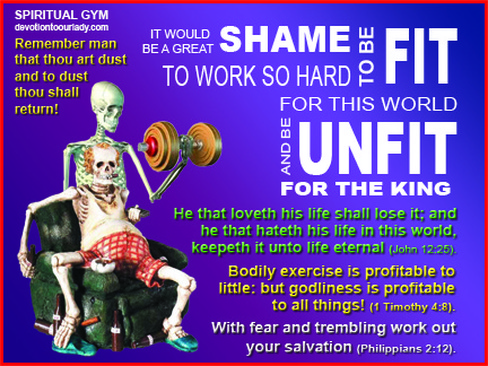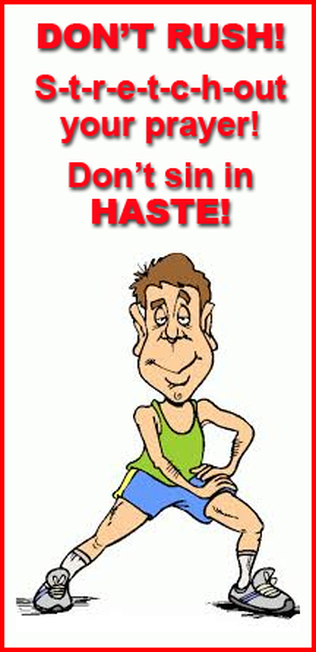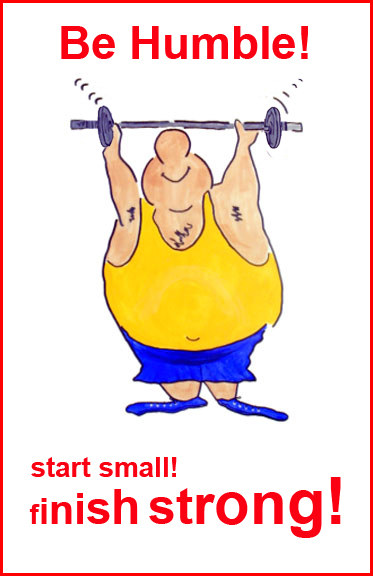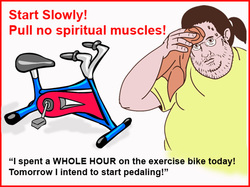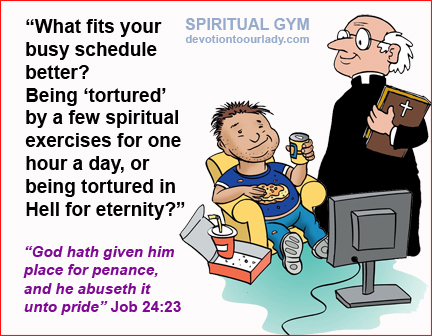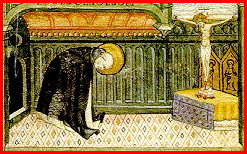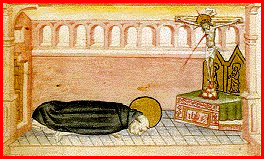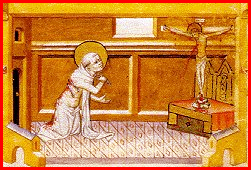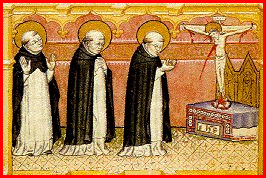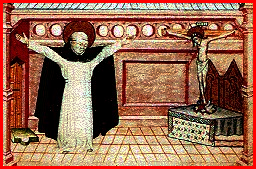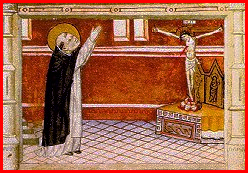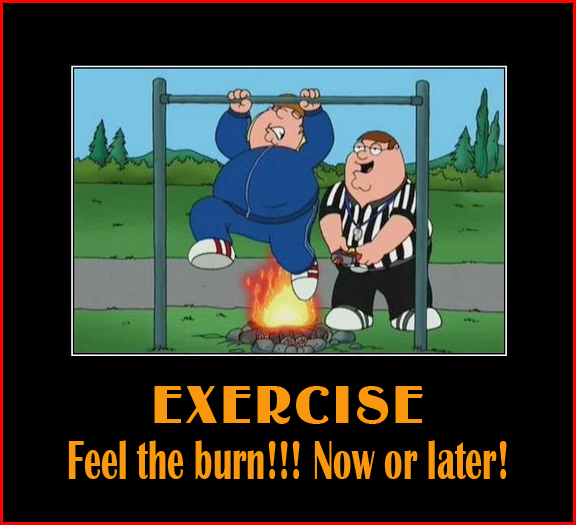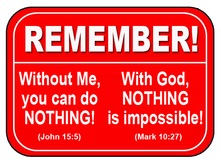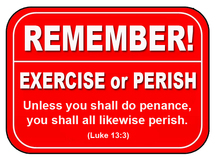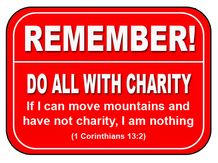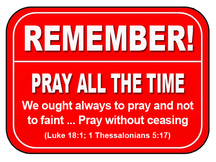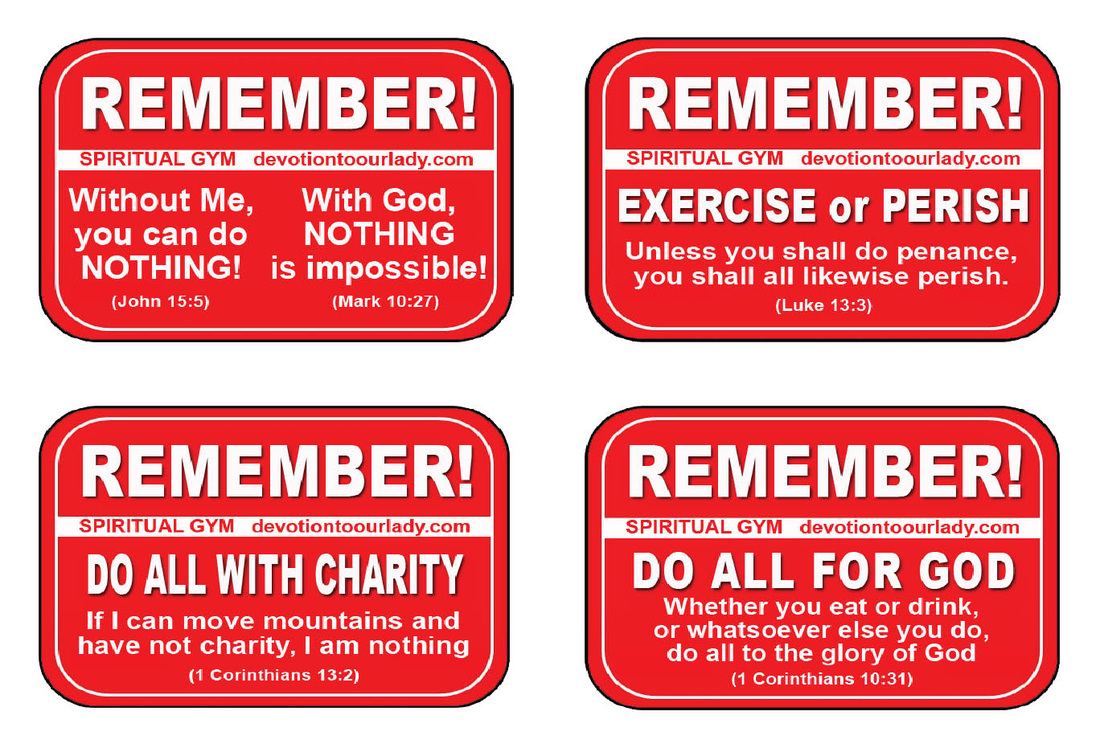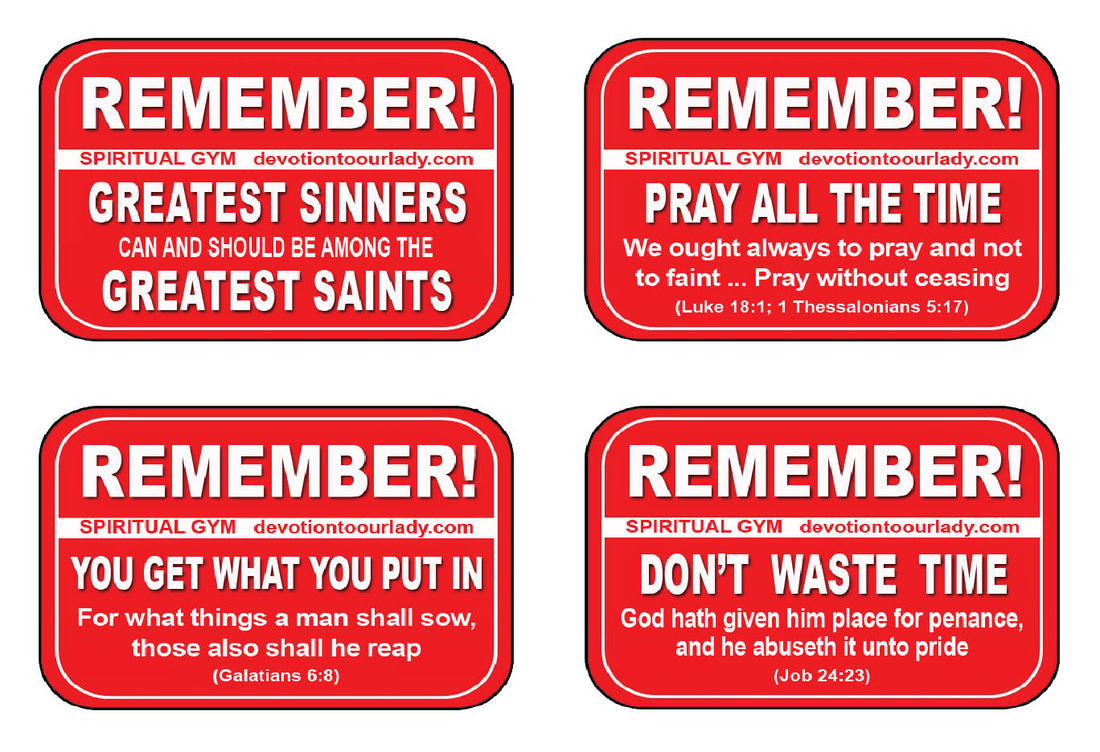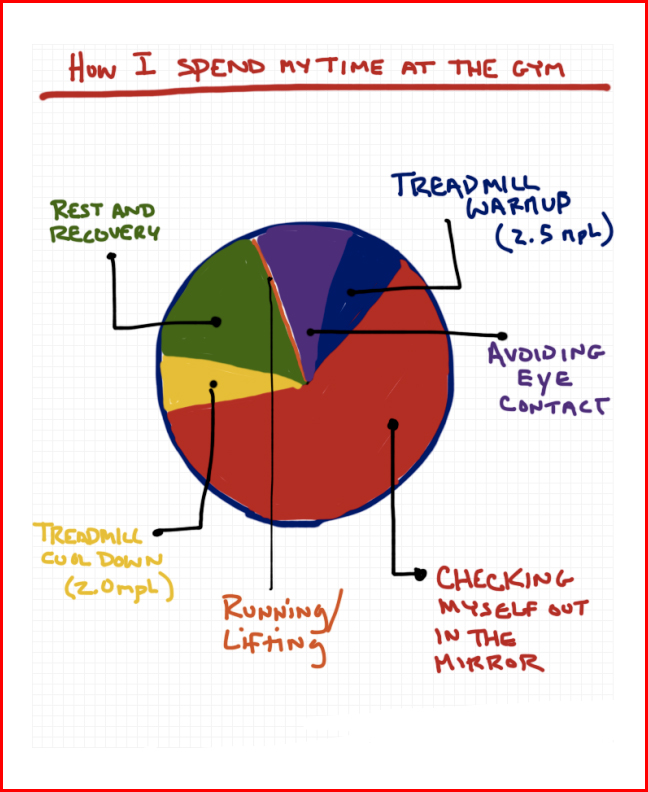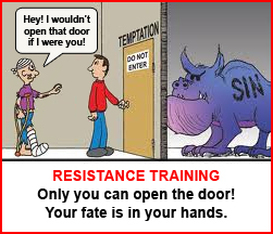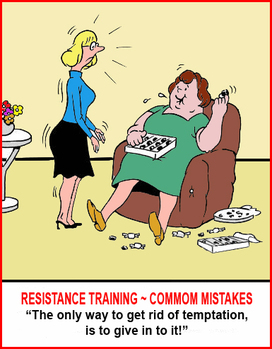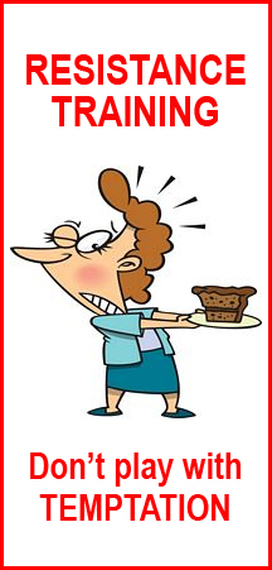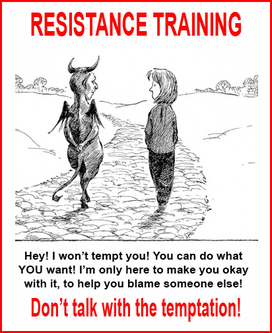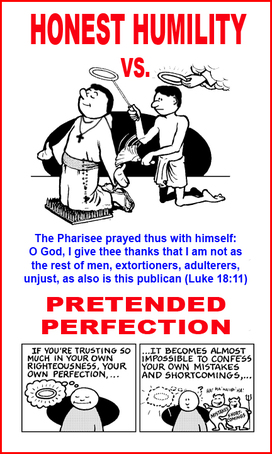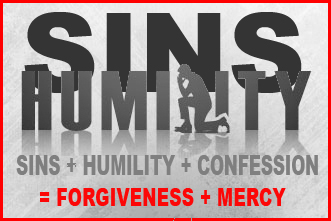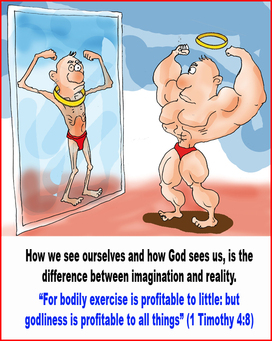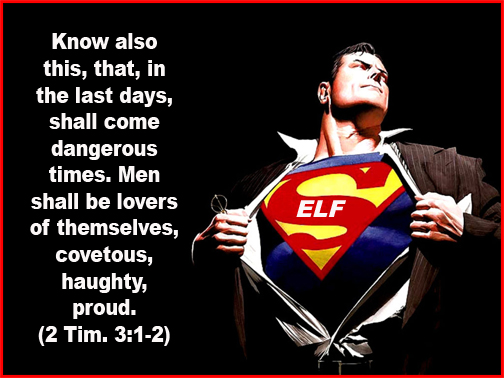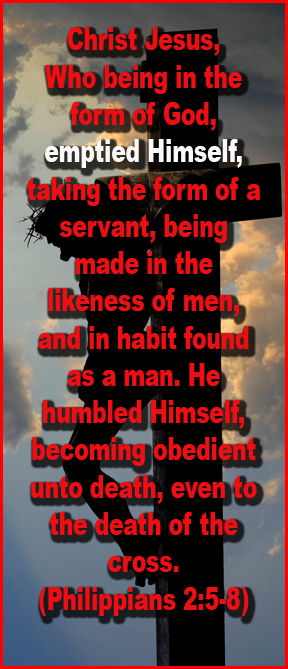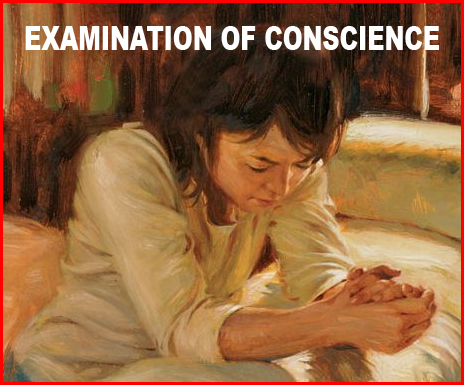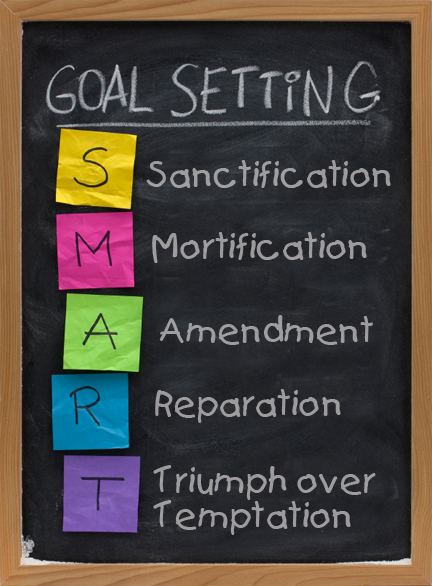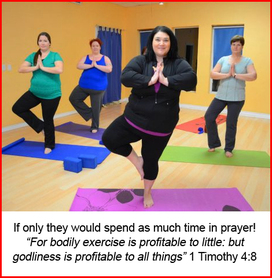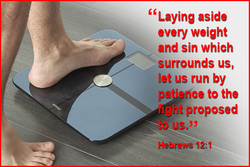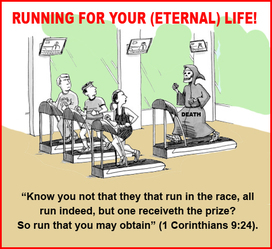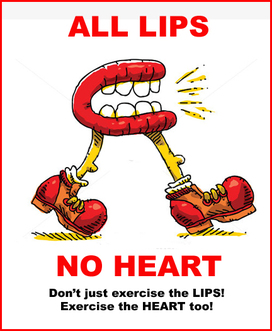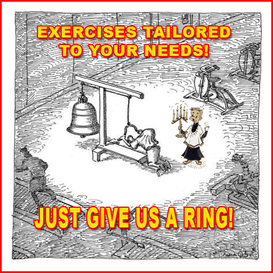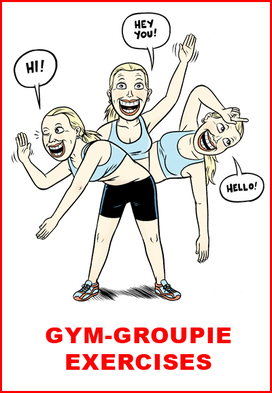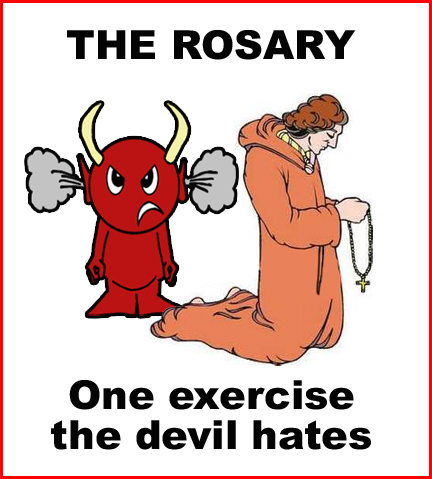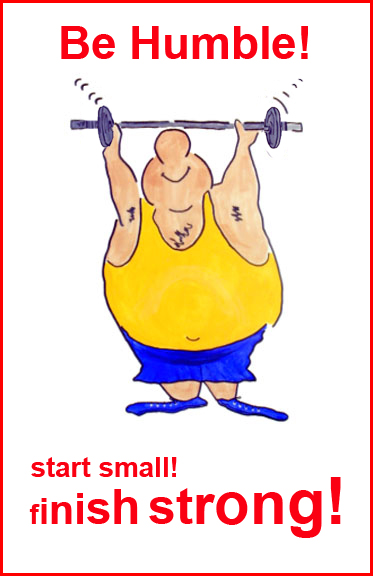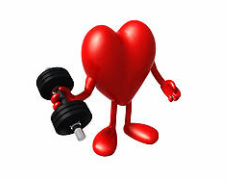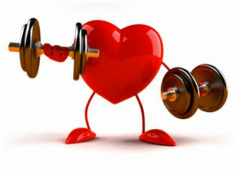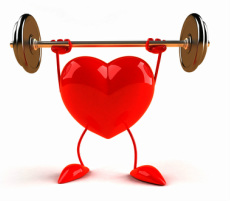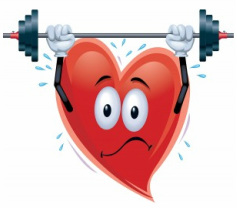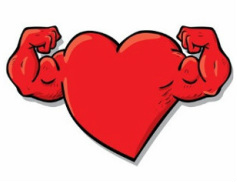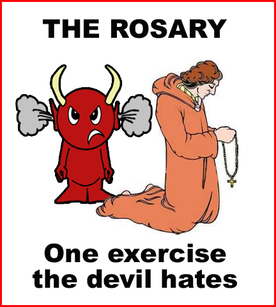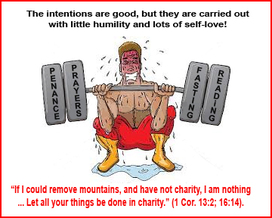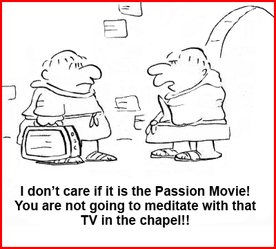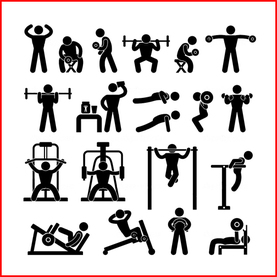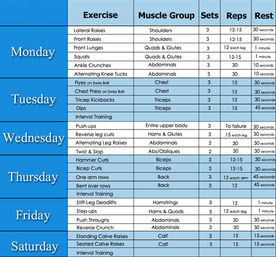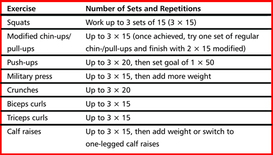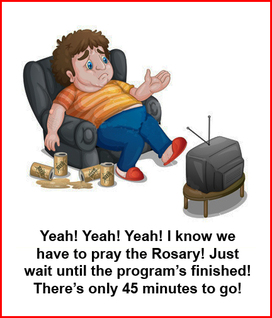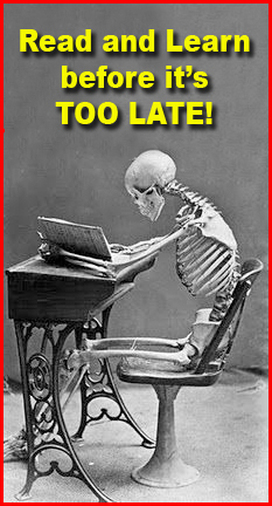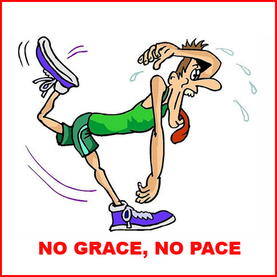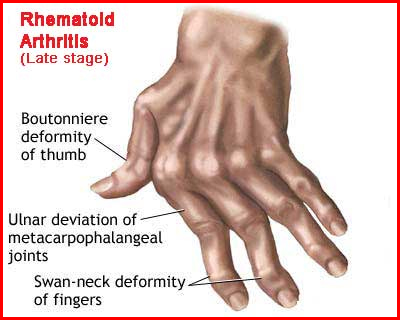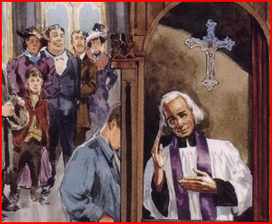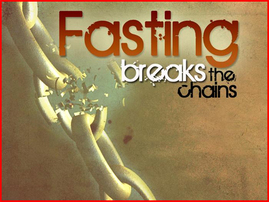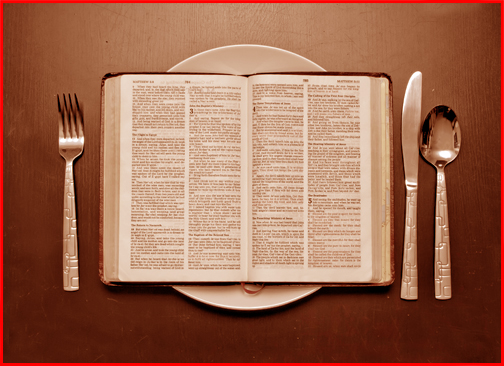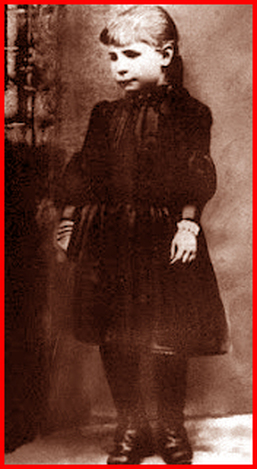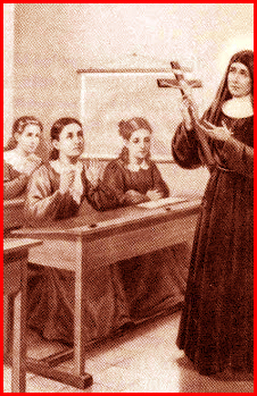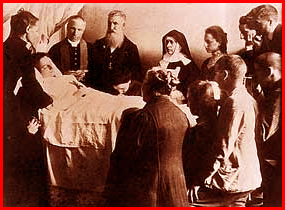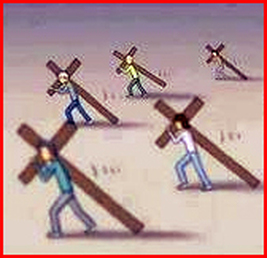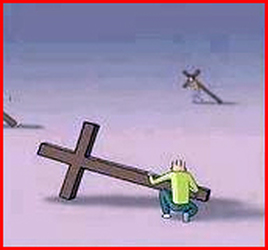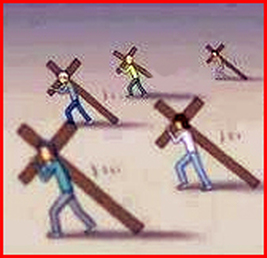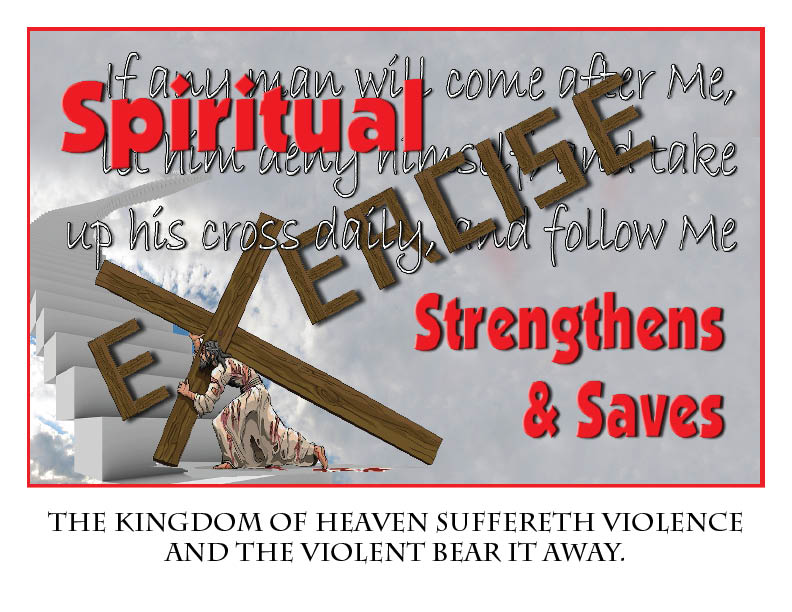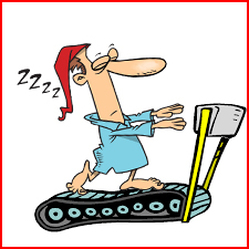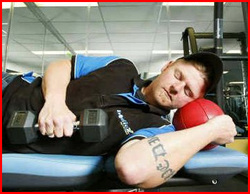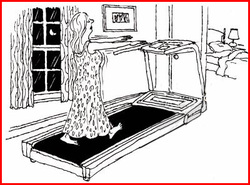| Devotion to Our Lady |
|
- Homepage
-
Daily Thoughts
- 2023 October Daily Thoughts
- Daily Thoughts Lent 2020
- Daily Thoughts for Advent 2019
- Daily Thoughts for October 2019
- Daily Thoughts for September 2019
- Daily Thoughts for August 2019
- Daily Thoughts for July
- Daily Thoughts for June
- Daily Thoughts for Easter 2019
- Daily Thoughts for Lent 2019
- Daily Thoughts for Christmas
- Daily Thoughts Easter 2022
- Sacred Heart
- Holy Ghost
-
Spiritual Life
- Holy Mass Explained
- First Friday Devotions
- First Saturday Devotions
- The Mercy of God
- Vocations
- The Path Everyone Must Walk >
- Gift of Failure
- Halloween or Hell-O-Ween?
- Ignatian Spiritual Exercises >
- Meditation is Soul-Saving
- Spiritual Communion
- Miraculous Medal
- Enrollment in Miraculous Medal
- St. Benedict Medal
- Holy Water
- Advice on Prayer
- Your Daily Mary
-
Prayers
- September Devotions
- Seven Sorrows of Our Lady
-
Novenas
>
- NV-Help of Christians
- NV-Nativity of Our Lady
- NV-Seven Sorrows
- NV- Sorrowful Heart
- NV-Pope St Pius X
- NV-La Salette
- NV-St Michael Archangel
- NV-Immaculate Heart
- NV-Assumption
- NV-Novena for Fathers
- NV-Novena for Your Mother
- NV-St Raphael Archangel
- NV-Souls in Purgatory
- NV-All Saints Day
- NV-Christ the King
- NV-Divine Motherhood
- NV-Guardian Angels
- NV-Rosary
- NV-Mirac Med
- NV- Imm Conc
- NV - Guadalupe
- NV - Nativity of Jesus
- NV-Epiphany
- NV-OL Good Success
- NV-Lourdes
- NV-St Patrick
- NV-St Joseph
- NV-Annunciation
- NV-St Louis de Montfort
- NV-OL Good Counsel
- NV-Last Supper
- NV-Passion
- NV-Pentecost
- NV-Ascension
- NV-Sacred Heart
- NV-Sacred Heart & Perpetual Help
- NV-Corpus Christi
- NV-OL of Perpetual Help
- NV-Queenship BVM
- NV-OL of Mount Carmel
- NV-St Mary Magdalen
- NV- Im Hrt
- August Devotions to IHM
- Immaculate Heart of Mary
- Litany of Dependence
- Prayers to St Mary Magdalen
- Prayers in Times of Sickness Disease & Danger
- Holy Souls in Purgatory
- Meditations on the Litany of Our Lady
- Special Feast Days
- Prayers to Mary (Mon-Sun)
- Litanies to Our Lady >
- Various & Special Needs
- Our Lady of the Rosary
- Our Lady of Mt. Carmel
- Our Lady of Perpetual Help
- Our Lady of Guadalupe
- Other titles of Our Lady
-
Rosary
- Downloads
- Consecration
- Easter Season
-
Holy Week
- Last Seven Words of Jesus >
- Characters of Passion >
- The Last Days of Christ
- Before Palm Sunday
- Palm Sunday
- Monday in Holy Week
- Tuesday in Holy Week
- Wednesday in Holy Week
- Holy Thursday (Last Supper)
- Holy Thursday (Agony & Arrest)
- Night Vigil with Christ
- Good Friday (Pilate & Herod)
- Good Friday (Way of Cross & Crucifixion)
- Saturday in Holy Week
-
Lent
- Ideas for Lent
- Daily Lenten Planner
- Daily Lenten Liturgy
- From Cold to Hot
- Lent with Aquinas
- Lent with Dom Gueranger
- Virtues for Lent
- History of Penance
- How Expensive is Sin?
- Confession of Sins
- Letter to Friends of the Cross
- Sermons for Lent
- Stations of the Cross >
- Lenten Prayers
- 7 Penitential Psalms
- Lenten Psalms SUN
- Lenten Psalms MON
- Lenten Psalms TUE
- Lenten Psalms WED
- Lenten Psalms THU
- Lenten Psalms FRI
- Lenten Psalms SAT
- Lenten Laughs
- Septuagesima
-
Christmas
- Epiphany Explained
- Suggestions for Christmas
- Food For Thought
- Christmas with Aquinas
- Christmas with Dom Gueranger
- Christmas Prayers
- Candles & Candlemas
- Christmas Sermons
- Christmas Prayers SUN
- Christmas Prayers MON
- Christmas Prayers TUE
- Christmas Prayers WED
- Christmas Prayers THU
- Christmas Prayers FRI
- Christmas Prayers SAT
- Twelve Days of Christmas >
-
Advent Journey
- Purgatory
- Christ the King
- Legion of Mary
- Scapular
-
Saints
-
Martyrs for the Faith
>
- Your Daily Martyr >
- All 365 Days of Martyrs
- Cristeros
- St Valentine & Valentine's Day
- Martyrs--Thomas Becket
- Martyrs--John the Apostle
- Holy Machabees
- Age of Martyrdom
- Carmelites of Compiegne
- Martyrs--Peter & Paul
- Martyrs--John the Baptist
- Martyrs--Andrew
- Martyrs--James the Great
- Martyrs--North American
- Martyrs--Seven Holy Sleepers
- Martyrs--Afra
- School of Martyrdom
- Martyrs--Christina
- Desert Saints >
- Saints for Sinners >
- Saints of Mary >
- History of All Saints Day
-
Martyrs for the Faith
>
- Precious Blood
- Synod 2023
-
Catechism
- Catechism Lesson 1
- Catechism Lesson 2
- Catechism Lesson 3
- Catechism Lesson 4
- Catechism Lesson 5
- Catechism Lesson 6
- Catechism Lesson 7
- Catechism Lesson 8
- Catechism Lesson 9
- Catechism Lesson 10
- Catechism Lesson 11
- Catechism Lesson 12
- Catechism Lesson 13
- Catechism Lesson 14
- Catechism Lesson 15
- Catechism Lesson 16
- Catechism Lesson 17
- Catechism Lesson 18
- Catechism Lesson 19
- Catechism Lesson 20
- Catechism Lesson 21
- Catechism Lesson 22
- Bible Study
-
Calendar
- Miracles
- Apparitions
- Shrines
- Prophecies
- Angels Homepage
- Hell
-
Church Crisis
- Conspiracy Theories
- Amazon Synod 2019 >
- Liberalism & Modernism
- Modernism--Encyclical Pascendi
- Modernism & Children
- Modernism--Documents
- The Francis Pages
- Church Enemies on Francis
- Francis Quotes
- Amoris Laetitia Critique
- Danger of Ignorance (Pius X)
- Restore all In Christ (Pius X)
- Catholic Action (Pius X)
- Another TITANIC Disaster?
- The "Errors of Russia"
- CRISIS PRAYERS
- Election Novena 2024
- The Anger Room
- War Zone
- Life of Mary
- Spiritual Gym
- Stupidity
- Coronavirus and Catholicism
- History & Facts
- Books
- Catholic Family
- Children
- Daily Quiz
-
Novena Church & Pope
- Day 01 Church-Pope Novena
- Day 02 Church-Pope Novena
- Day 03 Church-Pope Novena
- Day 04 Church-Pope Novena
- Day 05 Church-Pope Novena
- Day 06 Church-Pope Novena
- Day 07 Church-Pope Novena
- Day 08 Church-Pope Novena
- Day 09 Church-Pope Novena
- Day 10 Church-Pope Novena
- Day 11 Church-Pope Novena
- Day 12 Church-Pope Novena
- Day 13 Church-Pope Novena
- Day 14 Church-Pope Novena
- Day 15 Church-Pope Novena
- Day 16 Church-Pope Novena
- Day 17 Church-Pope Novena
- Day 18 Church-Pope Novena
- Day 19 Church-Pope Novena
- Day 20 Church-Pope Novena
- Day 21 Church-Pope Novena
- Day 22 Church-Pope Novena
- Day 23 Church-Pope Novena
- Day 24 Church-Pope Novena
- Day 25 Church-Pope Novena
- Day 26 Church-Pope Novena
- Day 27 Church-Pope Novena
- Day 28 Church-Pope Novena
- Day 29 Church-Pope Novena
- Day 30 Church-Pope Novena
- Day 31 Church-Pope Novena
- Day 32 Church-Pope Novena
- Day 33 Church-Pope Novena
- Day 34 Church-Pope Novena
- Day 35 Church-Pope Novena
- Day 36 Church-Pope Novena
- Day 37 Church-Pope Novena
- Day 38 Church-Pope Novena
- Day 39 Church-Pope Novena
- Day 40 Church-Pope Novena
- Day 41 Church-Pope Novena
- Day 42 Church-Pope Novena
- Day 43 Church-Pope Novena
- Day 44 Church-Pope Novena
- Day 45 Church-Pope Novena
- Day 46 Church-Pope Novena
- Day 47 Church-Pope Novena
- Day 48 Church-Pope Novena
- Day 49 Church-Pope Novena
- Day 50 Church-Pope Novena
- Day 51 Church-Pope Novena
- Day 52 Church-Pope Novena
- Day 53 Church-Pope Novena
- Day 54 Church-Pope Novena
- Penance Novena
- Daily WeAtheR Forecast
Take an Article a Day and Drive Temptation Away
25 or more to choose from!
25 or more to choose from!
|
HERE IS OUR FREE GIFT TO YOU UPON JOINING OUR SPIRITUAL GYM!
SPIRITUAL GYM POSTER SERIES No. 1 : "Fit or Unfit for the King?" Alongside you can see the first of our SPIRITUAL GYM POSTERS that will be a visual aid for your SPIRITUAL EXERCISES.
The poster is Letter Size( 8.5 inches by 11 inches) Click on the PDF link below to download you copy of the poster
| |||||||
Article 1
"WORKING-OUT" & "GETTING FIT" FOR HEAVEN
"WORKING-OUT" & "GETTING FIT" FOR HEAVEN
|
Get Fit For Heaven
LENT is a perfect time to think about getting ourselves into better spiritual-shape. Our Lord tells us: "Be you therefore perfect, as also your heavenly Father is perfect” (Matthew 5:48) and that “If thou wilt be perfect, go sell what thou hast, and give to the poor, and thou shalt have treasure in Heaven: and come follow Me” (Matthew 19:21) … “And He said to ALL: ‘If any man will come after Me, let him deny himself, and take up his cross DAILY, and follow Me” (Luke 9:23). Adding that: “He that taketh not up his cross, and followeth Me, is not worthy of Me” (Matthew 10:38). Therefore, we need to be “fit for the kingdom of God” (Luke 9:62). Spiritual Gym to Fight Sinful Flab Our SPIRITUAL GYM will be geared to make you fit, or at least fitter, for the Kingdom of God—for if Our Lord says: “Strive to enter by the narrow gate; for many, I say to you, shall seek to enter, and shall not be able!” (Luke 13:24), then we need to lose some worldly, sinful flab if we are to fit through that narrow gate! The flab of worldliness and sinfulness will leave us looking foolish, as we bang on the closed door, like the foolish virgins (Matthew, ch. 25), but which we cannot fit through—only to hear the words from within: “Amen I say to you, I know you not!” (Matthew 25:12). Do you want to be TOO FAT FOR HEAVEN? Of course not! So, “with fear and trembling work out your salvation” (Philippians 2:12). See, even St. Paul recommends that we “WORK-OUT”! Have no fear! We promise to give you good daily work-outs! They may make your spiritual muscles tremble—but remember: “No pain, no gain! No cross, no crown! No gall, no glory!” Spiritual Exercises The Church speaks of “Spiritual Exercises” as part of our daily life, and we have all heard of renowned “Spiritual Exercises of St. Ignatius of Loyola” which originally constituted a THIRTY-DAY RETREAT given by the early Jesuits. These EXERCISES or retreat have been [sadly] shortened over the centuries and reduced from thirty-day down to ‘microwave’ retreats of 10-days (if you’re lucky), 7-days, 5-days or even 3-days! On top of “fast-food”, “fast-lanes” and “fast-track” creations, we now have “fast-retreats”. Is it a “fast-lane” to Heaven? Hell might have the answer to that one, or at least Purgatory. If we do not want to become spiritually fit for Heaven here on earth, then we shall have to go sweat it out in Purgatory, or God forbid, Hell. |
Opening the Doors
Today we are merely opening the doors to the SPIRITUAL GYM and letting you know that it exists. Its purpose will not be one of giving you full articles to read—the other pages of the website are there for that purpose and we may refer you to certain pages from time to time—the SPIRITUAL GYM is there to give you a daily work-out. Its purpose is to train you to think differently, pray differently, approach your life differently, and act differently. It will suggest exercises and routines for the day; it will give you slogans to remember (or even print out and display); it will even involve exercises like praying with a stop-watch or clock to make you slow down—some of these exercises will seem mechanical and awkward, but their purpose will be to make you more spiritually fit. Once your spiritual health and fitness begins to improve—be warned that there is no gain without pain—then you will find yourself dealing with the pains of life much better as your "Prayer-Power" and "Virtue-Muscles" become stronger. Method and Regularity The only real way to improve is through regular and methodical exercises—this is what religious orders realize and their whole daily life is based upon methodical and regular spiritual exercises. That is why they are streets ahead of most lay people, because their is regularity and method behind what they do. We feel there is a grave need for something similar for lay people—that is why we venturing forward with this SPIRITUAL GYM. No two people are alike and that presents a problem when it comes to planning a program of spiritual exercises. However, most competent spiritual authors are of the opinion that the majority of souls are barely beginners in the spiritual life—meaning that they are either often or occasionally in the state of Mortal Sin, or they are in a habitual state of Lukewarmness, or they wallow amongst a plethora of Venial Sins which do not even appear on their radar. So much of the exercises suggested will begin at this level and then work towards a higher level of fitness. Now is the Acceptable Time—Now is Time to Work-Out We hope that you will find some or much of the "Exercise Equipment" useful and that it goes a long way to shortening or even avoiding the painful exercises awaiting negligent and unfit souls in the fires of Purgatory. As Holy Scripture says: "Thus saith the Lord: ‘In an acceptable time I have heard thee, and in the day of salvation I have helped thee: and I have preserved thee’” (Isaias 49:8) … “Behold, now is the acceptable time; behold, now is the day of salvation” (2 Corinthians 6:2) … “And that knowing the season; that it is now the hour for us to rise from sleep. For now our salvation is nearer than when we believed. The night is passed, and the day is at hand. Let us therefore cast off the works of darkness, and put on the armor of light” (Romans 13:11-12). |
Article 2
"WARMING-UP" & "STRETCHING-OUT"
"WARMING-UP" & "STRETCHING-OUT"
|
BELOW, YOU WILL YOUR LATEST SPIRITUAL GYM POSTER FOR DOWNLOAD
The above poster is in LETTER SIZE format, that is 8.5 inches x 11 inches.
Click on the PDF file below and save to your computer.
|
As one gym specialist writes: “Most guys wander into the gym, do a few stretches they learned in Phys. Ed., and jog on the treadmill for a few minutes to sweat. Then, they stroll to the weights and start lifting. But walking in and faking a few stretches never prepares you for the tenacity of an intense workout — a quick jog and a few arm swings, before a 225-pound bench press, is a recipe for a lousy workout and shoulder surgery.”
Components of a Warm-Up A total warm-up program includes the following two components: (1) A GENERAL warm-up period, which may consist of 5 to 10 minutes of SLOW activity such as jogging or skipping. Alternatively, low-intensity sport-specific actions, such as dribbling a soccer ball for soccer athletes, can be very productive as a warm-up. This provides a tailored, sport-specific, general warm-up, geared to the actual exercises that will follow and the specific muscles that will be used, that aids in skill development and raises body temperature. The aim of this warm-up period is to increase heart rate, blood flow, deep muscle temperature, respiration rate, and perspiration and to decrease viscosity of joint fluids. (2) A SPECIFIC warm-up period incorporates movements similar to the movements of the athlete’s sport. It involves 8 to 12 minutes of dynamic stretching (stretching while moving, rather than static stretching on the spot) focusing on movements that work through the range of motion required for the sport, such as the walking knee lift. This is followed by sport-specific movements of increasing intensity such as sprint drills, bounding activities, or jumping. The more power necessary for the sport or activity, the more important the warm-up becomes. Including high-intensity dynamic exercises can facilitate subsequent performance. This phase should also include rehearsal of the skill to be performed. The warm-up should progress gradually and provide sufficient intensity to increase muscle and core temperatures, without causing fatigue or reducing energy stores. It is likely that there are optimal levels of warm-up and that these will be related to the sport, the individual, and the environment. Translating to Spiritual Exercises Spiritual experts tell us that most people just dive into prayer without any real preparation. Their preparations for Mass are as flimsy as the above description of the guy in the gym. The same goes for the Rosary (if it is even prayed at all, since only 2% of Catholics take part in that spiritual exercise on a daily basis). The same is true for meditation or spiritual reading. If there is any preparation at all, it is flimsy and quick. Holy Scripture tells us that we will reap what we sow. If we pray in haste, we will have repent at leisure. Haste and Routine are the two biggest muscle-pullers in the Spiritual Gym and in Spiritual Exercises. Learning From Holy Mother Church Until not so many years ago, many liturgical books containing the Divine Office (Breviary or Liturgy of Hours) listed some beautiful "warm-up" and "cool-down" prayers to be said before and after each portion of the Divine Office. This gives us a pointer for our own prayer lives: not to dive in unprepared and unrecollected into what should be the most sublime action of the day. Here are those prayers: Prayers Before Praying the Divine Office (Warm-Up) O Lord, open Thou my mouth, that I may bless Thy holy Name; cleanse my heart too from all vain, evil, or wandering thoughts. Enlighten mine understanding, kindle mine affections, that I may be able to say this Office fittingly with attention and devotion, and may deserve to be heard before the presence of Thy divine Majesty. Through Christ our Lord. Amen. O Lord, in union with that divine intention wherewith Thou Thyself, while on earth, didst offer praises unto God, I offer these hours (or this hour) unto Thee. Prayer After Praying the Divine Office (Gradual Cool Down) To the most holy and undivided Trinity, to the manhood of our crucified Lord Jesus Christ, to the fruitful virginity of the most blessed and glorious Mary, ever a Virgin, to the entire assembly of the saints, be ascribed everlasting praise, honor, power, and glory, by every creature; and to us be granted the remission of all our sins, world without end. Amen. V. Blessed is the Virgin Mary’s womb, which bore the Son of the Everlasting Father. R. And blessed are the breasts that gave suck to Christ our Lord. Then an Our Father and a Hail Mary is said silently. S-t-r-e-t-c-h-i-n-g Out Our Prayers Most people pray badly. It is not for nothing that, at La Salette, Our Lady questioned the two children as to how well they prayed. They confessed that they prayed badly, to which Our Lady said that they must pray well. At Lourdes, we also see Our Lady indirectly address the exercise of prayer. In this case, St. Bernadette noted HOW SLOWLY Our Lady prayed the Holy Rosary. Our Lord puts it this way: "This people honoureth Me with their lips: but their heart is far from Me” (Matthew 15:8). To "stretch-out" our prayers means to make them a little longer. This does not mean that we spend a longer time praying and thus cramming more and more rushed prayers into that time span, but it means making each individual prayer longer, by taking more time over it and praying it MORE SLOWLY, this "stretching it out." And when we say it more slowly, then we increase our chances of saying it with more fervor. This is what St. Louis de Montfort points out: “A single Hail Mary said properly is worth more than a hundred and fifty said badly. Most Catholics say the Rosary, either the whole fifteen mysteries, or five of them, or at least a few decades. Why is it then that so few of them give up their sins and make progress in virtue, if not because THEY ARE NOT SAYING THEM AS THEY SHOULD” (The Secret of the Rosary, “Forty-First Rose”). How You Exercise Matters Prayer can merit and receive a REWARD, but prayer can also merit and receive a PUNISHMENT. Just as St. Augustine says that the same crosses lead to some souls to Heaven, but other souls to Hell—we can likewise say that the same prayers lead some souls to Heaven and other souls to Hell. Just like the same exercise routine can produce health in one person, but cause an injury in another person. A Mass said and Communion received in a state of grace is much different to a Mass said and Communion received in a state of Mortal Sin. The former brings the reward of increased grace, the latter brings with it a future punishment. St. Louis de Montfort, in his book, The Secret of the Rosary, writes: “In order to pray well, it is not enough to give expression to our petitions by means of that most excellent of all prayers, the Rosary, but we must also pray with great attention, for God listens more to the voice of the heart than that of the mouth. To be guilty of willful distractions during prayer would show a great lack of respect and reverence; it would make our Rosaries unfruitful and make us guilty of sin. How can we expect God to listen to us if we ourselves do not pay attention to what we are saying? How can we expect him to be pleased if, while in the presence of His tremendous majesty, we give in to distractions, like a child running after a butterfly? People who do that forfeit God's blessing, which is changed into a curse for having treated the things of God disrespectfully: ‘Cursed be the one who does God's work negligently’ (Jeremias 48:10)” (The Secret of the Rosary, “Forty-Second Rose”). YOUR EXERCISE FOR THE DAY ► Make an effort to PRAY MORE DELIBERATELY and PRAY MORE SLOWLY throughout the day. ► This will be VERY DIFFICULT, because we are creatures of habit and habits are hard to break. It will even more difficult if you have to pray out loud with others. For they will have no inclination to change their bad habits. You can either (1) overcome human respect and ask them to pray more slowly, (2) try slow things down during the prayer, which will obviously cause friction, or (3) pray quietly to yourself and let them run-off ahead in haste. ► First of all, take a stopwatch or a clock with a hand that counts seconds (or use the clock on the bottom right corner of your computer screen) and time yourself to see how long a HAIL MARY takes you. DO NOT CHEAT and pray more slowly than usual. ► If you clock up TEN SECONDS OR LESS, then you are praying WAY TOO FAST. ► If you are taking between FIFTEEN and TWENTY SECONDS, then you are praying at what we could call a "CONVERSATION PACE"—which is what it should be, for prayer is a respectful conversation with Heaven and not a machine-gun that is "ra-ta-ta-ta-ting" bullets into Heaven. Recommendation of St. Louis de Montfort In his book, The Secret of the Rosary, St. Louis puts forward a formula for the Our Father and the Hail Mary, which can readily be applied and any other prayer too. He says that we should intersperse the Our Father and Hail Mary with a series of very short pauses, in order to reduce it to what we call a "conversational pace". Here is how he lays it out: “Dear friend, I beg you to restrain your natural precipitation when saying your Rosary, and make some pauses in the middle of the Our Father and Hail Mary, and a smaller one after the words of the Our Father and Hail Mary which I have marked with a cross, as follows: “Our Father Who art in Heaven, + hallowed by Thy name, + Thy kingdom come, + Thy will be done + on earth as it is in Heaven. + Give us this day + our daily bread, + and forgive us our trespasses + as we forgive those who trespass against us, + and lead us not into temptation, + but deliver us from evil. Amen. + “Hail, Mary, full of grace, + the Lord is with thee, + blessed art thou among women, + and blessed is the fruit of thy womb, Jesus. + Holy Mary, Mother of God, + pray for us sinners, now + and at the hour of our death. Amen. + “At first, you may find it difficult to make these pauses because of your bad habit of saying prayers in a hurry; but a decade said recollectedly in this way will be worth more than thousands of Rosaries said in a hurry, without pausing or reflecting” (The Secret of the Rosary, “Forty-Fourth Rose”). FINAL REMINDER FOR YOU DAILY EXERCISE ► Try and repeat this exercise of praying JUST ONE Our Father and ONE Hail Mary, at MANY different times throughout the day—for we are creatures of habit, and habits are only changed by frequent and often forceful counter actions. ► Before you say the combo, say to yourself ONCE the words of St. Louis de Montfort: ““A single Hail Mary said properly, is worth more than a hundred and fifty said badly.” GOOD LUCK! PULL NO SPIRITUAL MUSCLES!! | ||||||
Article 3
ST. DOMINIC'S NINE WAYS OF (EXERCISING) PRAYING
ST. DOMINIC'S NINE WAYS OF (EXERCISING) PRAYING
|
|
Origins of the Nine Ways
The Nine Ways of Prayer of St. Dominic is a treasured Dominican document on their holy founder's, St. Dominic’s, manner of praying. It was written by an anonymous author, probably at Bologna, between 1260 and 1288. Sister Cecilia of the Monastery of St. Agnes at Bologna (who had received the habit from St. Dominic) and others who had known him personally were most likely the source of this information. These ways of prayer were the actual practice of St. Dominic. Standing, bowing, kneeling, sitting, walking—St. Dominic knew that the gestures of the body could powerfully dispose the soul to prayer. In this experience of bodily prayer, the soul in turn is lifted to God in an act of praise, thanksgiving, and supplication. These ways of prayer are a glimpse into the inner life of St. Dominic and his intense love for God. The Exterior Affects the Interior The body and external objects have a great influence over the soul—for both good and evil. The interior soul is aided by the exterior body and exterior objects in its prayer life. This is why during the Holy Sacrifice of the Mass we have the changing liturgical colors, candles, incense, flowers, and other liturgical objects like altars, statues, crucifixes, stain-glass windows, bells, organ, choirs, etc. For all these things help focus and raise the mind and heart to God in prayer—for prayer is defined as "a raising of the mind and heart to God." We can look upon all these things as pieces of spiritual exercise equipment or machines, that are there to help us maximize our spiritual health. As St. Paul says, our bodies are churches or temples of the Holy Ghost: “Know you not, that you are the temple of God, and that the Spirit of God dwelleth in you?” (1 Corinthians 3:16). A lousily designed and decorated church, that looks more like a barn than a church, has little chance of creating a spirit of reverence towards God. A choir that sings what are basically catchy pop-tunes and tries to pass them off as hymns, will not inspire the mind to be raised to God, but will more likely bring memories of the world and appeal merely to the emotions. The Church should be a mystical picture book that leads the mind, heart and emotions to a reverential worship of God and, in this, our body plays a major role. Variety of Body Positions in Physical Exercise Just as physical exercise has a variety of different body positions in order work-out different muscles of the body, likewise a variety of prayer positions influence and enhance different attitudes of the soul. In the “Nine Ways of Prayer” of St. Dominic, we see that variety at work. Kneeling in prayer helps heighten the sentiments of submission to God, an adoration of God and of begging God for help. Genuflections also help encourage a spirit of adoration and submission. Bowing—whether while standing or kneeling—helps the soul be reverential towards God, as well as taking the sentiment of submission to a higher level if done whilst kneeling. Prostration—laying flat on the ground, face down—is the ultimate position of submission and humility. It brings to mind the words: “Remember man that thou art dust and dust thou shall return!” The joining of hand in prayer, helps foster a sincere spirit of pleading with God. While letting the hands hang down at ones side is a humble, subordinate position. Raising ones hands and arms upwards towards God seems to accentuate the sentiment of pleading. While the raising and extending of the arms to each side, to make the form of a cross, helps create a spirit of sacrifice and penance. Humility Rather Than Ostenation After having introduced some of these positions, we will examine them further in the next article and set up some simple exercises that you can experiment with and try incorporate into you own PRIVATE prayer times. Prayer positions like the extending of the arms or prostrations SHOULD NOT be performed in common or in public, such are in church—common sense tells us that! If saints like St. Dominic have performed them in full view of their community, then that is more to be noted rather than imitated—since we are not to draw attention to ourselves through our spiritual exercises, but rather efface ourselves in the presence of God by them. Singularity and ostentation are rather to be frowned upon that admired. Brief Overview of the Nine Ways of Praying (Exercising the Soul) of St. Dominic The first way to pray is to bow. St. Dominic humbles himself before the altar in which Christ is alive on the cross, with His bleeding side to make us understand that He is communicating his life to us. St. Dominic's interior disposition is one of humility of heart. The second way is to prostrate oneself. St. Dominic is prostrated on the floor and weeps, with compunction of heart, pierced by the awareness of his sin. In the third way of praying, St. Dominic scourges himself on his knees in reparation for his sin and the sins of other; his desire is to be like Christ in His passion. According to the fourth way of praying, St. Dominic kneels and rises, and his soul is full of confidence in God's mercy on him, his brothers and sinners. In these first four ways of praying, St. Dominic's body is on the ground. We come from the earth; it is the place of origins, the place of our limitations. The four corresponding dispositions — humility, compunction of heart, discipline, and trust — are spiritual dispositions that recognize our dependence and the primacy of God. These first four ways of praying may be grouped around an attitude: acceptance, acceptance of the condition of creature before God, acceptance of God as creator and savior, acceptance of one's own limitations before him who is infinite. In the fifth way, the saint rises and stands, without leaning on anything, as a prophet or as Jesus himself. His attitude is that of the resurrection, he is standing in his body and heart. His arms and hands manifest his listening to the Word. Gradually, he becomes silent to listen and to allow himself to be led by the One who speaks to him through the Scriptures. Then his arms open majestically in the sixth way, to embrace and imitate his Friend Who has given His life for him on the cross—a gesture of crucified-resurrected. His gesture with his arms in the form of a cross means life given for Christ, and life received by the saint. In the seventh way, he continues the movement of his arms, stretching them determinedly to the heavens, with his hands either clasped or open, as if he were to receive something from Heaven. The tension of his whole being shows his desire to be with the One who is in Heaven and with us every day. His body, just like his heart, witnesses to his prayer which is elevated, which rises like an arrow: He knows the One he addresses and he knows his prayer will be heard, as it corresponds to that of Christ: the promise to send us the Holy Spirit. It is the moment of the encounter with God in a face-to-face dialogue. These three ways of praying pivot on an attitude, that of an encounter with God, face to face, as with a friend. In the eighth way of praying, St. Dominic is seated at a table, reading and listening to what the Lord says to him through His Word, and in the ninth and last way he is seen with a companion going off on a trip on the paths of the world to transmit what he has contemplated. In this way, St. Dominic illustrates Jesus' friendship with his friends―a friendship in which not only time is taken to sit together, but also to walk on paths together. These last two ways are ordered around a gift: the gift of God in His Word and in His life, the gift of God leads to giving and to giving of oneself. The nine ways of praying are divided therefore in three stages: acceptance, encounter, gift. They enable us to enter in his way of salvation to cure us of our devaluation of ourselves and to listen to what the Lord says to us: "I receive you as you are; you are My friend, now be fruitful and give fruit." |
Article 4
GETTING THE BASICS RIGHT, GETTING THE ATTITUDE RIGHT!
GETTING THE BASICS RIGHT, GETTING THE ATTITUDE RIGHT!
|
Below are some warning signs or reminder signs of some basic
principles that should govern your exercises. The download is available at the
foot of today’s article.
|
There can be many mental and emotional barriers to getting in better shape. The most important aspect is not the specifics of an exercise program or the details of a diet (though those are obviously important), but how you look at the situation. I don't mean in the sense that your mind is more powerful than what you do in the gym, although you'll need to have some self-discipline and commitment for obvious reasons. The main problem is that most people look at fitness in a warped, incorrect way. That's why they flunk, and not because it has to be so hard in and of itself. What I mean is that you can't look at diet or exercise as a short-term ordeal that ends at some point when you aren't out of shape anymore. They must be seen as long-term lifestyle changes. That sounds kind of scary, but is actually not a big deal when you think about it, and once you start seeing results you will be motivated to continue.
The same can be said of spiritual exercise and a spiritual diet—there is no single exercise or particular book that is guaranteed to give impressive spiritual results. The key is your attitude of mind. If you are after ‘band-aid’ spirituality or a ‘spiritual wig’ then good luck! With one or the other you will look ridiculous—not only in the eyes of Heaven, but also in the eyes of those around you here on earth. Most people look at their spiritual exercises and spiritual diet in a warped and incorrect way. They just want it on their lips, but not in their heart—they want to look the part, without actually being the part! Consider this: when people start dieting and exercise, they are often extremists about it. They try to work out 2 times a day, 7 days a week, or go on some crazy diet where they eat 500 calories composed entirely of herbal tea and tree bark. They hurt themselves or get sick or just hate life generally, and they fail. Then they get discouraged and get fat and out of shape again. The same is often true with spiritual resolutions—especially at times like Lent. The devil wants you to bite off more than you can reasonably chew, or he wants you not to bite at all—in others words, to do TOO MUCH penance, or to do NO penance at all. He will suffer a short-term change, if he can get you to go back to what you were soon after Lent is over, or when your resolutions break-down. Whichever way you look at it, he wins. These break-downs happen both in the physical arena—with exercise and diet; as well the spiritual arena—with spiritual exercises and diet. Was that a failure of willpower? Sort of, but the main problem is that the whole approach is wrong. You don't get in shape by killing yourself. You get in shape, and more importantly stay in shape, by accumulating significant, but livable, improvements to your lifestyle over time, and building on that. Not by going through some horrible ordeal requiring Olympian willpower. On the natural level, eating healthy just has to become how you eat most of the time. Exercise has to become a habitual thing you do every day or two, like mowing the lawn or taking out the trash. If you do just a little better all the time, but really stick to it, you can accumulate big gains very fast, and improve upon them over the long term. Once you start seeing improvements without having to kill yourself, it becomes very easy to keep on improving. You don’t have to stick to the following 100% of the time; but every little bit you slip up detracts from your overall results. The amount of time and effort you put into developing and maintaining your physical fitness is directly proportional to what you will get out of it and the magnitude of the results you will see. If you follow this advice only some of the time, you will only get some of the results. In the end, the wrong thing done consistently often times nets more results than the right thing done sparingly. We know how the body works, we know what can be done, and we know how long it takes. Do not look for the easy-out, the miracle, or the fitness secret someone wants to sell you. You want results, not false promises - stick to a routine and diet and see it through. In other words, be persistent and be patient. The same is true spiritually—sanctity is a work of a lifetime. There is no ‘holy microwave’ just a ‘holy oven’—and Our Lord will light the fire for you: “I am come to cast fire on the earth; and what will I, but that it be kindled?” (Luke 12:49). Another thing to consider is that many people find it hard to get into the shape they want because they have bad habits, especially when it comes to diet. Some of these are obvious, but many of them are not. Education about diet and exercise is very spotty, and the media (and even fitness magazines) often report nonsense that just adds to the confusion. You need to be able to identify your bad habits in the first place, and not just stop them, but replace them with habits that are positive. Habits are hard to break, but the rewards for replacing bad habits with good ones are immense and long-lasting. After a short while, you won't feel those cravings for sweets or soda. You'll start to feel anxious if you miss a gym day. You'll think "How did I live like this? Why did I spend those years being so unhealthy? This is so easy!" It is. EXERCISE FOR THE DAY: Be honest with yourself if you wish to improve. A doctor cannot help you properly if you do not reveal to him ALL the symptoms that you have. Sometimes we lie to ourselves so much that we believe the lie in the end. WHAT IS WRONG WITH YOU? There is something wrong with everybody—so don’t think you might stick out like a sore thumb. WHAT IS WRONG WITH YOU? Write it down. Start with GENERAL THINGS and then get down to SPECIFICS. Write it down. Writing things down is like a public admission of guilt—except it stays in your hands. It is a kind of a release, a opening up to the truth. Unless that is done, we will never act on that truth for believe our lie. WHAT IS WRONG WITH YOU? Write it down. GENERALLY: Am I spiritually superficial? Is my main concern “how I appear” to others as opposed to “what am I really like”? Am I lukewarm? Do I perform spiritually exercises (prayers, reading, meditation, hear Mass, make my confessions) half-heartedly, distractedly, indifferently, routinely? How much or little time do I devote to my spiritual exercises daily? Could I do more? Much more? Do I focus methodically on acquiring virtues (muscle)? PARTICULAR: What are my worst bad/sinful habits? How long have they had me in their grip? What have I done to eradicate them? Which sins do I commit the most? Am I at peace with them most of the time—meaning that I do no penance of my own for them, nor pray regularly for the grace to overcome them. What is my dominant fault? DOWNLOAD THE REMEMBER WARNING SIGNS that give a reminder to basic spiritual principles. There are three sizes available: (1) Letter Size (8.5 inches x 11 inches) (2) Tabloid Size (11 inches x 17 inches) (3) Large Photo Size (13 inches x 19 inches) One file has all 8 signs on two pages for you to cutout and post around the home or at work.
| ||||||||||||||||||
Article 5
ENTER THE GYM WITH A HUMBLE SPIRIT AFTER EATING HUMBLE PIE!
ENTER THE GYM WITH A HUMBLE SPIRIT AFTER EATING HUMBLE PIE!
|
Humility is the prize of all virtues, and practicing it well
is the key to obtaining all the rest. Penance, fasting, and alms-giving,
all highlighted during the Lenten season, are ways to cultivate humility in our
hearts, in addition to this beautiful prayer. It is attributed to Rafael
Cardinal Merry del Val (1865-1930) who served as the Secretary of State for
Pope St. Pius X. Although this prayer is wonderful to pray regularly when our
pride rears its ugly head, it is an especially poignant prayer and meditation
for the Lenten season.
EXERCISE: Take any single line of the Litany of Humility (see below), or take more than one, as your constant companion for the day. Repeat it before each decade of the Rosary. Or even between each Hail Mary of the Rosary. Say it over and over as you walk from one room to another, or from house to car, or from parking lot into your workplace or store. At other times, stop and reflect upon how much the point(s) that you selected really do affect you and rule your thoughts, words and actions. Make acts of humility before God, despising your weakness and selfishness. Beg for the grace to root out that vice from your soul. Confess your tendency in your next confession. Use the Litany of Humility as your Examination of Conscience—not just once, but perhaps throughout Lent. THE LITANY OF HUMILITY O Jesus! Meek and humble of heart, Hear me. DELIVERANCE FROM DESIRES From the desire of being esteemed, Deliver me, Jesus. From the desire of being loved, Deliver me, Jesus. From the desire of being extolled, Deliver me, Jesus. From the desire of being honored, Deliver me, Jesus. From the desire of being praised, Deliver me, Jesus. From the desire of being preferred to others, Deliver me, Jesus. From the desire of being consulted, Deliver me, Jesus. From the desire of being approved, Deliver me, Jesus. DELIVERANCE FROM FEARS From the fear of being humiliated, Deliver me, Jesus. From the fear of being despised, Deliver me, Jesus. From the fear of suffering rebukes, Deliver me, Jesus. From the fear of being calumniated, Deliver me, Jesus. From the fear of being forgotten, Deliver me, Jesus. From the fear of being ridiculed, Deliver me, Jesus. From the fear of being wronged, Deliver me, Jesus. From the fear of being suspected, Deliver me, Jesus. DELIVERANCE FROM ENVY That others may be loved more than I, Jesus, grant me the grace to desire it. That others may be esteemed more than I, Jesus, grant me the grace to desire it. That, in the opinion of the world, others may increase and I may decrease, Jesus, grant me the grace to desire it. That others may be chosen and I set aside, Jesus, grant me the grace to desire it. That others may be praised and I unnoticed, Jesus, grant me the grace to desire it. That others may be preferred to me in everything, Jesus, grant me the grace to desire it. That others may become holier than I, provided that I may become as holy as I should, Jesus, grant me the grace to desire it. Amen. DON'T COME TO GYM WITHOUT HUMILITY In his book, Humility of Heart, Fr. Cajetan Mary da Bergamo writes: In Paradise there are many Saints who never gave alms on earth: their poverty justified them. There are many Saints who never mortified their bodies by fasting, or wearing hair shirts: their bodily infirmities excused them. There are many Saints too who were not virgins: their vocation was otherwise. But in Paradise there is no Saint who was not humble. God banished Angels from Heaven for their pride; therefore how can we pretend to enter therein, if we do not keep ourselves in a state of humility? Without humility, says St. Peter Damian, (Sermon 45), not even the Virgin Mary herself, with her incomparable virginity, could have entered into the glory of Christ, and we ought to be convinced of this truth that, though destitute of some of the other virtues, we may yet be saved, but never without humility. There are people who flatter themselves that they have done much by preserving unsullied chastity, and truly chastity is a beautiful adornment; but as the angelic St. Thomas says: “Speaking absolutely, humility excels virginity.” (4 dist. q. 33, art. 3, ad 6; et 2a2ae, q. 141, art. 5). We often study diligently to guard against and correct ourselves of the vices of concupiscence which belong to a sensual and animal nature, and this inward conflict which the body wages: “For the flesh lusteth against the spirit: and the spirit against the flesh” (Galatians 5:17), is truly a spectacle worthy of God and of His Angels. But, alas, how rarely do we use this diligence and caution to conquer spiritual vices, of which pride is the first and the greatest of all, and which, sufficed of itself to transform an Angel into a demon! (Fr. Cajetan Mary da Bergamo, Humility of Heart) |
Article 6
RESISTANCE TRAINING 101
RESISTANCE TRAINING 101
|
"Every one of us singly stands between two spirits — there is the Spirit of God on the one side, there is the spirit of Satan on the other; and the human spirit, that is, the soul with its intelligence, heart, and will, stands between. These two spirits, of God and of Satan, are in perpetual conflict round about us and for us — the spirit of Satan striving to pervert, to delude, and to cast us down; the Spirit of God perpetually guiding, strengthening, and upholding us. The thoughts of Satan are infused into us, and also the lights of the Holy Ghost — and sometimes we do not know the one from the other. We sometimes mistake the false lights of Satan for the lights of truth. We sometimes fancy that the lights of truth which come to us, are only temptations. Sometimes we imagine our own human thoughts to be the thoughts and the lights of God; and so we deceive ourselves. We are in this constant state of temptation, which is common to all men" (Cardinal Manning, Temptations)
"However much you may be tempted, whether it be to deadly (mortal) sins or to lighter (venial sins), it matters not — those temptations will never be imputed to you as sins unless you willingly consent to them. This is the way of escape which is always open, the sure and certain issue by which every soul may pass, even out of a furnace heated sevenfold. You remember, some time ago we laid down as the essential condition of sin, that it is an evil act contrary to the will of God, with knowledge of the intellect, with the consent of the will, and with the consciousness of what we are doing. Now that one rule will precisely distinguish between sins and temptations" (Cardinal Manning, Temptations) "St. Paul, in the seventh chapter of the Epistle to the Romans, says: “The good I would, I do not; the evil that I would not, that I do. I consent to the law of God in the inward man; but I find another law in my members, warring against the law of my mind, and bringing me into captivity to the law of sin which is in my members. So if I do the evil that I would not, it is no more I, but sin that dwelleth in me” (Romans 7:15-20). Therefore, St. Paul distinguishes between the indwelling “sin” of his nature (that is, the disordered motions of concupiscence, both physical and spiritual) and himself. He says: “It is no more I.” Why is it no more himself? Because his will had no part, nor any lot, in that inward “sinfulness” or concupiscence" (Cardinal Manning, Temptations) "The Prophet says: “Death climbs up by the windows” (Jeremias 9:21); which spiritual writers interpret of sin finding its entrance through the senses — through the open eyes, the open ears — which are like the windows of the soul standing wide. Satan has no power at all to enter into the soul against our will. These “fiery darts” are the temptations which enter through the senses, fall upon the passions, and kindling them, disorder the affections, and through them affect the will; but if the will does not consent, the presence of any amount of temptation may be mere suffering, and however intense, it will not be sin. So that the way to distinguish between what is temptation and what is sin is to ask yourselves, Do you welcome it? Do you open the door? Do you throw up the window? Do you invite it to come in and dwell? Or do you say: “The Lord rebuke thee — get thee behind me, Satan”? How do you receive these temptations? Another certain test whether it is temptation or sin is this: does the presence of the temptation give you pleasure, or pain? Do you feel rather gratified by being stirred up to a sense of resentment, or does it give you pain that you have lost your calmness? If you have pleasure in it, then most assuredly you have been consenting; if it gives you pain, then as certainly it is contrary to your will" (Cardinal Manning, Temptations) "Prayer, piety, watchfulness, self-denial, and purity of heart — these five things will keep your will firm, and if your will be firm, it will expel every temptation that enters by the senses, or by the passions, or by the affections, as the flame of a furnace which consumes everything that approaches to its mouth. It will expel and cast out of you all things contrary to your sanctification" (Cardinal Manning, Temptations) RESISTING TEMPTATION (by Fr. Tanquerey from The Spiritual Life) This resistance will vary according to the nature of the temptations. Some of these recur frequently, but are less serious; these must be treated with scorn, as St. Francis de Sales so well explains: "As to these smaller temptations of vanity, suspicion, impatience, jealousy, envy, fond love, and such like trash, which like flies and gnats continually hover about us, and sometimes sting us on the legs, the hands or the face; as it is impossible to be altogether freed from them, the best defense that we can make is not to give ourselves much trouble about them; for although they may tease us, yet they can never hurt us, so long as we continue firmly resolved to serve God earnestly. Despise then these petty attacks, without so much as thinking of what they suggest. Let them buzz and hover here and there around you; pay no more attention to them than you would to flies." Here we concern ourselves chiefly with serious temptations. These must be fought promptly, energetically, perseveringly, and humbly. (a) Promptly, without parleying with the enemy, without any hesitation. At the outset the temptation is repelled easily enough, for it has not yet gained a foothold in the soul; if we wait until it has gained entry, the repulse will prove far more, difficult. Hence, let there be no debate. Let us associate the idea of illicit pleasure with all that is repelling, with the serpent, with a traitor that wishes to ensnare us, and let us remember the word of Holy Writ: Flee from sins as from the face of a serpent: for if thou comest near them they will take hold of thee. " We effect this flight by prayer and by turning our minds to something else. (b) Energetically, not indolently and with regret, for this would be like inviting the temptation to return, but with determination and vigor, showing the horror in which such a proposal is held: "Get behind me, Satan." There are, however, different tactics to be employed, according to the kind of temptations that assail us : if it is question of those temptations to alluring pleasures, we must turn away from them and take to flight by concentrating our attention on any other matter calculated to engage our faculties. Direct resistance in such instances generally increases the danger. If it be question of temptations of aversion towards duty, of antipathy, hatred, human respect, the better course often lies in facing the difficulty squarely and honestly, and in having recourse to the principles of Christian faith in order to overcome it. (c) Perseveringly, for at times after having been routed, temptation returns with renewed obstinacy, and the devil brings with him from the desert seven other spirits worse than himself. Equal tenacity, and not less, must be matched against this persistence of the enemies of our soul; he that fights unto the end, overcomes. To be all the more assured of victory we should make the temptation known to our spiritual director. This is the advice given by the Saints, especially St. Ignatius and St. Francis de Sales: "For you must observe," says the latter, "that the condition that the enemy of salvation makes with a soul which he tries to seduce, is to keep silence; as those who intend to maids or married women, at the very first forbid them to communicate their proposals parents or husbands; whereas God requires, when he sends inspirations, that we should make them known to our superiors and directors. In truth, it seems as if a special grace were attached to this openness of heart, A temptation disclosed is a temptation half‑vanquished. (d) Humbly. Humility attracts grace, and grace gives us the victory. The devil who sinned by pride, flees before a sincere act of humility; and the threefold concupiscence, that holds its power from pride, is easily overcome when by humility we have, so to speak, laid its head low. EXERCISE: Resistance to temptations is all about saying "NO!" Therefore, we have to frequently learn to say "NO!" to a variety of things, both SINFUL and NON-SINFUL. It is a case of training the will to be prompt and resolute, where it refuses to listen to pleas and remonstrances of passions, cravings, feelings and senses. This is where the virtue of MORTIFICATION comes in: it is the personal trainer of the will. As a daily exercise, set yourself a goal of saying 'NO!" to yourself and to others a certain number of times a day. I would say at least twenty times a day. It could bear upon your sleep, clothing, food, work habits, entertainment, reading, phone calls, internet, TV, radio, etc. Write out a list of daily targets and schedule them so that you have to say "NO!" at regular intervals throughout the day. At first this will be painful for many, but with time it will become much easier, almost like a second nature. |
Article 7
BURSTING THE BUBBLE OF PRIDE
BURSTING THE BUBBLE OF PRIDE
|
Gym Owners Advice
Here is part of an article by a gym-owner, referring to the need of humility in the gym: If you're going to start working out in a gym soon or if you've just started, I’m going to let you in on a little secret. The secret is that other people in the gym, who know what they're doing, can tell that you don’t know what you’re doing, despite your best efforts to convey the opposite, and they don't care about what you're doing, or how you're doing it as long as it doesn't interfere with their workouts. All people, who are new to working out in gyms, have the exact same demeanor when they start using the weights and machines for the first time—and it's a look that's probably not unlike what a cave-man would have had, if he was seated at a dinner table, for the first time, with plates and utensils in front of him. That look is a dead giveaway to other gym old-timers who've been at that stage before. Please understand that this is nothing to worry about, or be ashamed of, because all gym old-timers were once newbies some point. We all have to go through the process of natural evolution from a simple gym Homo Erectus to a sophisticated full gym sense-possessing Homo Sapien. Be humble! Please Don't Hurt Yourself Now that I’ve let you in on the secret, please stop putting your health in jeopardy, by acting like you know what you’re doing, for people who don't care. I'll never forget the time I watched in horror as a gym newbie wandered over to a cable lat-pull machine, sat down, and proceeded to awkwardly jerk the bar down behind the neck all the way down to the butt for at least 20 consecutive repetitions! I couldn't understand how what they were doing was even anatomically possible, and my own shoulders ached with every rep they did. Needless to say, that person wasn't fooling anybody, and was probably doing far more harm than good. Think About What You're Doing If you somehow burned your skin 10 times in a row while trying to pour hot coffee in a cup, would you continue trying to pour that hot coffee in the cup the exact same way 10 more times just to get some caffeine in your system? Of course not! The caffeine that eventually got into your system wouldn’t be worth the layers of epidermis you melted off to get it there. Ask For Help Or Do Your Homework It’s really not in a gym’s best interests to have people getting hurt on the premises no matter how many injury waivers members have to sign. If you’re new to a gym and don’t know where to begin, then please take advantage of the staff’s willingness to help you. Be humble! If you can’t ask for help from strangers, then get a friend who knows how to correctly use the equipment to go to the gym with you and show you the ropes. If you can't do that, then read an instructional book or use the Internet to see how to use the equipment. Using free weights and weight machines isn’t rocket science, but there’s a lot more to it than you would think from looking at it as a novice. Once again, be humble! Gym Humility Prevents Pain and Embarrassment I tried to use too much weight with bad form for my shoulder exercises when I was a kid probably because I saw some older and stronger guy doing that exercise and wanted to look like I could hang with the big boys. I employed the typical irrational decision making of a teenager and looked like an idiot in doing so. In my defense, I was a 14-year-old kid. Grown men and women should know better. You have to respect the weights, exercise machines, and your own body by having some gym humility. This means being humble enough to admit that you don’t understand what you’re doing the first couple of times in the gym. Doing this will save you from untold amounts of pain and embarrassment. You can’t count on the veteran gym rats to stop you from messing yourself up. They may be too horrified by what they’re seeing to act, or maybe they’ll just let you proceed to mess yourself up and let you figure out the value of gym humility the hard way. If you know the proper technique for an exercise, but aren’t sure how much weight to use, then for the love of whatever deity you deem holy, please start at the lowest weight! If you have no idea what the proper technique is, then don’t even think about doing that exercise before taking the time to find out how to do it right. Remember the secret. Everyone is clueless the first time in the gym, but your inexperience won't hurt you if you go in willing to learn and do things the right way with some humility. WORKING-OUT IN THE SPIRITUAL GYM You are Meant to be a Temple of God Your duty in life is to build a worthy temple of God in yourself: “Know you not, that you are the temple of God, and that the Spirit of God dwelleth in you?” (1 Corinthians 3:16). “And what agreement hath the temple of God with idols? For you are the temple of the living God” (2 Corinthians 6:16). “But if any man violate the temple of God, him shall God destroy. For the temple of God is holy, which you are” (1 Corinthians 3:17). “Or know you not, that your members are the temple of the Holy Ghost, who is in you, whom you have from God; and you are not your own?” (1 Corinthians 6:19). Do we treat our souls like a temple of God, or has the world invaded our soul. Our Lord, speaking of the temple, said: “My house shall be called the house of prayer; but you have made it a den of thieves” (Matthew 21:13). Many a person has uncrowned Christ, dethroned Him and instead that person “sitteth in the temple of God, showing himself as if he were God” (2 Thessalonians 2:4). Humility is the Foundation of that Temple We should humble ourselves before God in the temple of our soul. Humility is the foundation for the building of the temple of God within our soul. For without Him, we can do nothing (John 15:5). “Unless the Lord build the house, they labor in vain that build it” (Psalm 126:1). St. Paul adds: “Or what hast thou that thou hast not received?” (1 Corinthians 4: 7). “Perfection does not consist chiefly in humility … but it lies primarily in the love of God and of one's neighbor. [However], a soul cannot have lofty charity without profound humility, just as the highest branch of a tree rises toward heaven in proportion as its roots plunge more deeply into the soil … Much must be said of humility, which makes us bow before God that we may with docility receive His influence,” (Fr. Garrigou-Lagrange, The Three Ages of the Interior Life). St. Thomas Aquinas, that magnificent spiritual athlete, writes: “Humility holds the first place, inasmuch as it expels pride (the source of all sin), which God resisteth, and makes man open to receive the influx of divine grace ... In this sense, humility is said to be the foundation of the spiritual edifice” [though it is inferior to the theological virtues, which unite us to God] “(Summa Theologica, 2a 2ae, q. 161, art. 5). As that renowned spiritual fitness trainer, Fr. Garrigou-Lagrange, writes: “By abasing us before God, humility raises us above pusillanimity and pride and prepares us for the contemplation of divine things, for union with God. ‘God giveth grace to the humble’ (James 4:6) and He makes them humble in order to load them with His gifts. Christ delighted in saying: ‘Learn of Me, because I am meek and humble of heart’ (Matthew 11:29). He alone, who was so well established in truth, could speak of His humility without losing it.” (Fr. Garrigou-Lagrange, The Three Ages of the Interior Life). St. John of the Cross, in The Ascent of Mount Carmel, writes: “Would that I could persuade spiritual persons that the way of God consists not in the multiplicity of meditations, ways of devotion or sweetness, though these may be necessary for beginners, but in one necessary thing only, in knowing how to deny themselves in earnest, inwardly and outwardly, giving themselves up to suffer for Christ’s sake, and annihilating themselves utterly. He who shall exercise himself herein, will then find all this and much more. And if he be deficient at all in this exercise, which is the sum and root of all virtue, all he may do will be but beating the air; utterly profitless, notwithstanding great meditations and communications. . . . And when he [the spiritual man] shall have been brought to nothing, when his humility is perfect, then will take place the union of the soul and God, which is the highest and noblest estate attainable in this life” (St. John of the Cross, The Ascent of Mount Carmel). Fr. Garrigou-Lagrange comments that this state, which is perfection, manifestly requires great charity together with the perfect humility spoken of in this passage. How Do We Grow the Muscle of Humility? St. Thomas, following St. Anselm, enumerates the seven degrees of humility as follows: (1) to acknowledge ourselves contemptible; (2) to grieve on account of this; (3) to admit that we are so; (4) to wish our neighbor to believe it; (5) patiently to endure its being said; (6) willingly to be treated as a person worthy of contempt; (7) to love to be treated in this fashion. Such humility, where all seven degrees are sincerely present, is truly perfection. Humility and honesty are the flip-side of the same coin. A humble man will always be honest, and a honest man will always be humble. That honesty must start with ourselves. How does one grow in humility? It is much like growing in strength—we lift weights to gain strength and we all know the axiom: “no pain, no gain.” Pain is humbling and the pain of sin is especially humbling. One excellent way to grown in the strength of humility is to daily lift the weight of our sins—how many reps you do is up to you. Fr. Garrigou-Lagrange writes: “We ought every evening to search out with humility and contrition the faults that we have committed in thought, word, deed, and omission.” We are tempted to sweep our sins under the carpet, or jam them into the closet—but we here again put forward the seven degrees of humility that St. Thomas enumerated: (1) to acknowledge ourselves contemptible; (2) to grieve on account of this; (3) to admit that we are so; (4) to wish our neighbor to believe it; (5) patiently to endure its being said; (6) willingly to be treated as a person worthy of contempt; (7) to love to be treated in this fashion. EXERCISE FOR THE DAY Besides your daily examination of conscience, spend some time looking at the greatest sins of your past life. “Whosoever shall exalt himself shall be humbled: and he that shall humble himself shall be exalted” (Matthew 23:12). “Humble thy spirit very much: for the vengeance on the flesh of the ungodly is fire and worms” (Ecclesiasticus 7:19). The purpose of remembering your worst sins is NOT TO DEPRESS YOU (though the devil will most certainly try to make that happen), but to HUMILIATE you. For there is no humility without humiliation. It is much like penance or sacrifices: we must give to God two kinds of penances and sacrifices: (1) those of our own choosing, and (2) those that are sent to us by God through His Providence. Likewise with humiliations. We must (1) humiliate ourselves, and (2) accept the humiliations that come our way through Divine Providence. This is the GIVE AND TAKE of love. This action of self-humiliation will be an effective spiritual weed-killer to the daily tendency we have building ourselves up, whether in our own minds, or in the sight of others. Remember that humility endears itself to God, whereas pride is an abomination to Him: “For Thou wilt save the humble people; but wilt bring down the eyes of the proud” (Psalm 17:28). “The Lord is nigh unto them that are of a contrite heart: and he will save the humble of spirit” (Psalm 33:19). “Humiliation followeth the proud: and glory shall uphold the humble of spirit” (Proverbs 29:23). “Therefore let us humble our souls before Him, and continuing in an humble spirit, in His service: let us ask the Lord with tears, that according to His will so He would show His mercy to us” (Judith 8:16-17). “For God resisteth the proud, but to the humble he giveth grace” (1 Peter 5:5), words which are echoed by St. James: “God resisteth the proud, and giveth grace to the humble” (James 4:6). There is nothing like a remembrance of our sins to give us that humble spirit! That should be a cause for joy, not depression! |
Article 8
SELF GETS IN THE WAY
SELF GETS IN THE WAY
|
Pride is an inordinate love of one's own excellence, either of body or mind or the unlawful pleasure we derive from thinking we have no superiors. Pride being swollen egoism, it erects the human evil into a separate center of ‘originativness’ apart from God, exaggerates its own importance, and becomes a world in and for itself. All other sins are evil deeds, but pride insinuates itself even into good works to destroy and slay them. For that reason Sacred Scripture says: "Pride goes before the fall."
Pride manifests itself in many forms, some of which are: (1) atheism, which is a denial of our dependence on God, our Creator and our final end; intellectual vanity, which makes minds unteachable because they think they know all there is to know; (2) superficiality, which judges others by their clothes, their accent, and their bank account; snobbery, which sneers at inferiors as the earmark of its own superiority, "they are not of our social status"; (3) vain‑glory, which prompts some Catholic parents to refuse to send their boys and girls to Catholic colleges, because they would there associate only with the children of carpenters; (4) presumptuousness, which inclines a man to seek honors and positions quite beyond his capacity; (5) and exaggerated sensitiveness which makes one incapable of moral improvement, because so unwilling to hear one's own faults. Pride it was that made Satan fall from Heaven and man fall from grace. By its very nature such undue self‑exaltation could be cured only by self-humiliation. That is why He who might have been born in a palace by the Tiber as befitting His Majesty as the Son of God, chose to appear before men in a stable as a child wrapped in swaddling bands. Added to this humility of His birth was the humility of His profession—a carpenter in an obscure village of Nazareth whose name was a reproach among the great. Just as today there are those who sneer at the humble walks of life, so too there were then those who jibed: "Is this not the carpenter's son?" There was also the humility of His actions, for never once did He work a miracle in His own behalf, not even to supply Himself with a place to lay His head. Humility of example there was too, when on Holy Thursday night He who is the Lord of Heaven and earth girds Himself with a towel, gets down on His knees, and with basin and water washes the twenty-four calloused feet of His Apostles saying: "The servant is not greater than his lord.... If I, your Lord and Teacher, have washed your feet, you too should wash each other's feet." Finally, there was humility of precept: "Unless you be converted, and become as little children, you shall not enter into the Kingdom of Heaven." But the supreme humiliation of all was the manner of death He chose, for "He humbled Himself... even to death, death on a cross." To atone for false pride of ancestry, He thrusts aside the consolation of Divinity. For pride of popularity, He is laughed to scorn as He hangs cursed upon a tree. For pride of snobbery, He is put in the company of thieves. For pride of wealth, He is denied even the ownership of His own deathbed. For pride of flesh, "there was no beauty in him." For pride in influential friends, He is forgotten even by those whom He cured. For pride of power, He is weak and abandoned. For pride of those who surrender God and their faith, He wills to feel without God. For all the egotism, false independence, and atheism, He now offers satisfaction by surrendering the joys and consolations of His Divine Nature. Because proud men forgot God, He permits Himself to feel Godlessness and it broke His heart in the saddest of all cries: "My God, My God, why have You forsaken Me?" There was union even in the separation‑, but they were words of desolation uttered that we might never be without consolation. Two lessons emerge from this Word: (1) Glory not in ourselves, for God resists the proud; and (2) Glory in humility, for humility is truth and the path to true greatness. Why should we be proud? As St. Paul reminds us "What do you have that you didn't receive? And if you received it, why do you boast, as if it were your own?" Is it our voice, our wealth, our beauty, our talents of which we are proud? But what are these but gifts of God, anyone of which He might revoke this second? From a material point of view, we are worth so little. The content of a human body is equivalent to as much iron as there is in a nail, as much sugar as there is in two lumps, as much oil as there is in seven bars of soap, as much phosphorus as there is in 2200 matches, and as much magnesium as it takes to develop one photograph. In all, the human body, chemically, is worth a little less than a bunch of dollars--"O why should any mortal spirit be proud?" But spiritually we are worth more than the universe: "For what profit is there if one gains the whole world and loses himself in the process? What could one give in exchange for his soul?" God resists the proud. The Pharisee who praised his own good deeds in the forefront of the temple is condemned; the poor publican in the rear of the temple, who calls himself a sinner and strikes his breast in a plea for pardon, goes to his house justified. The harlots and the publicans who are conscious of their sin enter the Kingdom of Heaven before the Scribes and the Pharisees, who are conscious of their righteousness. The Heavenly Father is thanked for concealing His Wisdom from the self-wise and the conscious intellectuals and for revealing it to the simple: "I praise You, Father, Lord of Heaven and earth, because You hid these things from the wise and the learned and revealed them to these little ones." I am sure that anyone who has had experience with the proud will bear witness to the truth of this statement: If my own eternal salvation were conditioned upon saving the soul of one self‑wise man who prided himself on his teaming, or one hundred of the most morally corrupt men and women of the streets, I should choose the easier task of converting the hundred. Nothing is more difficult to conquer in all the world than intellectual pride. If battleships could be lined with it instead of with armor, no shell could ever pierce them. This is easy to understand, for if a man thinks he knows it all, then—he thinks—there is nothing left for him to know, not even what God might tell him. If the soul is filled to the brim with the ego, there is no place left for God. If a vessel is filled with water it cannot also be filled with oil. So it is with the soul. God can give His Truth and Life only to those who have emptied themselves. We must create a vacuum in our own souls in order to make room for grace. We live under the impression that we do more than we actually do. Take, for example, the simple fact of drinking liquid through a straw. We erroneously believe that we draw up the liquid through the straw. We do not, for strictly speaking there is no such thing as suction. All that we do is create a vacuum; the atmosphere presses down on the liquid with a weight equal to that of an ocean covering the earth to a depth of thirty‑four feet. It is this pressure that pushes the liquid up through the straw when we create the vacuum. So too in our spiritual lives. The good we accomplish is not through the action of ourselves, as much as it is through the spiritual pressure of God's grace. All that we have to do is create a vacuum, to count ourselves as nothing—and immediately God fills the soul with His Power and Truth. The paradox of the apostolate is, then: the less we think we are, the more good we do. It was only when Peter had labored all night long and taken nothing, that Our Lord filled his boat with the miraculous draught of fishes. The higher the building the deeper the foundation, the greater the virtue the more the humility. God's instruments for good in the world are for that reason only the humble; reducing themselves to zero they leave room for infinity, whereas those who think themselves infinite, God leaves with their little zero. Even in the world we find a natural basis for humility. As long as we are small, everything else seems big. A boy mounts a broomstick which is no more than four feet long and yet to him it is a Pegasus traveling through space; he can hear the hoofs beating the clouds as he clings to the "whistling mane of every wind." His world is peopled with giants because he is so little; tin soldiers to him are real soldiers fighting real battles and the red of the carpet is the blood of the battle field. When he grows to be a big man, the giants shrink in size; the horses become broomsticks and the soldiers are painted tin, no more than three inches high. in the spiritual order, it is the same; as long as there is a God, who is wiser than we, greater than we, more powerful than we, then the world is a house of wonders. Truth is then something so vast that not even an eternity can sound its depths. Love, then, is so abiding, that not even Heaven can dull its ecstasies. Goodness becomes so profound that thanks must ever be on one's lips. But just forget God, make yourself a god, and then your little learning is your title to omniscience. Then the saints become for you "stupid fools"; the martyrs, "fanatics"; the religious, "dumb"; confession, a "priestly invention"; the Eucharist, a "vestige of paganism"; Heaven, a "childish fancy"; and truth, a "delusion." It must be wonderful to know so much, but it must be terrible to find out in the end that one really knows so little. Humility is truth. Humility is not an underestimation of our talents, or gifts, or powers, nor is it their exaggeration. A man, who is six feet tall, is not humble if he says he is only five feet four inches tall, just as he is not humble if he says he is seven feet tall. Humility is truth or the recognition of gifts as gifts, faults as faults. Humility is dependence on God, as pride is independence of Him. It was that sense of independence, or being without God, which wrung, out of the heart of Our Lord on the Cross, this pitiable cry of abandonment: "My God, My God, why have You forsaken Me?" The humble soul, conscious of his dependence on God, is always the thankful soul. How many singers, orators, musicians, actors, doctors, professors ever think of thanking God for the special talents which made them outstanding in their profession? Out of the ten lepers who were made clean only one returned to give thanks. "Were not ten made clean? Where are the other nine?", probably represents the proportion of the ungrateful who thank not because they are not humble. The humble soul will always avoid praising his own good works and thus making void the virtues of his deeds. Self‑praise devours merit; and those who have done good things to be seen by men, and who trumpet their philanthropies in the market places, will one day hear the saddest words of tongue or pen: "You have already had your reward." The humble man, even though he be great in the eyes of the world, will esteem himself less than others, for he will always suspect that their internal greatness may far overreach his insignificant external greatness. He will therefore not flaunt his accidental superiority before his fellowman, for to do so is to prove one is not truly great. The really big men are the humble men; they are always approachable, kind, and understanding. It is the 'little' men who must put on airs. The really rich boy need not wear good clothes to impress his friends with his wealth, but the poor boy must do so to create the false impression of wealth. So it is with those who have nothing in their heads, they must be eternally creating the impression of how much they know, the books they have read, and the university from which they were graduated. The learned man never has to "seem" learned, as the saint never has to appear pious—but the hypocrite does. The fact that so many men take honors seriously, change their voices, and cultivate poses, proves they never should have had the honors—the honors were too big for them. They could not assimilate the honors; rather the honors assimilated them. Instead of wearing purple, the purple wears them. A sponge can absorb so much water and no more; a character can absorb so much praise and no more; the point of saturation is reached when the honor ceases to be a part of him and begins to stick out like a sore thumb. The truly great are like St. Philip Neri who one day, seeing a criminal being led off to prison, said: "There, except for the grace of God, goes Philip Neri." Suppose we began to be humble and esteemed others at least no less than ourselves. Suppose to those who wounded us with their slanderous darts, we answered: "Father, forgive!" Suppose to those who classified us with thieves, we made the best of it and converted them saying: "This day, Paradise." Suppose out of those who shamed us before relatives, as Jesus was shamed before His Mother, we made a new friend for our heavenly Mother: "Behold your son!" Suppose to those beneath us in worldly dignity we humbled ourselves and asked them for a drink: "I thirst!" Suppose we began to be truthful, and estimated ourselves at our real worth. If we did these things for but one hour, we would completely revolutionize the world. We are not wanting an example, for we have before our eyes Him, Who humbled Himself to death on the Cross, Who surrendered Divine consolation, as Power put on the rags of weakness and Strength girded itself in abandonment, and, being God, appeared to be without God. And why did He do this? Because you and I have been trying to lead our lives without God—to be independent. By choosing the humiliation of the Cross, in reparation for pride, He takes us back again to the story of David and Goliath. The Tall and the Small Goliath was a great giant clothed in an armor of steel and carrying in his hand a mighty sword. David was the shepherd boy without defensive steel and carrying no other weapon than a staff, and five little stones from a nearby brook. Goliath scorned him, saying: "Am I a dog, that you have come out to me with a staff?" David answered humbly, not trusting in his own power: "I come to you in the name of the Lord...." The outcome we know. The boy with a stone killed the giant with the armor and sword. The victory of David symbolized the reality of Good Friday. Pride is Goliath. Our Lord is the humble David, Who comes to slay pride with the staff of His Cross and five little stones—five wounds, in hands, feet, and side. With no other weapon, than these five wounds and the staff of the Cross, do we gain victories over the Goliath of pride on the battlefield of our soul. To the worldly, they seem ill-fitted for battle, and impotent to conquer, but not if we understand God's plan from the beginning that: "...the foolish things of the world God has chosen, that He may confound the wise — and the weak things of the world God has chosen that He may confound the strong." It was with a cross and a crowned brow that God won the day. EXERCISE FOR THE DAY: Where do I let SELF get in the way in my life? Is it by attributing what I can achieve to myself, rather than humbly acknowledging God's grace and providence. Is it by being superficial in my spiritual life, by skimming and glossing over my spiritual duties and exercises with a lack of sincerity and lack of depth and reflection? Is it by seeking to make a little god of myself, to be noticed, praised and honored by others? Is it by presumption upon God's help and mercy, as though God owed me these things? Is it by being hyper-sensitive to criticism and correction whenever it may come my way? There are many other possibilities by which we could be manifesting our pride. We are all proud, there can be no argument on that point. But where exactly are we proud? Identify those areas and then attack them through prayer, self-humiliation and mortification. |
Article 9
THE SPIRITUAL GYM BAG
THE SPIRITUAL GYM BAG
|
In the Old Testament, we see Elias cast down his mantle upon his ‘apprentice’ prophet, Eliseus, which was a symbol of the spirit of the heaven-bound Elias coming down upon Eliseus, who was left behind.
St. Paul tells us to put off our old garments of sin and put on new garments, being Christ. We are, instead of these garments of sin, to receive the robe of Christ—which we receive in our Baptism
"Humility is the foundation of all the other virtues hence, in the soul in which this virtue does not exist there cannot be any other virtue except in mere appearance"
(Saint Augustine) When Our Lady appeared to St. Catherine Laboure, at the Rue du Bac in Paris (1830), she had rings on her fingers from which rays of light streamed. Our Lady said that these were graces that God gave to us. Some rings gave-off no rays. Our Lady said that these were graces that were not given because we neglected to ask for them.
|
As an exercise in contemplation, on how to uncover the spiritual within the material, the following extracts from a regular and experienced gym-goer, with regard to the “gym-bag” and its contents, can also furnish us with parallels to the spiritual life. Everything that exists, in one way or another, reflects some truths about God, our Faith, and our spiritual relationship with Him. The gym article will be indicated by bold-blue.
"Is that empty gym bag staring you in the face? Fill it with these gym bag fundamentals, and carry the basics of fitness with you wherever you go! Your gym bag should be your fitness “bag of tricks.” Although every gym bag is unique, and will probably reflect the fitness goals and personality of the person who carries it, every bag should have a few essentials. These fitness ‘must-haves’ are perfect for anyone and any goal. No more going to the gym empty-handed! Fill your bag with these items and set yourself up for a more productive workout. Whether you're just starting out or have been in the trenches for years, you'll benefit from a bag stocked for your success." (1) QUALITY WORK-OUT CLOTHING “Without good training clothes, your workout is probably going to be less than satisfactory. So, if you hit the gym after work, remember to pack some breathable, well-fitted clothing. It's also important to remember fit over fashion. Don't waste time worrying about your gym attire—pulling up or tugging down your clothes while you work-out is annoying. Remember that the gym is not fashion parade for fitness-dreamers or wannabes. It is a place of serious work.” There is much symbolism behind clothing (and lack of clothing) in Holy Scripture. In the Bible, clothes or their absence (nudity) serve to represent the spiritual condition of human beings and how they stand before God and His glory. When Adam and Eve sinned, “and when they perceived themselves to be naked” (Genesis 3:7) and “when they heard the voice of the Lord God walking in paradise at the afternoon air, Adam and his wife hid themselves from the face of the Lord God, amidst the trees of paradise” (Genesis 3:8), because they had lost the ‘robe of light’ or their robe of grace. Their nakedness resulted not from removing physical garments. They had never worn any garment until that time. Rather, they became aware of their nakedness the moment they sinned and sensed their separation from the glorious presence of God and His grace which had been their covering. “She should clothe herself with fine linen, glittering and white. For the fine linen are the justifications of saints” (Apocalypse 19:8). This symbolizes choice virtues and the grace of God. In the Old Testament, we see Elias cast down his mantle upon his ‘apprentice’ prophet, Eliseus, which was a symbol of the spirit of the heaven-bound Elias coming down upon Eliseus who was left behind: “And as they went on, walking and talking together, behold a fiery chariot, and fiery horses parted them both asunder: and Elias went up by a whirlwind into Heaven. And Eliseus saw him, and cried: ‘My father, my father, the chariot of Israel, and the driver thereof!’ And he saw him no more: and he took hold of his own garments, and rent them in two pieces. And he took up the mantle of Elias, that fell from him” (4 Kings 2:11-14). St. Paul tells us to put off our old garments of sin and put on new garments, being Christ. We are, instead of these garments of sin, to receive the robe of Christ—which we receive in our Baptism, through which we are incorporated into the Mystical Body of Christ. St. Paul (in Ephesians 4:22-25) tell us to: “Put-off the old man, who is corrupted according to the desire of error. And be renewed in the spirit of your mind: and put on the new man, who according to God is created in justice and holiness of truth. Wherefore putting away…” and then St. Paul proceeds to enumerate vices and sins that should be put away, and enumerates several general virtues with which we should be clothed. He then commands us to “put on the Lord Jesus Christ” (Romans 13:14). The white robe of holiness and innocence, which we are called to wear in this present life, is not a garment woven by our efforts, but offered to us by Christ. In Apocalypse, God castigates the self-sufficient proud spirits: “Thou sayest: ‘I am rich, and made wealthy, and have need of nothing!’ and knowest not, that thou art wretched, and miserable, and poor, and blind, and naked. I counsel thee to buy of me gold fire tried, that thou mayest be made rich; and mayest be clothed in white garments, and that the shame of thy nakedness may not appear” (Apocalypse 3:17-18). The nakedness of sin is covered by the glistening white garments of grace and virtues, that are offered by Christ. His promise to those “who have not defiled their garments” is that “they shall walk with me in white” (Apocalypse 3:4). Therefore, our “quality work-out clothing” consists of both undergarments and over-garments. The undergarments consist of sanctifying grace (the state of grace) and also actual graces, which are temporary passing helps that God gives to accomplish all the particular duties of each day. Without His grace, our actions are worthless—or naked, to use the symbolism of the Holy Scripture. (2) GOOD SHOES “If you're an advanced lifter, you may prefer lifting shoes to traditional cross-trainers or running shoes. Whatever choice you make, make sure it provides the support you need for the type of training you will do. Box jumps or running in sandals would turn out even worse than it would look.” Our ‘spiritual shoes’ are made of humility. Just as shoes are the foundation upon which we walk and work, so too, according to the spiritual experts, is humility the foundation of our spiritual life and our spiritual exercises. Humility is the sole of our soul. It gets a grip on reality, keeping our feet firmly planted on the floor, lest we slip and are hurt by the spiritual exercise that we are performing. Humility helps us remember that we are sinners and that we need to do penance to pay our debt to a God Who is already offended enough—as Our Lady said at Fatima: “Do not offend the Lord our God anymore, because He is already so much offended.” We can think about getting richer in grace once we have paid our debts! (3) SHAKER BOTTLE “A gym bag isn't complete unless it contains a quality shaker bottle. You can use it for your all of your refreshment needs. It can hold your pre- and intra-workout supplements, water, or shake up your post-workout protein/carb combo. Be sure to grab a good shaker bottle so you end up with a protein that's easy to drink instead of some nasty, clumpy mixture you have to choke down.” Our Spiritual Shaker Bottle is our source(s) of grace. We need the ‘power drink’ of grace to be able to even the slightest little thing: “Without Me, you can do nothing!” (John 15:5). Could we say, then, that Our Lady is our spiritual ‘shaker bottle’—for all graces come through her, the Mediatrix of All Grace? This is what St. Louis de Montfort means, when he writes: “The means [exercises] of holiness and salvation are known to everybody. These means are: sincere humility, unceasing prayer, complete self-denial, abandonment to divine Providence, and obedience to the will of God. The grace and help of God are absolutely necessary for us to practice all these, but we are sure that grace will be given to all, though not in the same measure, although, in His infinite goodness, He always gives sufficient grace to each. A person who corresponds to great graces performs great works, and one who corresponds to lesser graces performs lesser works. No one can contest these principles. It all comes to this, then. We must discover a simple means to obtain from God the grace needed to become holy. My contention is that you must first discover Mary if you would obtain this grace from God … Such is the power that she has received from Him that, according to St. Bernardine, she gives the graces of the eternal Father, the virtues of Jesus Christ, and the gifts of the Holy Ghost to whom she wills, as and when she wills, and as much as she wills” (St. Louis de Montfort, The Secret of Mary). (4) WORKOUT LOG “A workout log is absolutely essential to consistent progress. Use your workout journal to record sets, reps, weights, and rest. You need to know how much you lifted in past workouts to lift more in future workouts. A gym log is an essential tool for anyone trying to build their best self. Be sure to track every session!” Our Work-out Log is our daily examination of conscience—which includes not only an examination of sins, but also an examination of our spiritual exercises and how well or badly we have performed them. It keeps us up to speed as to our progress, rather than allowing us fall into those vague notions that lead nowhere and produce no real lasting results. It is the simplest thing in the world to do—yet it is one of the most neglected things. St. Ignatius insists upon it as part of his Spiritual Exercises—do we log our day? (5) TOWEL “Sweating is normal—especially in the gym! But nobody wants to sit in your sweat. Bring a towel to wipe down the equipment after you finish using it, or simply to keep your sweat to yourself.” Our ‘spiritual towel’ could be said to be our “Act of Contrition” which soaks up the smelly toxins of our sweaty-sins, just like the towel soaks up the toxins and grime being sweated-out of the body. Notice that in the gym, we use the towel OFTEN, not just at the end of the session. Likewise, there is plenty of room for acts of contrition all throughout our day! The more we accept responsibility for our sins, the more we apologize for our sins, the more we admit our sins, then the sooner we will acquire that ever-so necessary spirit of compunction, that is so essential for a strong and healthy spiritual life. (6) MUSIC “Most people find music incredibly motivating, but it has to be your music. Your personal selection will deliver better results than the trash they play at the gym. Use your phone or an MP3 player, and pack some headphones.” Ever thought of singing prayers, hymns and canticles during the day? St. Augustine says that a prayer that is sung, is a prayer said twice. Even Holy Scripture says: “Speaking to yourselves in psalms, and hymns, and spiritual canticles, singing and making melody in your hearts to the Lord” (Ephesians 5:19). Music is a very powerful medium that is universally recognized as such. It is not only the Church that makes use of music. Armies make use of it; advertisers make use of it; educators make use of it—even the devil makes use of it! Use it to you benefit—hymns, canticles and other sung prayers have a very powerful effect upon the soul and also are able to lift sagging spirits quite remarkably! Who cares if you sing well or badly—the melody, as St. Paul says, is not primarily on the lips, but in the heart! And it is to the heart that Our Lord, “the searcher of hearts” (Psalm 7:10), looks—as seen by His words: “This people honoureth Me with their lips: but their heart is far from Me” (Matthew 15:8). So get down to “speaking to yourselves in psalms, and hymns, and spiritual canticles, singing and making melody in your hearts to the Lord” (Ephesians 5:19). (7) TIMER OR MONITOR “Finally, if you want to keep real-time tabs on your progress every step of the way, keep a quality heart rate monitor in your gym bag. You can use this during cardio and lifting sessions to monitor your heartbeat and stay in the desired zone. Some heart rate monitors will even give estimations of total calories burned, so if fat loss is a primary goal, give them a look. If you like circuits and (timed) workouts you will want an interval timer. Interval timers are customizable, easy to use, and help you focus on your workout, not your rest times. In some cases, timed workouts can be one of the best ways to up the intensity of your training and overcome a plateau.” Our ‘spiritual timer’ or ‘spiritual monitor’ should be the priest in Confession or our spiritual director, whom we inform as to what our particular spiritual exercises are and how well we are performing them. Thereby they can monitor and assess our ‘spiritual heartbeat’ or ‘spiritual heart-rate’ and advise accordingly, as to whether we are overdoing things, or taking it too easy—not even “breaking-sweat.” Hope the parallels and analogies work for you and help you in your spiritual exercises. Keep at it! “The Kingdom [gym] of Heaven suffereth violence, and the violent bear it away” (Matthew 11:12). “But he that shall persevere to the end, he shall be saved” (Matthew 24:13). |
Article 10
WHAT ARE YOUR GYM GOALS?
WHAT ARE YOUR GYM GOALS?
|
Or maybe the ladies here think that they are combining prayer and penance in one single move
|
Another selection from the gym professionals for our contemplation and relation to our own spiritual exercises and goals. Today we look at what they say about goals to see what parallels there are between these earthly athletes and spiritual athletes. The gym article will be indicated by bold-blue.
Fitness Goals – What Is Your Workout & Exercise Goal? When you decide to create the most effective workout routine possible to reach your specific fitness goal, there is an important question you need to ask yourself first. That question is… what on earth is your specific fitness goal? Do you even know? If I had to guess, I’d say these are the most common answers you’d get to this question: To build muscle ... To lose fat … To gain weight … To lose weight … To get “toned” … To increase strength … To improve performance … To get “in shape” … To be healthier … To look great … or any combination of the items on this list. And those are just the broad answers. Some people may have much more specific fitness goals in mind. For example, build X pounds of muscle, lose X pounds of fat, get a 6 pack set of abs, be able to deadlift 400lbs, fit into a certain piece of clothing, and so on and so on and so on. Whatever your workout/exercise related goal may be, and no matter how broad or specific it may be, the first key step in creating the workout routine that will work best for you is figuring out what your overall fitness goal is right now. So, what is your current fitness goal? Based on your answer, certain aspects of your workout routine will need to be set up a certain way to best accommodate that goal. This requires your goals to be (1) Specific, (2) Measurable, (3) Attainable, (4) Relevant and (5) Time-Bound. Remember it by the word SMART! The Imitation of Christ says: “In all things look to the end” (Book 1, ch. 24). Yet there are different kinds of ends. Some are immediate and short-term ends; others are distant and long-term ends. I am hungry—and the immediate short-term end would be to satisfy my body’s hunger pangs and give it some food, which will result in an immediate but short-term happiness, because I will soon be hungry all over again. The other option, the distant and long-term end would counsel my soul to overrule my bodies cries for food and immediate short-term happiness, and offer up my hunger as a spiritual exercise of fasting, which would favor my distant and long-term end of saving my soul and reaching my goal of Heaven. In this decision, one side will have to suffer deprivation. Either I satisfy my natural hunger for food, or my supernatural hunger for Heaven. “No man can serve two masters. For either he will hate the one, and love the other: or he will sustain the one, and despise the other. You cannot serve God and mammon” (Matthew 6:24). Even the pagans understood the basics of ends and means. Aristotle clearly taught this and St. Thomas Aquinas ‘christianized’ this philosophy. “In order to deliberate about means, and choose the best, we must know the ‘what-it-is’ of the ends, since it is the end that defines the means. If we do not know the nature and contents of our ends well, the means chosen may lead astray—to bad health, injustice and unhappiness” (The Ways of Aristotle, Eikeland). Aristotle insisted that the end defines the means that have to be taken in order to reach the end. If I want to lose weight (the end), then this goal dictates to me that I must either eat less, exercise more, or do both (which are the means). St. Thomas Aquinas tells us that he who desires an end, must necessarily desire the means to that end. He also tells us that all rational creatures must act according to right reason. This is truth, in other words. Our Lord was Truth itself--“I am the Way, the Truth and the Life” (John 14:6). His truths enlighten our minds and raise them above mere natural truths to supernatural truths. These supernatural truths are of a higher nature and authority than merely natural truths, even though they do not contradict them—just as theology is master of philosophy, and philosophy is the servant of theology. “Serve the Lord in truth, and seek to do the things that please Him” (Tobias 14:10). Likewise the soul should be the master of the body, and the body the servant of the soul—however, as we all know, that is not always the case since Original Sin. This helps us lay the foundation for the main Principle laid down by St. Ignatius Loyola in his Spiritual Exercises, which bears upon the relation between the end and the means, and a correct use of the means to attain the end. He writes: “Man is created to praise, reverence, and serve God our Lord, and by this means to save his soul. The other things on the face of the earth are created for man to help him in attaining the end for which he is created. Hence, man is to make use of them in as far as they help him in the attainment of his end, and he must rid himself of them in as far as they prove a hindrance to him. Therefore, we must make ourselves indifferent to all created things, as far as we are allowed free choice and are not under any prohibition. Consequently, as far as we are concerned, we should not prefer health to sickness, riches to poverty, honor to dishonor, a long life to a short life. The same holds for all other things. Our one desire and choice should be what is more conducive to the end for which we are created.” In other words, we are not to worry over appearances and disappearances, advantages and disadvantages, riches or poverty, beauty or lack of it, strength or weakness, etc.—whichever or whatever Providence has dealt us, is a good enough means for us, if rightly used, to sanctify and save our soul. As Holy Scripture rightfully says: “To them that love God, all things work together unto good, to such as, according to His purpose, are called to be saints” (Romans 8:28). You are called to be saints (the end) and all things (the means)—whether we see them as favorable or unfavorable, advantageous or disadvantageous—can bring about that sanctity. The problem is in the mind, or in the attitude. Some see the unfavorable and disadvantageous means as the “glass being half-empty”, while others see them as the “glass being half-full.” Just as at the mid-point of a grueling marathon, one runner may moan “We’ve not even run 14 miles yet!”, whereas another will cheerfully say: “We’re less than 13 miles from the end!” Half-empty, half-full. Since there are a million ways this can go and I’m a big fan of simplifying things as much as possible, we’re going to break up all of the possible fitness goals into just 2 groups: (1) “Looks” and (2) “Performance.” Team “Looks” The people in this group have the primary goal of improving the way their body looks. They want to build muscle, lose fat, or do both. This group also includes more generic goals like getting “toned,” or getting a 6 pack, or losing weight/gaining weight, or really anything that basically translates into “I want to look better.” Granted, there are various differences between the goals I just described, and there are some adjustments that should be made to your workout routine depending on EXACTLY which goal is yours. But, in the most basic sense, anyone whose primary goal is to somehow improve the way their body looks falls into this same top level category. Here we see the superficial nature of human nature—being satisfied with mere appearances. Yet, as the proverb goes, “the clothes do not make the man,” or “you don’t judge a book by its cover.” In Our Lord’s time, the Pharisees certainly dressed for the part—“For they make their phylacteries broad, and enlarge their fringes” (Matthew 23:5)—but their goal was mainly to be seen, respected and honored—“All their works they do for to be seen of men … they love the first places at feasts, and the first chairs in the synagogues, and salutations in the market place, and to be called by men, Rabbi” (Matthew 23:5-6). They were supposed to be leading people to God, but they were making mini-gods of themselves. What is my approach to the Faith? Is it superficial—worried by what other people may think or say of me? Or is it truly spiritual—more worried about what God may think or say to me? Is my behavior ruled by human respect, or God-respect? Do I go to church because everyone else does, or because I love God? Do I way my prayers because I have to, or because I want to? Looks may deceive others, but not God: “The searcher of hearts is God” (Psalm 7:10) and “Thou, Lord, who knowest the hearts of all men” (Acts 1:24). Man is content with appearances, but God looks deeper than appearances and expects more than mere appearances. Both God in the Old Testament, and Jesus in the New Testament, complained about this deceiving game of appearances: “And the Lord said: ‘Forasmuch as this people draw near Me with their mouth, and with their lips glorify Me, but their heart is far from Me!” (Isaias 29:13), whereas Jesus adds: “When ye pray, you shall not be as the hypocrites, that love to stand and pray in the synagogues and corners of the streets, that they may be seen by men” (Matthew 6:5) … “This people honoureth Me with their lips: but their heart is far from Me” (Matthew 15:8). Are our spiritual exercises lip-service or heart-service? Do we talk a good talk, or do we also walk a good walk? Team “Performance” The people in this group have the primary goal of improving the way their body performs. They want to get stronger, get faster, get better at a certain sport or activity, or really anything that basically translates into “I want to perform better.” Granted, there are again various differences between the goals I just described, and there are some adjustments that should be made to your workout routine depending on EXACTLY what your goal is. But, in the most basic sense, anyone whose primary goal is to somehow improve the way their body performs falls into this same top level category. Likewise, the serious Catholic—as opposed to the superficial Catholic—is worried more about performance than appearance. He knows that to save his soul, he must perform well for “the kingdom of heaven suffereth violence, and the violent bear it away” (Matthew 11:12), and appearances or theory will not be enough: “Wilt thou know, O vain man, that faith without works is dead?” (James 2:20), and the same James says: “Be ye doers of the word, and not hearers only, deceiving your own selves” (James 1:22). “Let us not love in word, nor in tongue, but in deed, and in truth” (1 John 3:18). Some people are like 'gym-groupies'—they got there to 'hang-out', to be seen, to admire others and be admired by them. They may be partly there for their health, but even more so for their ego—like the Pharisees, who "do all their works to be seen of men … they love the first places at feasts, and the first chairs in the synagogues, and salutations in the market place, and to be called by men, Rabbi.” We could paraphrase that into gym-talk and say: "they do all their works to be seen of men … they love the best exercise machines in the gym, and the first topic of conversation, and salutations in the gym, and to be called by men, beautiful or handsome.” However, the serious Catholic lives seriously in the Faith (gym) all the time and not just on Sundays. He seriously exercises in the Faith (with a wide variety of spiritual exercises) for many hours a day, not just for an hour on Sundays. He exercises spiritually, not to “look” good, but to become good—his performance is not for show, but for salvation. “Know you not that they that run in the race, all run indeed, but one receiveth the prize? So run that you may obtain. And every one that striveth for the mastery, refraineth himself from all things: and they indeed that they may receive a corruptible crown; but we an incorruptible one. I therefore so run, not as at an uncertainty: I so fight, not as one beating the air: but I chastise my body, and bring it into subjection, lest perhaps, I myself should become a castaway.” (1 Corinthians 9:24-27). |
Article 11
STARTING AN EXERCISE PROGRAM WITH ST. THERESE'S "LITTLE WAY"
STARTING AN EXERCISE PROGRAM WITH ST. THERESE'S "LITTLE WAY"
|
Once again we shall take a short extract from a fitness/exercise article and apply it to our spiritual exercises. Here we have the recommendations of several experts in the fitness field. The original text will, as usual, be in bold-blue text, followed by our parallels and commentary.
You've decided it's time to start exercising. Congratulations! You've taken the first step on your way to a new and improved body and mind. “Exercise is the magic pill,” says Michael R. Bracko, EdD, FACSM, chairman of the American College of Sports Medicine's Consumer Information Committee. “Exercise can literally cure diseases like some forms of heart disease. Exercise has been implicated in helping people prevent or recover from some forms of cancer. Exercise helps people with arthritis. Exercise helps people prevent and reverse depression.” And there's no arguing that exercise can help most people lose weight, as well as look more toned and trim. Likewise, spiritual exercise are the first step on our way to a new mind and heart and soul. Spiritual exercises could well be termed a "magic pill", for they are capable of curing many diseases (sins and bad habits) of the soul—even mortal sin. St. Alphonsus Liguori says that mortal sin and mental prayer cannot exist together for very long—either the mental prayer will be cast out, or the mortal sin will be cast out. St. Louis de Montfort says the same thing about the praying of the Holy Rosary: "If you want to lead a true Christian life and genuinely want to save your soul and not fall into serious sin, then you should at least say your Rosary every day ... I repeat "at least," because probably all that you will accomplish, through your Rosary, will be to avoid mortal sin and temptation. This is because you are exposed to the strong current of the world's wickedness by which many a strong soul is swept away ... I should like to ask you if, when you were in the habit of saying no more prayers than people usually say in the world, and saying them in the way they usually say them, you were able to avoid serious faults and sins that were grievous, but seemed of little account to you in your blindness. Now at last you must wake up, and if you want to live and die without sin, at least serious sin, pray always; say your Rosary every day ... It will indeed be a marvel of grace wrought by the Holy Rosary if you manage to keep out of the clutches of the world, the devil and the flesh and sin, and gain eternal life" (St. Louis de Montfort, The Secret of the Rosary). Once we begin our spiritual exercises and KEEP THEM UP regularly, then we can almost feel the medicine acting within us—the fever of the passions is quelled; the hope in the heart starts to bud again; a calmness starts to overtake the soul; good desires begin to spring forth; strength begins to return to the will and many other benefits follow on. The disease of the soul has ceased to advance and slowly reversal of the disease or remission of sins starts to take place. Of course, there's a catch! You need to get—and keep—moving if you want to cash in on the benefits. This doesn't necessarily mean following a strict, time-consuming regimen at the gym—although that can certainly reap benefits. The truth is you can get rewards from many different types and levels of exercise. Just as you don't have to be in the gym all hours of day and night, neither do you have to be in church all hours of day and night. You take, in a sense, the church with you wherever you go—just like you can exercise wherever you find yourself to be. “Know you not, that you are the temple of God, and that the Spirit of God dwelleth in you?” (1 Corinthians 3:16) … “Or know you not, that your members are the temple of the Holy Ghost, Who is in you” (1 Corinthians 6:19). That is why Our Lord tells us “that we ought always to pray, and not to faint” (Luke 18:1) … “Watch ye, therefore, praying at all times” (Luke 21:36), because we have God within us at all times—if we are in a state of grace. “Know you not, that you are the temple of God, and that the Spirit of God dwelleth in you?” (1 Corinthians 3:16) … “Or know you not, that your members are the temple of the Holy Ghost, Who is in you” (1 Corinthians 6:19). “Any little increment of physical activity is going to be a great boost to weight loss and feeling better,” says Rita Redberg, MSc, chairwoman of the American Heart Association's Scientific Advisory Board for the Choose to Move program. God knows that we cannot be praying Rosaries endlessly from dawn to dusk, but that is not what prayer is all about—just like exercise is not just about the gym, but we, in a sense, exercise all day long—more or less—depending upon what we are doing. In the same way, prayer is defined as a "raising of the mind and heart to God"—which means it is not just vocal prayer, or mental prayer, or liturgical prayer, but it is anything and everything that brings God to mind or is done for God. That is why St. Paul tells us: “Therefore, whether you eat or drink, or whatsoever else you do, do all to the glory of God” (1 Corinthians 10:31). "Your exercise options are numerous, including walking, dancing, gardening, biking—even doing household chores," says Redberg. The important thing is to choose activities you enjoy, she says. That will increase your chances of making it a habit. Likewise, prayer options are numerous: they include our morning and night prayers; our private and/or family Rosaries; our meditations; spiritual reading; listening to sermons in church or audio recordings; talking about God; thinking about God; teaching about God; learning the catechism; watching a God-related edifying religious movie; writing about God; painting, drawing or coloring in pictures about God, etc. Even things like washing dishes can be prayerful, if we imagine each dirty dish to be a soul in a state of mortal sin—for which we could add a little ejaculation like "Jesus have mercy on sinners!" or "Jesus convert sinners!" All these things raise the mind and heart to God and are, therefore, classified as being prayer. Hence, our prayer opportunities or spiritual exercise opportunities are far more than we imagined. There is little excuse for being spiritually unfit and out of shape. And how much exercise should you do? For heart health, the AHA recommends at least 30 minutes of moderate-intensity physical activity, such as walking, on most days of the week. Yet “if you're getting less than that, you're still going to see benefits,” says Redberg. “It's not like if you can't do 30 minutes, you shouldn't do anything, because you're definitely going to see benefits even at 5 or 10 minutes of moving around.” Besides our longer times of prayer—which sometimes are few and far between—we should pepper our day with many ejaculations. An ejaculation, sometimes called an aspiration or an invocation, is a short prayer that can be repeated many times throughout the day. It can be the same one over and over again, or you can combine many different invocations. Just saying the word “Jesus” is good enough, or it could be a longer invocation, such as: “Jesus and Mary, have mercy on sinners!” or anything you like. You can use one line of an existing prayer, or you can create your own. In this way, we can fulfill St. Paul's command to "Pray without ceasing" (1 Thessalonians 5:17) and continually turn our thoughts toward God. A way to measure the intensity of your exercise is to check your heart rate or pulse during physical activity. These should be within a target range during different levels of intensity. For example, according to the CDC, for moderate-intensity physical activity, a person's target heart rate should be 50% to 70% of his or her maximum heart rate. What counts in prayer is the heart—not so much the lips. Too many prayers are said at a ‘low heart-rate’ or lukewarmly. We must mumble the words with little or no intensity. Or we simply rush through them. Rushing exercises can bring injury and rushing through the exercises of prayer also injures the soul. To put into a monetary analogy, when we pray fast, God will nevertheless reward the prayer for what little value it is—let’s say He gives us $15 for it; but He also issues a speeding-ticket for $100. He both rewards and penalizes, because He is both merciful and just. As with exercises—it just doesn’t pay to do them badly, with the incorrect posture or stance, and to rush through them. We suffer for it in the long run. Our Lord complained that people honored Him with only with their lips, but not with their heart. They neglected to raise the intensity of their prayers so that the heart was properly engaged. The first step to any workout routine is to evaluate how fit you are for your chosen physical activity. Whenever you begin an exercise program, it's wise to consult a doctor. Anyone with major health risks, males aged 45 and older, and women aged 55 and older should get medical clearance, says Cedric Bryant, PhD, chief exercise physiologist for the American Council on Exercise. But no matter what your medical condition, you can usually work out in some way. “I can't think of any medical issue that would get worse from the right kind of exercise,” says Stephanie Siegrist, MD, an orthopedic surgeon in private practice in Rochester, N.Y. Be honest and admit how unfit you really are in your spiritual exercises: Morning and Night Prayers; Rosaries; Spiritual Reading; Meditation; Preparation for Mass and Holy Communion; Thanksgiving after Mass and Holy Communion; Preparation for Confession; Performance of Penance and Mortification; Daily Examination of Conscience, etc. As with physical exercise, there could be several faults in each set of exercises. What are they? Unprepared (no warm up)? Too fast? Too distracted? Thinking of other things? Doing other worldly things together with spiritual exercises? Watching TV or listening to the radio/music? Half-hearted attempt? A personal trainer in the gym will quickly identify what is wrong about the way you exercise and handle the exercise machines and equipment. Perhaps you spiritual director or confessor could give you a hand here? Or a family member or friend? We are often the most lenient and most biased judges when it comes to our own cause! Identify the problems and then write them down so that you can tackle them systematically. Goals that are written down, and rewritten regularly, even daily, have been shown to have incredibly higher achievement rates than goals that are merely noted mentally. Tell others what your goals are too, this harnesses human respect in a good way, and makes you more inclined to achieve them. When others watch you in the gym, you tend to try harder! Human respect! “Make sure the goals are clear, realistic, and concise,” says Sal Fichera, an exercise physiologist and owner of New York-based Forza Fitness. Whatever your goals and medical condition, approach any new exercise regimen with caution. “Start low and go slow,” advises Bryant. Many beginners make the mistake of starting out too aggressively, only to give up when they end up tired, sore, or injured, he says. Some get discouraged because they think an aggressive workout will produce instant results. “Generally speaking, when people go about it too aggressively early in the program, they tend not to stick with it over the long haul,” says Bryant. “What you really want to do is to develop some new habits that you can stick with for a lifetime.” The devil rejoices in vagueness and half-baked goals and intentions. One of his other tactics, especially when he sees someone really resolved to make changes for the better, is to make them “bite-off more than they can chew” in hope that discouragement and despondency will quickly halt all proceedings. So start realistically and start slow—this is the identical advice you would receive from any personal physical trainer concerning an exercise program and each exercise session. Warm-ups and stretches are important. They are also an act of humility, acknowledging the fact that we are limited in our capacities and abilities. Yet starting slow does not mean that we continue slow and barely make any noticeable progress. Just as a child grows both physically and intellectually each week, so too must our spiritual advancement and improvement grow with each week—and not just for a few weeks, but as stated above for physical exercise, “for the long haul” where you “develop new habits that you can stick with for a lifetime.” For this is the only lifetime we have to get things right, before we are assessed and graded at our death! |
Article 13
TRY THESE WARM UPS
TRY THESE WARM UPS
|
Don't be afraid! This will not hurt too much!
|
Exercise #1:
For anywhere from one to two minutes, think of all the mercies and blessings God has given you. For example: How many times you’ve confessed mortal sins or even venial sins which the catechism says are the greatest evils in the world. Reflect upon all the nice things or protections that you have received, for all that happens is God’s Providence. Exercise #2: Say a short litany of gratitude for these mercies and gifts. For example: Jesus, thank You for forgiving my sin of (name of serious sin) … Jesus thank You for the gift of (any talent, grace, protection, etc. you may have received). Alternate the invocations of gratitude and sorrow no more than five times each. Exercise #3: Try to say a decade of the Rosary, while kneeling with your arms outstretched in the form of a cross while thinking of all these mercies and gifts – recalling that these are the fruit of Christ’s death on the Cross. Exercise #4: Before a Crucifix, while standing, say a second decade of the Rosary and genuflect each time you say the word, Jesus, in the Hail Mary, while gratefully thinking of Christ's unfathomable generosity in dying for our sins. Exercise #5: Finish with an ultra slow and meaningful Act of Contrition as though it is the very last thing you are doing before dying and facing your eternal judgment. Repeat certain phrases of the Act of Contrition over and over again at will. |
Article 12
FIRST FRIDAY = SACRED HEART = LOOKING AT EXERCISES AND THE HEART
FIRST FRIDAY = SACRED HEART = LOOKING AT EXERCISES AND THE HEART
|
Since this Friday and Saturday, being the first of the month, focus on the devotions to the Sacred Heart of Jesus and the Immaculate Heart of Mary, we will use the opportunity to focus upon the heart and exercise. As usual, we will take a text from experts in the field of sport and medicine and then try to draw parallels for our spiritual life and our spiritual exercises. The sports and medical quotes will be in bold-blue.
Inactivity is one of the major risk factors for heart disease. However, exercise helps improve heart health, and can even reverse some heart disease risk factors. Like all muscles, the heart becomes stronger as a result of exercise, so it can pump more blood through the body with every beat and continue working at maximum level, if needed, with less strain. The resting heart rate of those who exercise is also slower, because less effort is needed to pump blood. If the heart is not exercised it opens up the body to weakness and disease. The same is true spiritually. If we do insufficient spiritual exercises, then we open ourselves up to weakness in face of temptation and are liable to the disease of sin. We are not meant to be spiritually idle! This brings to mind the Parable that Our Lord presented about the workers in the Vineyard, where the master of the vineyard gives that famous line: “Why stand you here all the day idle?” (Matthew 20:6). Idleness risks the disease of sin. “And Jesus said to them: ‘Why sleep you? Arise, pray, lest you enter into temptation!’” (Luke 22:46) ... “Watch ye, and pray that ye enter not into temptation. The spirit indeed is willing, but the flesh weak!” (Matthew 26:41). “Let him, who has once begun it, never cease from prayer, be his life ever so wicked; for prayer is the way to amend it, and, without prayer, such amendment will be much more difficult” (St. Teresa of Avila). “How often I failed in my duty to God, because I was not leaning on the strong pillar of prayer” (St. Teresa of Avila). “Without Prayer nothing good is done. God's works are done with our hands joined, and on our knees. Even when we run, we must remain spiritually kneeling before Him” (Blessed Luigi Orione). Yet the modern world is focused on creating as much "idle time" (leisure time) as possible. Many live for their vacation or down-time. Entertainment has grown into a multi-billion dollar business and that epitomizes the world. As Our Lady said at La Salette: "Disorder and the love of carnal pleasures will be spread all over the earth … People will think of nothing but amusement ... and the spirits of darkness will spread everywhere a universal slackening of all that concerns the service of God.” Which obviously leads to a loss of, or at least a gross indifference to, the Faith―which is what Our Lady warned about and concerning which Our Lord prophesied: “The Son of man, when He cometh, shall He find, think you, Faith on earth?” (Luke 18:8). A person who exercises often and vigorously has the lowest risk for heart disease, but any amount of exercise is beneficial. Studies consistently find that light-to-moderate exercise is even beneficial in people with existing heart disease. The chief spiritual exercise, that brings the most all-round benefits, is that of prayer. The saints bear this out by what they say about prayer: “He who labors, as he prays, lifts his heart to God with his hands” (St. Benedict). “Prayer is an aspiration of the heart, it is a simple glance directed to heaven, it is a cry of gratitude and love in the midst of trail as well as joy" (St. Thérèse of Lisieux). “It is simply impossible to lead a virtuous life without the aid of prayer” (St. John Chrysostom). “Virtues are formed by prayer. Prayer preserves temperance. Prayer suppresses anger. Prayer prevents emotions of pride and envy. Prayer draws into the soul the Holy Spirit, and raises man to Heaven” (St. Ephraem of Syria). “He who prays most―receives most” (St. Alphonsus Liguori). But our prayers must come from the HEART and not merely our lips alone: “This people honoureth Me with their lips: but their heart is far from Me” (Matthew 15:8). "When we pray properly, sorrows disappear like snow before the sun” (St. John Vianney). “Vocal prayer ... must be accompanied by reflection. A prayer in which a person is not aware of Whom he is speaking to, what he is asking, who it is who is asking and of Whom, I don't call prayer—however much the lips may move” (St. Teresa of Avila). Exercise has a number of effects that benefit the heart and circulation (blood flow throughout the body). These benefits include improving cholesterol and fat levels, reducing inflammation in the arteries, helping weight loss programs, and helping to keep blood vessels flexible and open. Studies continue to show that physical activity and avoiding high-fat foods are the two most successful means of reaching and maintaining heart-healthy levels of fitness and weight. We have to fight the diseases coming from the devil, the world and the flesh. Concerning the devil, Fr. Tanquerey states that the first spiritual exercise to be used to defend ourselves is prayer: “The first is humble and confident prayer to secure the help of God and His holy Angels. If God is for us who will be against us? For, ‘Who is like unto God?’ Our prayer must be humble, for there is nothing that so quickly puts to flight this rebellious spirit, who, having revolted through pride, never knew the virtue of humility. To humble ourselves before God, to acknowledge our inability to conquer without His help, defeats the schemes of the prince of pride. "Our prayer must also be full of confidence, God's own glory is bound up with our triumph and we may, therefore, fully trust in the power, of His grace. lt is likewise a good practice to invoke the intercession of St. Michael, who, having once obtained a signal victory over Satan, will gladly complete his triumph in us and through us in the day of our struggle. He will have a powerful ally in our Guardian Angel provided we place our trust in him. But above all, we must not forget to have recourse to the Blessed Virgin. Her foot did crush the serpent's head and she is more terrible to the demon than a whole army in battle array” (Fr. Tanquerey, The Spiritual Life). |
Article 14
DOING IT RIGHT? OR GETTING IT WRONG?
DOING IT RIGHT? OR GETTING IT WRONG?
|
Here is an account of someone doing their exercises all wrong. We will take the text and draw parallels for our spiritual life and our spiritual exercises. The sports and medical quotes will be in bold-blue.
When I began my workout regimen in February, I was consistent, I was sweaty and I was pumped to see my results. After 30 days of exercise with few noticeable changes, I consulted a friend who happens to be a physical therapist, specializing in sports medicine. He watched me do my normal workout routine and kindly told me that everything I was doing was completely wrong! It was clear why my results were few and far between. He guided me through my workout and taught me the proper form and techniques for some common exercises. Here a few of the mistakes I made, with the way he advised me to do these exercises. Mistake #1: Improper form on a treadmill Hiking up the treadmill incline on full speed seems like a good idea to burn calories, but if you are hanging on to the front or side of the treadmill, putting all of your body weight on the handles, then the work out can become ineffective. He told me the proper way to use the incline is to set it on a speed and incline that does not force you to hold onto the machine. The handles are on the machine for a reason, but you have to be sure to use them properly. When using the handles be sure not place all of your body weight on the handles, instead lightly grasp the handles to keep balance. Putting too much weight on the handles makes the workout easier for you because you’re putting all of the stress on your upper body instead of your lower body. Spiritual Treadmill Mistakes Many people get on the Rosary treadmill and hike up the speed—thinking faster is better, because it’s over sooner! The spiritual benefits to this are little or even none! The spiritual exercise of prayer, like physical exercise in a gym, is meant to be done correctly and carefully—otherwise injury, physical or spiritual, occurs. By speeding through our prayers, we are forcing God to give us a spiritual speeding ticket, which will be costly to us—whether it is by temporal punishment here below or in Purgatory. Solutions (1) If you pray the Rosary as a family, then spend some time analyzing and discussing how you pray as a family. Prayer is primarily for God, not for you! If it looks like God is being rushed out of the way—then “someone’s somehow gonna get hurt sooner or later, and it ain’t God!” (2) Drive home the principle of QUALITY COMES BEFORE QUANTITY. Arrange for the family “slowpoke” to set the pace. Better to err on the side of caution than speed. Besides, tell everyone that if it seems “too slow” then it can make up, as a penance, for the times it was prayed too quickly. (3) Perhaps you pray other prayers with the Rosary, adding them before or after the Rosary. If necessary, move some of the additional prayers that you may be praying before or after the Rosary to another time of the day. Then the 30 minutes, or so, of your regular prayer time does not have to be lengthened and those 30 minutes can be used for stretching the Rosary out to a less hectic and more thoughtful and respectful pace. (4) Read out to the family these words of St. Louis de Montfort, from his book, The Secret of the Rosary: It is sad to see how most people say the Rosary. They say it astonishingly fast, slipping over part of the words. We could not possibly expect anyone, even the most important person, to think that a slipshod address of this kind was a compliment, and yet we imagine that Jesus and Mary will be honored by it! Small wonder, then, that the most sacred prayers of our holy religion seem to bear no fruit, and that, after saying thousands of Rosaries, we are still no better than we were before. Dear friends, I beg you to restrain your natural precipitation when saying your Rosary, and make some pauses in the middle of the Our Father and Hail Mary, and a smaller one after the words of the Our Father and Hail Mary which I have marked with a cross, as follows: Our Father who art in Heaven, + hallowed by thy name, + thy kingdom come, + thy will be done + on earth as it is in Heaven. + Give us this day + our daily bread, + and forgive us our trespasses + as we forgive those who trespass against us, + and lead us not into temptation, + but deliver us from evil. Amen. + Hail, Mary, full of grace, + the Lord is with thee, + blessed art thou among women, + and blessed is the fruit of thy womb, Jesus. + Holy Mary, Mother of God, + pray for us sinners, now + and at the hour of our death. Amen. + At first, you may find it difficult to make these pauses because of your bad habit of saying prayers in a hurry; but a decade said recollectedly in this way will be worth more than thousands of Rosaries said in a hurry, without pausing or reflecting. (St. Louis de Montfort, from his book, The Secret of the Rosary, " Forty‑fourth Rose"). |
Article 15
TOO MUCH TOO SOON?
TOO MUCH TOO SOON?
|
The devil, when he sees that we are willing to do penances, tries to make us overdo things out of pride and self-confidence. The correct attitude is to be humble and start small with big doses of charity, and then add other penances, little by little.
"Charity" primarily refers to God. To do things "out of charity" means to do them out of a love of God. We help others because we love the God Who created and Who loves our neighbor and, by doing good to our neighbor, we are doing good to God. "As long as you did it to one of these, my least brethren, you did it to me" (Matthew 25:40).
|
Here is an account of someone doing their exercises all wrong. We will take the text and draw parallels for our spiritual life and our spiritual exercises. The sports and medical quotes will be in bold-blue.
Mistake #2: Doing Squats with Weights Doing squats with a weight can be great exercise but if done wrong, you won’t see the results you’re looking for. Keeping your feet shoulder width apart and your back straight, allows you to get the best results for your glutes, abdomen and legs. If the weight is too heavy, it can cause you to lean forward, instead of keeping your back straight. The trick is to find a weight that is heavy enough to challenge you, but not so heavy that it will cause strain and poor technique. Patience is the key. The weight, that is lifted, must keep increasing, but only by adding a little at a time. Pride―in seeking to “run-before-you-can-walk”―leads to miserable failure. Spiritual Squats and Mistakes The devil, when he sees that we are willing to do penances throughout Lent (or at other times), seeks to defeat us by making us take on as many penances as possible and to do them as much as possible. He does this in the hope that we will not be able to lift such a great load and will give up entirely, with an attitude of "all or nothing." The correct attitude is to be humble and start small with big doses of charity. A little action done with much love, is worth far more than a great action done with little love. However, a great action, done with lots of love and humility, is the best of all, but we must build up to the heavy weights of great actions by never-ending increments—just like a Redwood Tree slowly grows out of a tiny seed. "Charity" primarily refers to God. To do things "out of charity" means to do them out of a love of God. When we show charity to others, the motivating force should be a love of God. We help others because we love the God Who created and Who loves our neighbor and, by doing good to our neighbor, we are doing good to God. As Jesus said: "As long as you did it to one of these, my least brethren, you did it to me" (Matthew 25:40). Our neighbor must always be loved in relation to God, otherwise we separate the Creator from His creature. Solutions (1) Always Prepare for Prayer Even world-class athletes begin each workout session with simple and easy stretches, that even a child could most likely imitate. They then gradually increase the difficulty and intensity until they are ready to take on the "heavy stuff." The mistake of most people, in both prayer and penance, is that they dive into the "heavy stuff" without adequate preparation. (2) Spiritual ‘Decompression’ As regards prayer, a preparation of mind is the necessary warm-up stretch. There should be a mental transition from worldly activities to spiritual activities—much like a deep-sea diver uses a decompression chamber, which is a sealed compartment that is pressurized to mimic different levels of atmospheric pressure for deep-sea divers, in order to re-pressurize and get their bodies used to normal atmospheric conditions after being underwater for long periods of time. The main goal of decompression chambers is to manipulate the outside air pressure around a person in order to influence his or her blood chemistry and oxygen intake. “Decompression sickness,” is essentially an increase in nitrogen in the blood. We are like deep-sea divers in the sense that we find ourselves submerged in the materialistic waters of this world, whose pressure is different to that of Heaven and spiritual waters. As Our Lord said, we cannot serve God and mammon—their waters and pressures are different. Thus the passage from one to the other requires a decompression, whereby the pressures of the world are left behind for the pressures of God. Our mind and body can decompress by clearing away from the body (eyes, ears, etc.) all that distracts, like TV, internet, phone, entertainment systems, even people--“ when thou shalt pray, enter into thy chamber, and having shut the door” (Matthew 6:6). Go to a different location, a different room, outside if necessary—so that you can find an environment that is favorable for prayer. Of course, we can pray in factories, in a crowd, in a concentration camp or anywhere—but, let’s face it, some places are more conducive to prayer than others. Likewise, we should seal the mind and eliminate all worldly thoughts, imaginations, memories, future events and give ourselves entirely to our communication with God and Heaven. (3) Find an optimal length of time for prayer. What they say of exercise and food is equally applicable to prayer and penance--“a little taken often, is better than a lot taken all at once.” God can, and does, grant the grace to some souls that enables them to spend long-hours in prayer. Yet, usually, this has been prepared by ever-increasing time spent in shorter times of prayer—like adding extra weights once a lower weight has been mastered. It is easier to put more love into our prayer when it is of a shorter duration—to maintain a high degree of love over many minutes or hours of prayer is difficult. Athletes in team sports, are more prone to make mistakes (1) when the game has just started and they not fully warmed-up; and (2) towards the latter part of the game, when they are growing increasingly tired. St. Louis de Montfort says: “Because of the constant repetition of the Our Father and Hail Mary in the same unvarying form, it is difficult, while saying the Rosary, not to become wearied and inclined to sleep, or to turn to other prayers that are more refreshing and less tedious. This shows that one needs much greater devotion to persevere in saying the Rosary than in saying any other prayer” (The Secret of the Rosary). If we have some heavy work to do, is it wise to throw ourselves into it without even thought of taking a break? Schools have regular breaks from intellectual work; sports teams take breaks by usually dividing games into two halves; office workers and many factories will have lunch breaks; weight-lifters will take breaks between sets of exercises—all this is geared to extract an optimal performance both intellectually and spiritually. In the spiritual realm, for example the monastery or convent, the Divine Office or the Liturgy of the Hours, is divided up throughout the day. Prayer is relatively short, but frequent. Our Lord tells us: “And when you are praying, speak not much, as the heathens. For they think that in their much speaking they may be heard” (Matthew 6:7). We could take a lead from this and spread our 15-decade or 5 decade Rosary over the course of the day. A little often will produce better results than praying all at once. Quality must always come before quantity. (4) Saying our prayers well. Let us now look at the principle, put before us by the saints, that a prayer, said well, is better than hundreds of prayers said badly--“It is not so much the length of a prayer as the fervor with which it is said which pleases God and touches his heart. A single Hail Mary said properly is worth more than a hundred and fifty said badly. Most Catholics say the Rosary, either the whole fifteen mysteries or five of them, or at least a few decades. Why is it then that so few of them give up their sins and make progress in virtue, if not because they are not saying them as they should” (St. Louis de Montfort, The Secret of the Rosary, “Forty-Forth Rose”). “The holy and learned Jesuit, Father Suarez, was so deeply aware of the value of the Angelic Salutation that he said he would gladly give all his learning for the price of one Hail Mary well said” (St. Louis de Montfort, The Secret of the Rosary, “Nineteenth Rose”). In his The Secret of the Rosary, St. Louis de Montfort chides and counsels us: “It is sad to see how most people say the Rosary. They say it astonishingly fast, slipping over part of the words. Small wonder, then, that the most sacred prayers of our holy religion seem to bear no fruit, and that, after saying thousands of Rosaries, we are still no better than we were before … say your Hail Mary really well … ‘He that scorns small things shall fall little by little’ (Ecclesiasticus 19:1).” “I would like to add that the Rosary ought to be said reverently, that is to say, it ought to be said as much as possible, kneeling, with hands joined, clasping the Rosary. However, if you are ill, you can, of course, say it in bed; or if one is traveling it can be said while walking; if, on account of some infirmity, you cannot kneel you can say it standing or sitting” (St. Louis de Montfort, The Secret of the Rosary, “Forty-Fifth Rose”). “You can even say it while working if your duties do not allow you to leave your job, for work with one's hands is not always incompatible with vocal prayer. I agree that, since the soul has its limitations and can only do so much, when we are concentrating on manual work, we are less attentive to the activities of the spirit, such as prayer. But when we cannot do otherwise, this kind of prayer is not without its value in Our Lady's eyes, and she rewards our good will, more than our exterior actions.” (St. Louis de Montfort, The Secret of the Rosary, “Forty-Fifth Rose”). |
Article 16
GETTING MORE ORGANIZED! GETTING MORE METHODICAL!
GETTING MORE ORGANIZED! GETTING MORE METHODICAL!
|
"Know you not that they that run in the race, all run indeed, but one receiveth the prize? So run that you may obtain. And every one that striveth for the mastery, refraineth himself from all things: and they indeed that they may receive a corruptible crown; but we an incorruptible one. I therefore so run, not as at an uncertainty: I so fight, not as one beating the air: but I chastise my body, and bring it into subjection: lest perhaps, when I have preached to others, I myself should become a castaway" (1 Corinthians 9:24-27).
Those who are serious about their health and their fitness, are prepared to go to great expense and great pains to achieve their goals. If Catholics would only put as much effort into their spiritual exercises as the heathens put into their physical exercises, they would reverse the trend of most Catholic souls being lost in Hell.
Method, planning, timetables, scheduling is to be found everywhere in the life of the Church. We have a liturgical calendar for the year that schedules feasts in an ordered manner. The Church has her Divine Office (Breviary or Liturgy of the Hours) whereby daily and annual prayers are likewise laid out in a structured manner. There are rules for saying Mass; rules for administering the Sacraments; rules for moral life; rules for what we have to believe. We are commanded to do spiritual exercises at certain times of the year: Mass on Sundays; confession at least once a year; penance during Lent; etc. etc.
|
In so many areas of life we need to set goals (the end we desire to achieve) and make plans on how we will achieve them (the means to the end). Below is a combination of texts from fitness experts. We will take the text and draw parallels for our spiritual life and our spiritual exercises. The sports and medical quotes will be in bold-blue.
Too busy, over-committed, not enough time, other priorities? Do you ever feel like your best attempts at staying fit and healthy end up derailed by excuses? If so, it may be time for you to make a plan. Many people with good intentions to exercise regularly never make it to the gym because they lack a plan. While you may think that you're motivated to work out, actions speak louder than words. Taking on a ‘mission’ without a defined goal or a plan, is the same as walking out of your front door and not knowing where you are heading. If you have no plan and no goal destination, it’s only luck that will get you to where you truly want to be. Goals are important because they give us a direction to follow and a way to measure our progress along the way. If you have a goal it becomes easy to say whether you’ve achieved it or not. Goals allow us to succeed and success keeps us motivated. Plans help us identify and focus on our priorities, providing us with structure and motivation to take action. What gets scheduled is usually what gets done. You plan activities for your work, family, and social life. Why not plan for exercise? Method, planning, timetables, scheduling is to be found everywhere in the life of the Church. We have a liturgical calendar for the year that schedules feasts in an ordered manner. The Church has her Divine Office (Breviary or Liturgy of the Hours) whereby daily and annual prayers are likewise laid out in a structured manner. There are rules for saying Mass; rules for administering the Sacraments; rules for moral life; rules for what we have to believe. We are commanded to do spiritual exercises at certain times of the year: Mass on Sundays; confession at least once a year; penance during Lent; etc. etc. Retreats have scheduled spiritual exercises—the Spiritual Exercises of St. Ignatius are extremely well planned and methodical; a Catholic school will have planned curriculum; etc. etc. Wherever we turn, there is order and planning—for order and planning is a perfection of God—He has everything planned for each age and each person, down to the very last detail. This perfection of order and planning should trickle-down to the grass-roots level of the family and the individual. A lack of planning may seem to be adventurous and fun, but try running a business on lack of planning and order, and you will have a disaster! The business of saving our soul is no different. You need a plan! You need to be more methodical, rather than less methodical—always leaving room for the unexpected. Man proposes, but God disposes. Our goals need to have a defined form. Our fitness goals should be both short term and long term ― but it is very important to focus on our short-term goals, primarily. Live in the moment, so to speak. You can’t achieve the bigger goals, without achieving the smaller interim ones. When you begin a fitness regime or target a fitness goal you must set interim goals and fixate yourself on those interim goals ― as much as you fixate yourself on the final big end-goal. A big end-goal is usually something stretching and, when you set long term goals, they are often unachievable for you at the time you set them. For instance, a person just taking up running, with the aim of running a marathon, is incapable of completing a marathon at the time of setting the goal. But he or she can realistically work towards it over a reasonable time-frame, using a rational training program. By working on a framework of ‘easier’ interim goals, one gradually progresses towards the bigger goals. A journey of a thousand miles begins in small steps. This is nothing other than the idea of Our Lord's parable of the Mustard Seed. "The kingdom of heaven is like to a grain of mustard seed, which a man took and sowed in his field. Which is the least indeed of all seeds; but when it is grown up, it is greater than all herbs, and becometh a tree, so that the birds of the air come, and dwell in the branches thereof" (Matthew 13:31-32). He built His Church in the same way, founding it upon the Twelve Apostles and relatively small number of disciples, telling them that the goal was to convert the whole world. The great achievements necessarily require the little steps. A man grows forth out of a baby. "He that is faithful in that which is least, is faithful also in that which is greater: and he that is unjust in that which is little, is unjust also in that which is greater" (Luke 16:10). Those who are serious about their health and their fitness, are prepared to go to great expense and great pains to achieve their goals. Even though St. Paul tells that “bodily exercise is profitable to little” (1 Timothy 4:8), Our Lord tells us that “the children of this world are wiser in their generation than the children of light” (Luke 16:8). If Catholics would only put as much effort into their spiritual exercises as the heathens put into their physical exercises, they would reverse the trend of most Catholic souls being lost in Hell. A "little bit of hell" endured in extra spiritual exercise, would save a lot of Hell in the long run! Everyone should try to get the recommended amount of daily activity―at least 30 minutes of moderate aerobic activity per day, five days per week according to the U.S. Centers for Disease Control and Prevention (CDC). Use the CDC's guideline of 30 minutes a day, five days a week of exercise as your starting point. (The guideline allows for stints of exercise that are shorter than 30 minutes per session, so long as your weekly total adds up to 150 minutes.) Keeping in mind your other responsibilities, choose which days of the week you'd like to do your workouts and record this on your calendar. For example, you might schedule a 30-minute walk on Wednesday through Sunday at 6 a.m. every day of the month. You can repeat this same plan every week, or vary it. The spiritual life of most people operates mainly "on a wing and a prayer"—meaning that they "wing-it" most of the time, having no concrete long-term plans or methods, floating through life like a jellyfish, going with all the currents there are, swimming against very few of them. They follow their feelings rather than their mind. They are full of good intentions, but their faults see no interventions. They know what they should do, but they never get round to doing it. Or if they do, then it is only for a short while. They lean with whichever wind happens to be blowing. This, of course, is the foundation and path to both lukewarmness and Liberalism, who are nearly always chained together. If the soul is more important than the body--"What shall it profit a man, if he gain the whole world, and suffer the loss of his soul?" (Mark 8:36)—then we should be putting in a little more than 30 minutes a day into our spiritual exercises! How much then? Well, Our Lord, who knows what we are made of and what we are and should be capable of, tells us to “love the Lord thy God, with thy whole heart, and with thy whole soul, and with thy whole mind, and with thy whole strength” (Mark 12:30). He tells us “that we ought always to pray, and not to faint” (Luke 18:1). To which St. Paul adds: “Pray without ceasing” (1 Thessalonians 5:17).“Therefore, whether you eat or drink, or whatsoever else you do, do all to the glory of God” (1 Corinthians 10:31). For many, of not most, that exercise program sound too tough! Well, Rome wasn’t built in a day and the best athletes were not the best athletes from birth. Everything has a beginning—even Our Lord spent a lot of years in preparation for His mission, that took up only three years of His life. You have to start somewhere, and that somewhere is the beginning, with baby steps and regular, constant, never-ending, ever-increasing, spiritual exercises. He who desires the end, must necessarily desire and accept the means. Part of the difficulty that many people have with exercising is that when they find time to do it, they're not sure what to do. If you decide in advance what types of activities to include, you're halfway there. Do you prefer working out alone, or with a group? Do you like biking, hiking, or swimming? Soccer? Yoga? Spinning classes? Write down a few activities to focus on. Be sure your choices are realistic logistically--for example, if you like to swim but don't live near a pool, this might not be a good choice for you. Likewise with the spiritual life—there are so many things to choose from! The variety of prayers is almost endless. Thousands of spiritual books have been written and published. The internet even gives you many of them free of charge as PDF downloads. You can listen to sermons and spiritual talks from around the world on sites like YouTube. It is like bringing a spiritual gym into your own home. Who can put forward the excuse on Judgment Day that they had no resources—the only thing they do not have, is the inclination or desire to profit by them. You can lead a horse to water, but you cannot make it drink. Our Lord knocks on the door, but only we can open the door from the inside of our soul. God has to come first; and it is those who prefer the world to God (without entirely rejecting God) who are going to fall by the wayside. They will bear no fruit from all these spiritual resources. Our Lord speaks of them as wheat choked by thorns: " “And he that received the seed among thorns, is he that heareth the word, and the care of this world and the deceitfulness of riches choketh up the word, and he becometh fruitless” (Matthew 13:22). In fitness training we need to keep things interesting and to keep ourselves engaged, because fitness training only really matters if it can be sustained for your entire life. ‘Short-termism’ is meaningless when planning for health and fitness. Always have a goal of some sort, towards which you are working. Make such goals reasonably attainable―initially―and then gradually make them more challenging as they become easier to achieve. These short-term goals will often give you good ideas for more challenging, longer term goals; which you can then set for yourself. Again, the fault of many, or the fault of most, is that they are not totally committed to the spiritual life—for them it is a part-time life. Praying for a few minutes a day, but not giving all the day to God. Doing penance only during Lent—and then only the minimum—rather than giving God sacrifices all year round, as Our Lady at Fatima seems to ask. These are souls that will only go thus far and no further. Yet, as they sow, so shall they reap. “He who soweth sparingly, shall also reap sparingly: and he who soweth in blessings, shall also reap blessings” (2 Corinthians 9:6). Our work is that of a lifetime! Those who fail to realize this, will also fail to realize their salvation. In the next article, we will try to give some general guidelines as to methodically planning our spiritual life. TWO LETTER SIZE POSTERS (8.5 inches x 11 inches) FOR DOWNLOAD
| ||||||||||||||
Article 17
SPIRITUAL PLANNING
SPIRITUAL PLANNING
|
The word “GYM” has three letters, which reminds us of the number three as an ever-recurring mystical number in the spiritual life. We see it in the three Persons of the Holy Trinity―God the Father, the Son and the Holy Ghost; in the three members of the Holy Family―Jesus, Mary and Joseph; in the three Theological Virtues―Faith, Hope and Charity; in the three departments of the Mystical Body of Christ—(1) the Church militant on earth, (2) the Church suffering in Purgatory and (3) the Church triumphant in Heaven.
We have the three hierarchies of angels, with three in each group: (1) the Supreme Hierarchy of Seraphim, Cherubim and Thrones, (2) the Middle Hierarchy of Dominations, Virtues and Powers , (3) the Lower Hierarchy of Principalities, Archangels and Angels. There are the three essential parts of the Mass—(1) the Offertory, (2) the Canon with its Consecration, and (3) Holy Communion. Traditionally, for centuries on end, we have had the three groups of mysteries in the Rosary—the Joyful, the Sorrowful and the Glorious. We also have the three stages of the spiritual life that everyone must pass through if they want to go to Heaven—(1) the Way of Beginners or the Purgative Way, (2) the Way of the Proficient or the Illuminative Way, and (3) the Way of the Perfect or the Unitive Way. The road to sanctity through canonization has three chief stages—the person is declared to be (1) Venerable, (2) Blessed, and finally (3) a Saint. Our Lord had three favorite Apostles—Peter, James and John. There were three persons crucified on Calvary—Jesus, the Good Thief, and the Bad Thief. We have three places of reward or punishment―Heaven, Purgatory and Hell. We generally sin in three ways—by (1) our thoughts, (2) our words, and (3) our actions or non-actions. Our sins usually have three objects—(1) sins against God, (2) sins against self, and (3) sins against our neighbor. We also have the three enemies of the soul—(1) the devil, (2) the world, and (3) the flesh. In the latter—the flesh—we find the “triple concupiscence” of (1) the concupiscence of the flesh, (2) the concupiscence of the eyes, and (3) the pride of life. We also speak of ‘three time zones’, namely (1) the past, (2) the present, and (3) the future. You will find many more instances where the number three plays a major role if you dig further. Since the number three seems to be so important spiritually, then we will take the number three as the backbone for our Spiritual Planner—it is a merely arbitrary thing and you could just as well base things on any other number if you so wished. Today, our focus will be upon spiritual exercises as they pertain to (1) God, (2) ourselves, and (3) our neighbor. This is the ‘big umbrella’ under which all else can fit and shelter. First of all, let us once again take physical exercise as a base to which we can draw parallels for spiritual exercise. Here is a fitness expert writing about planning physical exercises. His text will be shown in bold-blue. What should I do for a workout? I get this email at least once a day, and I’m sorry to say that I don’t have the perfect answer for everybody. Considering that a program should be developed around a person’s biology, age, goals, diet, free time, etc, there’s a lot of factors I can’t get in ten minutes through email. Everyone has a different level of spiritual fitness—some are more fit, other are less fit, but nobody is fit enough in the eyes of God. Our Lord said to us: “Be you therefore perfect, as also your heavenly Father is perfect” (Matthew 5:48), and He said to one of His mystics that if she could see herself as Our Lord saw her, then she would die of terror. Our Lord loves us, but He wants a bit of humility on our part, that does not pretend that we are totally acceptable in His sight, with no room for improvement. Otherwise we are like the boasting, proud Pharisee, who thanks God that he is not like the rest of men—unfit in one way or another. I can certainly offer up suggestions, but there’s one person that knows what’s best for you: YOU. Developing a workout routine for yourself can be scary, but it’s really not too difficult and kind of fun once you understand the basics. Only YOU really know what you need to tackle—but YOU have to be really honest with yourself. We have a lifetime of experience in making excuses and masking faults―much like Adam and Eve after their sin—blame someone or something else. We paper over the cracks; paint over the rust or mold. We put on ‘spiritual make-up’ and wear ‘spiritual corsets’ and ‘spiritual wigs’ to mask what we really are. Or we are busy pointing out the defects of others, in order to deflect attention from our defects and so hindering their discovery and cure. Arguably, not even our spiritual directors or confessors really know as we really are—for we are often careful as to what we reveal to them and how we reveal it. Honesty is the best policy. It can be scary facing up to what we really are—but , until we do, there will no real and lasting improvement. First of all, what are you doing now. Is it working? Are you safe and is it making you healthier? If so, keep doing it! However, if you’re JUST getting started, you want to mix things up, or you’re ready to start lifting weights (after reading that weight training is the fat-burning prize fight victor), it’s good to understand what goes into a program so you can build one for yourself. Let’s do this. What are you doing now? Is there a (1) pre-planned, (2) methodical, and (3) regular approach to your spiritual exercises? Or are they a ‘hit-and-miss’ thing, depending upon your whims and moods, regulated by human respect and worldly circumstances? Are really and truly putting God first--“Seek ye therefore first the kingdom of God”(Matthew 6:33)—or have self and worldly cares relegated God to second, third or whatever place? Is you spiritual program working for you and your family? Are you becoming more fervent by the week or month? Are sins and bad habits on the decline? Are spiritual exercises the heart of life? Is worldliness increasingly banished from your daily life? Are worldly people kept at a distance? Is worldly TV or internet watching becoming a thing of the past? If so, keep doing what you are doing. If not, then perhaps it’s time to admit that your tactics (or lack of any tactics) is causing failure and that they need to be reviewed and perhaps changed. Perhaps the exercises are too lightweight or just too little—Our Lord said that the ‘sin-burning prize fight victor’ of the spiritual life is the two-fold, left-right punch of prayer and fasting. If you are praying and fasting, then perhaps but there is little or no sign progress, then perhaps the weight is too light, or you are going about in the wrong way for any noticeable muscle formation to take place. Determine Your Situation How much time can you devote to exercise? If you can do an hour a day, that’s awesome. If you have a wife, three kids, and two jobs, then maybe you can only do thirty minutes every other day. That’s fine too. Whatever your time commitment is, developing the most efficient workout is crucial. Why spend two hours in a gym when you can get just as much accomplished in 30 minutes? Where will you work out? At a gym? Using some weights at home? Just body weight exercises? If fitness freaks can devote upwards of one hour a day to their physical well-being, can we not do as much or more for our spiritual well-being? Our Lord bemoans: “What? Could you not watch one hour with me?” (Matthew 26:40), yet here He is not speaking of a maximum , but more of a minimum—for elsewhere He says “that we ought always to pray, and not to faint” (Luke 18:1), for that is the only way that we can fulfill Our Lord’s command to “love the Lord thy God, with thy whole heart, and with thy whole soul, and with thy whole mind, and with thy whole strength” (Mark 12:30). Let’s face it—we are minimalists: it is the gospel of modern world, “get as much as you can for least amount of effort.” We carry that worldly gospel principle into our spiritual life—the result is the “fast life.” We put ourselves on the spiritual “fast-track”―fast Masses, fast thanksgivings, fast prayers, fast Rosaries, fast preparations for Confession, fast everything! I guess you say we ‘fasting’ all the time!! What ends up being sacrificed in the haste is QUALITY. Yet, as the saints tell us, one Our Father or Hail Mary prayed well, is far better than hundreds said badly. The bottom line is to USE YOUR TIME WELL. That may mean going against years of bad habits and ignoring our ‘feelings’ when we force the change. Thirty minutes of intense prayer is of more value than two hours of bad, lukewarm, mechanical and distracted prayer. Regardless of what spiritual exercises you plan to do, the bottom line is TO DO THEM WELL. Hence the old adage: “If something is worth doing, then it is worth doing well!” The fitness experts say the same for physical exercise—it has to be done (1) correctly, (2) regularly, and (3) with intensity. Otherwise it ends up being heartless and profitless—just as in the spiritual life: “This people honoureth Me with their lips: but their heart is far from Me” (Matthew 15:8) ... and the “heart” denotes charity (the presence of a love of God): “If I could remove mountains, and have not charity, I am nothing” (1 Corinthians 13:2). We all know the saying: “His heart is not in it!” Is my my heart in my spiritual exercises? Or they accomplished carelessly, routinely, haphazardly, automatically, lukewarmly? An efficient spiritual workout is crucial and that means putting sincerity, intensity, humility and charity into that ‘workout’. What Exercises Should I Do? Keep it simple, stupid. Unless you’ve been lifting weights for years, I recommend doing a full body routine that you can do two or three times a week. You want a routine that has at least one exercise for your quads (front of your legs), butt and hamstrings (back of your legs), your push muscles, your pull muscles, and your core. Yes, this means you can develop a full body routine that uses only four or five exercises. Hows THAT for efficient? (1) QUADS – squats, lunges, one legged squats, box jumps. (2) BUTT AND HAMSTRINGS – hip raises, dead-lifts, straight leg dead-lifts, good mornings, step ups. (3) PUSH (chest, shoulders, and triceps) - overhead press, bench press, incline dumbbell press, push ups, dips. (4) PULL (back, biceps, and forearms) – chin ups, pull ups, inverse body weight rows, dumbbell rows. (5) CORE (abs and lower back) – planks, side planks, exercise ball crunches, mountain climbers, jumping knee tucks, hanging leg raises. Likewise, to truly grow spiritually, we need a spiritual workout routine that exercises the entire soul, strengthening all the virtues of the soul, and which mortifies all the rebellious passions. Our first focus should be God. The virtues that deal with our relationship with God are (1) Faith, (2) Hope and (3) Charity. Faith is primarily based in the intellect, Hope and Charity operate in the will. Fr. Garrigou-Lagrange writes: “The superior faculties of man, which he has in common with the Angels, are the intellect and will. They, too, need to be purified and disciplined, for they suffer from a disorder which is the consequence of Original Sin and of our personal sins.” There are specific virtues for both the intellect and the will that need to be exercised. Virtue is rooted in the Latin words vir (meaning “man”) and virtus (meaning “strength”) from which we get our world “virile” (manly). These virtues, like muscles, must be exercised regularly to maintain strength and grow in strength. Virtue belongs to the soul, it is perfection of a power of the soul, whether intellect or will. Since God must come first, then the virtues that focus on God—Faith, Hope and Charity—must be regularly exercised. Faith deals with believing and so, as a consequence, it has to deal with knowledge of things about God. If we do not feed our Faith knowledge about God, then our Faith will atrophy, wither and eventually die. Just like lifting weights, we must progress to weightier and weightier matters of Faith, and not content ourselves with a mere school-taught Faith of a mere high-school or even secondary school level. Just as there are various different kinds of weights to be lifted, there are various spheres of knowledge for the Faith—Catechism (a general overview of the Faith) and then the more specialized branches that are merely touched in passing by Catechism: Dogma, Moral Theology, Ascetical Theology (spiritual life), Bible Study, Church History, Lives of Saints, Apologetics, etc. The Faith is exercised by reading, reflecting to understand, and synthesizing and linking what has been read to other topics—this avoids parrot fashion knowledge. Of course, the classic spiritual authors and saints are the best ‘spiritual fitness trainers’ and they should preferred and mastered first of all. Pick one exercise from each category above for a workout, and you’ll work almost every single muscle in your body. These are just a few examples for what you can do, but you really don’t need to make things more complicated than this. Add some variety – If you do the same routine, three days a week, for months and months both you and your muscles will get bored. If you do bench presses on Monday, go with shoulder presses on Wednesday and dips on Friday. Squats on Monday? Try lunges on Wednesday and box jumps on Friday. Pick a different exercise each time and your muscles will stay excited (and so will you). Reading furnishes the ‘firewood’ for Hope and Charity—we cannot love what we do not know, nor can we hope in anything or anyone if we do not know their existence and their capabilities. Likewise, reading furnishes ‘firewood’ for prayer and meditation. You should organize yourself to have a regular reading program that covers all the chief aspects of the Faith—as listed above. Take one topic per day. For example: Sunday—Bible study; Monday—Catechism; Tuesday—Church History; Wednesday—Moral Theology; Thursday—Lives of Saints; Friday—Apologetics; Saturday—Spiritual Life (Ascetical Theology). The study could be by book, by video, audio, etc. This keeps things varied and therefore less boring and more interesting. The time spent would obviously vary as to your daily commitments—yet remember, let us not create and place earthly or worldly commitments above those of God! Lastly, your muscles don’t get built in the gym, they get built when you’re resting. Give your muscles 48-72 hours to recover between workouts. A Monday-Wednesday-Friday workout works well to ensure enough time to recover. Similarly, your days of reading could be more intensive one day and less intensive the next day. Your home and work schedule may be the ruling factor in the matter. What is important is that you give yourself time to REFLECT ON WHAT YOU HAVE READ, for, like muscle growth, your intellect will grow not so much during the reading, but in THINKING about what you have read, UNDERSTANDING what you have read, REMEMBERING what you have read and APPLYING what you have read. |
Article 18
RULE OF LIFE
RULE OF LIFE
|
Rules are rules and we cannot do without them. Everyone has rules—both good people and bad people; the Church, schools, families, work places, the military, government, communities, gangs, secret societies. Nature is governed by the laws of nature and man must not only follow the laws of nature, but also the laws of God.
Physical exercise, health and improvement is also based on rules—do this, and this will happen; do that, and that will happen. The same holds true for the spiritual life. Rules are not meant to be a hindrance, but a help. We are given rules in order to help things run more smoothly and in a logical, ordered and beneficial manner. Once again we take physical exercise as a base to which we can draw parallels for spiritual exercise. Here is a fitness expert writing about having personal rules for physical exercises. His text will be shown in bold-blue. (1) Eat every few hours. Aim for six small meals per day—three meals and three protein shakes. A little often is better than a lot at once. Dividing our prayers regularly throughout the day—like the Divine Office, which should ideally be prayed at regular intervals from morning to night—helps the quality of our prayer and helps maintain a high intensity, which is crucial for the potency of prayer. Too many prayers in one long session, usually ends up being wearisome lip-service and not the "heart-service" that it should be. By praying throughout the day at regular intervals, we show God that are taking seriously the command from Holy Scripture that is akin to the above rule of eating every few hours. Our Lord Himself tells us “that we ought always to pray, and not to faint” (Luke 18:1). To which St. Paul adds: “Pray without ceasing” (1 Thessalonians 5:17). A mixture of regular length prayers that are not too long, joined together my many ejaculations or short invocations in the intervals between regular prayer, will soon bring us the level where we are praying (which raising the mind and heart to God) continuously throughout the day. (2) Drink tons of water. Water is a symbol of grace and we sure needs 'tons' of grace! There are essentially two distinct kinds of grace. The most important is sanctifying grace (alias "habitual grace"), which is the grace we refer to when we say someone is in "a state of grace"--meaning that there is grace "habitually" residing in our soul. This grace needs to be in our soul the moment we die--without it, we go to Hell. The other kind of grace is called "actual grace"—which is a temporary grace that is given to us by God for any actual moment of our life, (a) in order to inspire us to do good, (b) to help "jump-start" us into doing what we were inspired to do, and (c) to help through the doing of the thing. These actual graces need our cooperation, for it is rare that God gives such a powerful grace that we cannot resist. The actual grace can be visible or invisible; it can be a person, place or thing. I could be inspired by a person's words or deeds, or I could read something inspiring in a book or an article; or a certain place, such as a church or a shrine may inspire me to do something. The same objects—persons, places, or things—could "jump start" me into action and then also help me see the action through to the end. All these are actual graces in one form or another. In this way, we can be bombarded and surrounded by graces almost every minute of our lives—if we with good persons, in good places and have good things. We need to drink-in all these actual graces that surround us and let those graces influence us for the better. In this way we can be drinking 'tons of water' or 'tons of grace'! (3) Choose lean proteins, fruits, and veggies whenever you can. “ And the Lord God had planted a paradise of pleasure from the beginning: wherein He placed man whom He had formed. And the Lord God brought forth of the ground all manner of trees, fair to behold, and pleasant to eat of: the tree of life also in the midst of paradise … And the Lord God took man, and put him into the paradise of pleasure, to dress it, and to keep it. And He commanded him, saying: Of every tree of paradise thou shalt eat” (Genesis 2:8-9, 16). The tree of life was so called because it had that quality, that by eating of the fruit of it, man would have been preserved in a constant state of health, vigor, and strength, and would not have died at all. This is a symbol of the most nourishing and most powerful and most healthy food that we have on earth—the Holy Eucharist. Jesus said: “I am the living Bread which came down from Heaven ... I am the Bread of life … If any man eat of this Bread, he shall live for ever; and the bread that I will give, is My Flesh, for the life of the world ... My Flesh is meat indeed: and My Blood is drink indeed … Except you eat the Flesh of the Son of man, and drink His Blood, you shall not have life in you. He that eateth My Flesh, and drinketh My Blood, hath everlasting life: and I will raise him up in the last day” (John 6:48-59). Exercising is only half-the-battle; a good healthy diet constitutes the other half of the battle. Living without the Holy Eucharist, or living semi-deprived of the Holy Eucharist, or, worse still, living by sacrilegious Holy Communions will severely affect our spiritual health and strength. This is why St. Paul writes: “Therefore whosoever shall eat this Bread, or drink the Chalice of the Lord unworthily, shall be guilty of the Body and of the Blood of the Lord. But let a man prove himself: and so let him eat of that Bread, and drink of the Chalice. For he that eateth and drinketh unworthily, eateth and drinketh judgment to himself, not discerning the Body of the Lord. Therefore are there many infirm and weak among you, and many sleep” (1 Corinthians 11:27-30). Even though we might eat the most healthy food in the world, if our digestive system is faulty, then we shall not draw out all the nourishment that the healthy food contains. If we are in the habit of committing a multitude of venial sins, then the fruit and spiritual energy and strength that we could draw from the Holy Eucharist will be severely reduced. Worse still, if we receive the Holy Eucharist in a state of mortal sin, then, in a sense, we poison ourselves—and what was meant to bring spiritual health and life, instead brings spiritual disease and death. (4) Get six to eight hours of sleep. Sleep is when your body grows and repairs itself. Sleep can be both virtuous and sinful. Sleep can come from God--“The Lord God cast a deep sleep upon Adam: and when he was fast asleep, He took one of his ribs, and filled up flesh for it” (Genesis 2:21). To those who will obey His Commandments and do His Will, God says: “I will give peace in your coasts: you shall sleep, and there shall be none to make you afraid” (Leviticus 26:6). “It is vain for you to rise before light, rise ye after you have sitten, you that eat the bread of sorrow. When he shall give sleep to his beloved” (Psalms 126:2). God also spoke to some of His saints in their sleep—as was the case with St. Joseph: “The angel of the Lord appeared to him in his sleep, saying: ‘Joseph, son of David, fear not to take unto thee Mary thy wife, for that which is conceived in her, is of the Holy Ghost’” (Matthew 1:20) … “An angel of the Lord appeared in sleep to Joseph, saying: ‘Arise, and take the Child and His mother, and fly into Egypt: and be there until I shall tell thee. For it will come to pass that Herod will seek the Child to destroy Him. Who arose, and took the Child and His mother by night, and retired into Egypt” (Matthew 2:13-14). God also spoke to the Three Magi in their sleep: “And having received an answer in sleep that they should not return to Herod, they went back another way into their country” (Matthew 2:12). Yet, at the same time, we must “Love not sleep, lest poverty oppress thee” (Proverbs 20:13). “Sleep is sweet to a laboring man” (Ecclesiastes 5:11). “Sound and wholesome sleep with a moderate man: he shall sleep till morning, and his soul shall be delighted with him” (Ecclesiasticus 31:24). Virtue stands in the middle between excess and neglect—sleep must also be virtuous, by not being over-indulged in, nor being neglected. Though, there may be times, as with the case of St. John Vianney, the Curé of Ars, who said that the power of the devil was greatly weakened if one deprives oneself of sleep and food—however, this should be done with prudence and should NOT be done without the knowledge and approval of your spiritual director or confessor. (5) Avoid simple carbs and junk calories, including condiments like mayo and jelly. Just as fasting deprives the devil of his hold upon us, the very opposite is the case with gluttony—whereby the devil has increasing power over us. Gluttony is Gluttony is akin to covetousness, in that it is greed for specific things—namely, food and drink. Gluttony is a disordered love of the pleasures of the table. It is an abuse of those legitimate pleasures that God has attached to eating and drinking, which are the necessary means of self-preservation. We violate this legitimate pleasure in any of the following ways: (a) By eating when there is no need; eating between meals and for no other reason than that of indulging our greed. (b) Seeking delicacies or daintily prepared food, for the sole reason of obtaining greater pleasure from it. (c) Going beyond either appetite or need, gorging ourselves with food or drink to the point where it endangers our health or prevents us from doing our duties. (d) Eating in a greedy, over-eager or animalistic manner. What gluttony does: it makes us slaves of our bodies, it brutalizes us, it dulls and then weakens our intellectual and moral life, and gradually prepares the way for lust and impurity—because, through gluttony, we give in to the craving of the body in the realm of food, which is but one step away from giving in to the craving of the body in the sexual domain. Intemperance at table also leads to intemperance in speech. How many things have been said at table, that would have better been left unsaid? How many secrets and confidences have been betrayed over a meal or a bottle of wine? How many reputations tarnished, or even ruined? Perhaps, by doing so, we have even tarnished, or even ruined our own reputation! The guiding principle, in our struggle against gluttony, must be one of mortification and penance. Remember Our Lord saying that certain kinds of devils are only cast out by prayer and fasting. We eat and drink to live, and not vice-versa! Too much food and drink weighs down the mind and will, then a certain laziness and sluggishness creeps in and this takes over both the physical and spiritual domains. Mortify yourself in the realm of quantity—it is a good principle to always leave the table still feeling slightly hungry. Put less on your plate at the start of the meal. Take the smaller piece, rather than the larger. Do not be in a hurry to start eating. Eat and drink more slowly. Drink water instead of some favorite beverage. Avoid putting ice in your drink, if you prefer a cool drink. Perhaps over-salt, or over-spice your food a little, so as to take away some of the pleasurable taste; or, take less seasoning if you have a liking for spicy food. Give your favorite dessert to another. Do not eat between meals. Do not buy the most extravagant or costly foods. Do not throw food away, but re-use it. Given a choice between two equally nourishing dishes, sometimes take the less tasty dish. These are just some of the many ways in which we can mortify ourselves with regard to food and drink. St. Paul refers to gluttons, saying: “Whose end is destruction; whose God is their belly; and whose glory is in their shame; who mind earthly things” (Philippians 3:19). (6) Approach fitness as a long-term lifestyle, not an instant transformation. Be dedicated, patient, and work hard for it. Our Lord tells us that our life must be one of dogged perseverance in face of difficulty while also carrying our crosses. “And Jesus said to all: ‘If any man will come after Me, let him deny himself, and take up his cross daily, and follow Me!’” (Luke 9:23) ... “And you shall be hated by all men for My Name' s sake: but he that shall persevere unto the end, he shall be saved” (Matthew 10:22). Long-term enterprises require fortitude. Fortitude is the moral virtue that ensures firmness in difficulties and constancy in the pursuit of the good. It strengthens the resolve to resist temptations and to overcome obstacles in the moral life. The virtue of fortitude enables one to conquer fear, even fear of death, and to face trials and persecutions. It disposes one even to renounce and sacrifice his life in defense of a just cause. We see this dogged fortitude recommended by Our Lord’s words on perseverance: “And Jesus said to them: ‘Which of you shall have a friend, and shall go to him at midnight, and shall say to him: “Friend, lend me three loaves, because a friend of mine is come off his journey to me, and I have not what to set before him!” And he from within should answer, and say: “Trouble me not, the door is now shut, and my children are with me in bed; I cannot rise and give thee!” Yet if he shall continue knocking, I say to you, although he will not rise and give him, because he is his friend; yet, because of his importunity, he will rise, and give him as many as he needeth’” (Luke 11:5-8). We seen the dogged fortitude and perseverance of the Canannite woman, who sought the cure of her possessed daughter. She had been badgering and pestering the Apostles all day to the point where they were sick and tired of her continual persistence in face of their refusal to help. She then breaks through the cordon and comes to the feet of Jesus and begs His help—which Jesus refuses to give. Jesus in fact insults her—but she is still not deterred or discouraged. Finally, as a reward for fortitude, persistence and perseverance, Jesus gives her what she wants: “And Jesus went from thence, and retired into the coasts of Tyre and Sidon. And behold a woman of Canaan who came out of those coasts, crying out, said to Him: ‘Have mercy on me, O Lord, thou son of David! My daughter is grieviously troubled by the devil!’ Jesus answered her not a word. And His disciples came and besought Him, saying: ‘Send her away, for she crieth after us! And Jesus answering, said: ‘I was not sent but to the sheep that are lost of the house of Israel!’ But she came and adored him, saying: ‘Lord, help me!’ Jesus answering, said: ‘It is not good to take the bread of the children, and to cast it to the dogs!’ But she said: ‘Yes, Lord; yet the whelps also eat of the crumbs that fall from the table of their masters!’ Then Jesus answering, said to her: ‘O woman, great is thy faith! Be it done to thee as thou wilt!’ And her daughter was cured from that hour” (Matthew 15:21-28). (7) Make "working-out" your No. 1 commitment, because it builds the confidence and discipline you need to succeed in every domain of your life. “Working-out” our salvation is our No. 1 commitment—or should be! For as Holy Scripture tells us: “For what shall it profit a man, if he gain the whole world, and suffer the loss of his soul?” (Mark 8:36). “With fear and trembling work out your salvation” (Philippians 2:12). “Love not the world, nor the things which are in the world. If any man love the world, the charity of the Father is not in him” (1 John 2:15). “Thou shalt love the Lord thy God, with thy whole heart, and with thy whole soul, and with thy whole mind, and with thy whole strength. This is the first commandment” (Mark 12:30). “Seek ye therefore first the kingdom of God” (Matthew 6:33). “Seek ye God, and your soul shall live” (Psalm 68:33). “Therefore, whether you eat or drink, or whatsoever else you do, do all to the glory of God” (1 Corinthians 10:31). (8) Give yourself one "cheat day" per week when you can eat whatever you want and recover from your training. We also take our lead from God, who worked six days and rested on the seventh. “On the seventh day God ended His work which He had made: and He rested on the seventh day from all His work which He had done. And He blessed the seventh day, and sanctified it: because in it He had rested from all His work which God created and made” (Genesis 2:2-3). St. Thomas Aquinas writes: “man needs bodily rest for the body's refreshment, because he cannot always be at work, since his power is finite and equal to a certain fixed amount of labor, so too is it with his soul, whose power is also finite and equal to a fixed amount of work. Consequently when he goes beyond his measure in a certain work, he is oppressed and becomes weary, and all the more since when the soul works, the body is at work likewise … Now just as weariness of the body is dispelled by resting the body, so weariness of the soul must needs be remedied by resting the soul: and the soul's rest is pleasure … Consequently, the remedy for weariness of soul must needs consist in the application of some pleasure, by slackening the tension of the reason's study. Thus in the Conferences of the Fathers, it is related of St. John the Evangelist, that when some people were scandalized on finding him playing together with his disciples, he is said to have told one of them who carried a bow to shoot an arrow. And when the latter had done this several times, he asked him whether he could do it indefinitely, and the man answered that if he continued doing it, the bow would break. Whence the Blessed John drew the inference that in like manner man's mind would break if its tension were never relaxed. Now such like words or deeds wherein nothing further is sought than the soul's delight, are called playful or humorous. Hence it is necessary at times to make use of them, in order to give rest, as it were, to the soul.” (Summa, 2a-2ae, q. 168, art 2). |
Article 19
TAKING THE PAINFUL FIRST STEPS
TAKING THE PAINFUL FIRST STEPS
|
One of the biggest things that prevents us from making necessary changes and improving, whether physically or spiritually, is the problem of habits. We are creatures of habit, whether for better or for worse. In this article we will look at potential "habit-breakers" that will help us get our Rule of Life program "off-the ground."
Once again we take physical exercise as a base to which we can draw parallels for spiritual exercise. Here is a fitness expert writing about having personal rules for physical exercises. His text will be shown in bold-blue. RULE 1: MAKE THE GYM YOUR HABIT In his phenomenal book "The Power of Habit: Why We Do What We Do In Life and Business," Charles Duhigg dedicates an entire chapter to what he labels the "habit loop." Without giving away any spoilers—I'm not kidding, it's a book that will melt your brain, and you should read it—Duhigg explains that one of the most fail-proof ways to create a habit is to preface the behavior you want to reinforce with a cue. As an example, let's say someone's goal is to go to the gym three days per week before work. A basic cue would be to place their gym clothes, post-training shake, and shoes next to their bed the night prior so those items are the first thing the person sees—or maybe trips over—when they wake up. The theory is that the cues will create a routine, and eventually, the person won't need the cue. The takeaway: Don't just say you're going to start going to the gym. It doesn't work. Make things more concrete by setting up as many nudges and reminders as possible to help keep you from backing out. Your reward will be better health, feeling like a million bucks, and no longer fearing taking your clothes off with the lights on. Similarly, in the spiritual life, we need to "sprout" our ideas and good resolutions and not just keep them hidden in the recesses of our mind, where they will never see the light of day. We need to be nudged into action. Therefore, once you have made up your mind about what needs to be changed, make it public! Tell your spouse, your family, your friends. Tell them more than once. Keep telling them again and again. This way you put pressure on yourself to not only talk the talk, but to also start to walk the walk. You could also post your resolutions somewhere for all to see, thus using human respect in reverse, so to speak, where you become afraid of what people will think and say if you fail to put your resolutions into practice. RULE 2: BE CONSISTENT IN YOUR TRAINING I don't marry myself to particular weightlifting modalities or principles. Massive numbers of people out there have different goals, needs, injury histories, experience, and equipment access. What works for one person won't always work the same way for the next. Does this mean that everything is as good as everything else? Of course not. I'm a strength coach, and I believe that a full-body strength program, built around compound lifts, is the best place for almost everybody to start, no matter what they end up doing months or years later. It's better than so-called fat-loss programs, hypertrophy programs, programs that help add inches to your vertical jump, or ones that promise to turn you into a superhero in eight weeks. Regardless, I also recognize that the only program that will work is one you'll actually follow consistently. So take that as your rule, but if you want a suggestion, well, follow the program below. There are hundreds of ways to practice penance and mortification. There a hundreds or thousands of different prayers that you can pray. There are thousands of spiritual books you can read and millions of topics you can meditate upon. You choose your own, but choose things that you can realistically do. What really matters is not what you choose to do, but the love of God which you will do these things. There is no shortcut to sanctity is the painful work of a lifetime. However, not to undertake that painful lifelong work, leads to even greater pains elsewhere! You have no choice but to become a saint. Your choice lies in the selecting the means to become a saint. RULE 3: BUILD ON THE FUNDAMENTALS Listen up: If you're a guy who just started training and can't do at least five clean, dead-hang, sternum-to-bar pull-ups, then you have no business going to the gym to perform set after set of biceps curls—period! For women, the same rule applies, but I'd say the number is between 1-3 pull-ups. Don't get caught up in which exercise works which muscle. Master a small lineup of proven exercises in the following categories first, and worry about splits and fine-tuning somewhere down the road, if you worry about them at all. Sometimes people dream about accomplishing wonderful things for God, when, in reality, they are not even doing the basics things that God requires. The pathway to sanctity has been marked out for centuries. You cannot avoid enlisting among the beginners before you enter the ranks of the proficient. Some people think and imagine they can run before they have even learned to walk properly. You should first of all study the road map to sanctity in a book like The Three Conversions of the Spiritual Life by Fr. Gariigou-Lagrange, or The Spiritual Life by Fr. Adolphe Tanquerey. They are not exciting, "can't-put-it-down" kind of books, but they lay out the paths that everyone must follow. FUNDAMENTAL EXERCISES Master at least one from each category (1) Squats: Front squat, back squat, box squat, and goblet squats. If you go with back squats, check out my article about common squat mistakes. (2) Hip hinge: Trap-bar deadlift, conventional deadlift, sumo deadlift, and Romanian deadlift. (3) Single-leg work: Reverse lunges, forward lunges, lateral lunges, Bulgarian split squats, single-leg RDL, single-leg hip thrust, and step-ups (4) Pushing exercises: Bench press variations, dumbbell press variations, military press, push press, landmine press, and push-ups (5) Pulling exercises: Seated cable row variations, chest-supported rows, barbell rows, single-arm dumbbell rows, single-arm standing cable rows, chin-ups, and pull-ups (6) Carries: Farmer's carry (bilateral), suitcase carries (unilateral), waiter carries, and cross-body carries (7) Core lifts: Pallof press, chops, half-kneeling lifts, tall-kneeling lifts, overhead lifts, split-stance exercises, plank variations, and roll-outs There is one thing that we must remember and try to avoid—ROUTINE. The spiritual masters tells that ROUTINE is one of the CHIEF KILLERS of devotion. This is true for most things in life —whether it be marriage, family, work, and sadly also our spiritual life. A saying that is closely linked to this principle is "Familiarity breeds contempt." The more we are used to something, the less we begin to value and respect it. This is true of our relationship and attitude to God and the things of God. We have been to Mass so often; prayed Rosaries so often; heard certain Bible passages so often—that now they have little or no effect upon us. It is like bacteria becoming resistant to the antibiotics that are being used to fight them. We need to be frequently changing our spiritual exercises to avoid building up a resistance or a boredom towards them. Space is too short in this little article to fully treat of this subject, but anyone with common sense and a sincere (though perhaps a weak and poor) love of God will be able to arrange spiritual exercises in such a way as to prevent this from happening. We do it with our weekly diets, we do it with our daily change of clothing, we do not use the exact same sentences—day-in-day-out—to speak to our loved ones and work colleagues; then why on earth do we do the opposite with God. We serve Him old food, having never changed our clothes while using the same phrase-book phrases to address Him! If you follow a full-body program built around these seven categories, you'll be amazed at how well your body responds. If your goal is to add mass, these are the movements that will allow you to use the most weight and provide the training stimulus the body will need to grow. If your goal is fat loss, these are the movements that will allow you to burn the most calories and continue working harder in the gym. If your goal is just to get stronger and more athletic for whatever you decide to do later, these movements are the perfect tools. Alternate between workouts A, B, and C for eight weeks and don't deviate from the plan. If you feel inclined to add a fourth training day, do it, but stick to the same order: ABCA/BCAB/CABC/ABCA. Make consistency your mantra for the next two months! It is a common for those who still pray the daily Rosary (only around 3% pray it daily), to pray a different set of mysteries each day, for example, the Joyful Mysteries on Monday; the Sorrowful Mysteries on Tuesday, etc. Well, you could even vary it some more—choose just ONE SINGLE MYSTERY per day, and reflect upon that for every decade of Rosary. This helps us to truly deepen our awareness and understanding of a mystery, by spending much more time reflecting upon it contents, rather the 70mph drive through which gives us barely 3 minutes or 180 seconds to meditate upon a mystery. To further aid you in the task, you could make short readings, from a variety of books on the mysteries, in order to better grasp them. Make them points of discussion at meal-times, where everyone is encouraged to share the insights they might have on the particular mystery of that day. Write down the thoughts, ideas, insights and inspirations that come to you by means of the day-long reflection. These are just the tip of the iceberg of ideas and suggestions that are possible to apply to our spiritual exercises, in order to increase their quality and thereby increase their power before God. Another idea, suggested in previous articles, is to pick a major topic of study for each day of the week—just as the above sevenfold list of muscle groups that need to be exercised. There are more than the 7 topics that can be studied and the variety available prevents us from making any excuses from trying to do implement this method. We will mention just a few topics here, but know that each topic that we mention has its own range of sub-topics. So, for example, the study of the Bible—this in itself includes (a) the origins of the Bible; (b) the historical events of the Bible; (c) the symbolism of the persons and events in the Bible; (d) the spiritual doctrine of the Bible; etc. etc. Other wide-ranging topics (that have further sub-topics built into them) are the study of (1) the Catechism, (2) the study of writings of the Saints; (3) the lives of the Saints; (4) the writing of the Church Fathers and Doctors, like St. Augustine of St Thomas Aquinas; (5) studying the liturgy; (6) Dogmatic Theology; (7) Moral Theology; (8) the rules, practices and methods within the spiritual life; (8) the history of the Church; (9) the life of Our Lord; (10) the life of Our Lady; (11) the Angels; (12 Shrines throughout the world; etc. etc. Change your topic of study each day; change some of your prayers each day; change some of your penances, mortifications or sacrifices from day to day, etc. This way you will be combating the dangers of developing mind-deadening and soul-destroying routine in your spiritual life and your relationship with God. |
Article 20
WRITE IT DOWN ON PAPER!
WRITE IT DOWN ON PAPER!
|
WRITE IT DOWN! WRITE IT DOWN! WRITE IT DOWN! Not just once, but over and over again. Write down you goals and the means to your goals. Even though this alone is no guarantee of success, it has been shown by research that IT DOES BRING A GREATER CHANCE OF SUCCESS. It is the first step to success.
Here is an article on that very fact. The original article will be shown in bold-blue letters. Surprise! Surprise! We hear a lot about the importance of goal-setting, but most of us don’t have clear and measurable goals to work towards. Even fewer of us actually have those goals written down. Lewis Carroll says, “any road will get you there, if you don’t know where you are going,” but how important are goals really and if they are vital, how can we make them most effective? There was a fascinating study conducted on the 1979 Harvard MBA program where graduate students were asked “have you set clear, written goals for your future and made plans to accomplish them?” The result, only 3% had written goals and plans, 13% had goals but they weren’t in writing and 84% had no goals at all. Ten years later, the same group was interviewed again and the result was absolutely mind-blowing. The 13% of the class who had goals, but did not write them down was earning twice the amount of the 84% who had no goals. The 3% who had written goals were earning, on average, ten times as much as the other 97% of the class combined! While this study only looks at earnings to quantify success, I still find it to be an extremely motivating example of why creating clear and measurable goals and writing them down is a key to success. Here are four steps to creating clear and measurable goals that will lead you to success. “Be ye doers of the word, and not hearers only [or talkers only], deceiving your own selves. For if a man be a hearer of the word, and not a doer, he shall be compared to a man beholding his own countenance in a glass. For he beheld himself, and went his way, and presently forgot what manner of man he was” (James 1:22-24). We forget easily and that is why it is important to write things down. St. Ignatius also counsels this practice in his Spiritual Exercises, in the form of the particular examination of one’s predominant fault, which is to be made THREE times a day and the findings or results are to be written down, so that they can be analyzed to see if improvements are being made or if things are getting worse. St. Ignatius writes: “The first [examination] time is in the morning, immediately on rising, when one ought to propose to guard himself with diligence against that particular sin, or defect, which he wants to correct and amend. The second time is after dinner [lunch], when one is to ask of God the grace to remember how many times he has fallen into that particular sin or defect. Then let him make the first Examination, asking account of his soul of that particular thing proposed, which he wants to correct and amend. Let him go over hour by hour, or period by period, commencing at the hour he rose, and continuing up to the hour and instant of the present Examination, and let him write in the first line of the paper, listing the predominant fault, as many dots as were the times he has fallen into that particular sin or defect. Then let him resolve anew to amend himself up to the second Examination which he will [later] make. The third time: After supper, the second Examination will be made, in the same way, hour by hour, commencing at the first Examination and continuing up to the present (second) one, and let him make in the second line of the same paper, as many dots as were the times he has fallen into that particular sin or defect.” Fr. Garrigou-Lagrange also addresses the question in his book, The Three Ages of the Interior Life, saying that our predominant fault must be tackled not only by prayer, but a careful recording of the number of times we fall into it: “This prayer does not dispense us from self-examination; on the contrary, it leads to it. And, as St. Ignatius says, it is especially suitable for beginners to write down, each week, the number of times they have yielded to their predominant fault which seeks to reign in them like a despot. It is easier to laugh fruitlessly at this method than to apply it fruitfully. If we keep track of the money we spend and receive, it is still more useful to know what we lose and what we gain from the spiritual point of view for eternity.” Isn’t it strange that we note and record so many things each week, and think little or nothing doing so—yet when it comes to noting or recording our spiritual activities, it almost seems as though we risk being called fanatics if we were to do so! Students are graded daily at school, but spiritual grading would be frowned upon at best, or vehemently opposed at worst! Science records the minutest details in search for advancement and betterment—but if spiritual ‘minute details’ are recorded, for the sake of spiritual advancement and betterment, then it is deemed as “going over the top”! In professional sports, statisticians come up with a mind-boggling quantity of statistics for each athlete in every single game he participates in—yet to do the same for spiritual athletes is unacceptable! Hmmm! Even though St. Ignatius (and many other writers) recommend a careful daily analysis of our faults and then recording them on paper for the sake of analysis, we can also use the same approach and principle for our spiritual life and its spiritual exercises as a whole. Create a Vision The first step to creating a goal is to figure out what you want. If you don’t know what you want, you don’t know what you need to achieve to get there. What do you really want to create for yourself? What does your ideal life look like? Don’t be afraid to think big. Take fifteen minutes and document your vision by WRITING IT DOWN. Take note of the details. What does your day look like? Where are you living? Try to incorporate all senses in your vision to make it most effective. What do you see, hear, smell, taste and feel throughout this ideal day? In 1830 apparition of Our Lady to St. Catherine Labouré in Paris, Our Lady showed graces to be flowing upon the world in the form of rays of light beaning forth from rings on her fingers. However, some rings failed to give off any rays at all. When questioned, Our Lady said that these were graces that we did not ask for—either through a false humility, or a sense of unworthiness, or whatever other reason. She added that God is prepared to give FAR MORE graces than we could ever imagine or hope for—but we MUST ASK FOR THEM. Of course we are sinners! Of course we are undeserving! Yet why focus so much—or too much—on ourselves? FOCUS ON GOD! He is infinitely merciful! Infinitely compassionate! Infinitely kind! Aim high—aim at God! Don’t aim low by merely thinking of yourself! Remember the words of Our Lord to so many persons: “Be it done unto thee as thou hast believed! … Go, thy faith has made thee whole! … Why didst thou doubt, O ye of little faith? … If you have faith as a grain of mustard seed, you shall say to this mountain, ‘Remove from hence hither!’, and it shall remove!” Remember, too, that what you will hope and ask for, does not depend upon your strength and powers, but upon those of God--“With men this is impossible: but with God all things are possible!” (Matthew 19:26). Make it Measurable Take your vision and turn it into a written list of concrete goals. Choose an achievable time frame to accomplish your goals, as well as measurable details, so you know exactly when you’ve achieved them. Make sure to set yourself up for success by creating goals that are realistic and achievable in the given time-frame. This is stage where “wishful thinking” turns into “realistic planning.” It where we leave-off being mere “hearers of the word” or mere thinkers, and advance to the next stage and become “doers of the word” (James 1:22-24) ... “For even as the body without the spirit is dead; so also faith without works is dead” (James 2:26). Once the architect has made the drawings and they are judged to be realistic and acceptable, then the action must begin, the building must be built. Be realistic, but not pessimistic, in your approach. Don’t imagine success coming within days of beginning to build spiritually--“Rome wasn’t built in a day”—otherwise you risk opening yourself to being disillusioned and discouraged. Spiritual comments yet to be added. Set Benchmarks Most of our goals are a build-up of small achievements, sometimes even years of many small successes. Break your goals into small actionable steps and assign realistic time frames to each. Continue to break big steps into smaller and smaller steps until goals seem less daunting and achievable and WRITE THEM DOWN. Benchmarks are a great way to keep you on track. You may find you are moving more quickly or slowly than you expected. That’s not a problem, you can adjust and WRITE DOWN THE CHANGES! Adjust your expectations and timeline as you gather more information while achieving your benchmarks. “He that despises small things, shall fall by little and little” (Ecclesiasticus 19:1). “He that is faithful in that which is least, is faithful also in that which is greater” (Luke 16:10). “And they cried to God: and as they were crying, a little fountain grew into a very great river, and abounded into many waters” (Esther 11:10). The Legion of Mary handbook has a beautiful passage that exemplifies this idea: “‘Every impossibility is divisible into thirty nine steps of which each step is possible’ ― declares a Legionary slogan with seeming self contradiction. Yet that idea is supremely sensible. It forms the groundwork of achievement. It summarizes the philosophy of success. For if the mind is stunned by the contemplation of the apparently impossible, the body will relax into a sympathetic inactivity. In such circumstances every difficulty is plainly an impossibility. When faced with such ― says that wise slogan ― divide it up; divide and conquer. You cannot at one bound ascend to the top of a house, but you can get there by the stairway ― a step at a time. Similarly, in the teeth of your difficulty, take one step. There is no need yet to worry about the next step, so concentrate on that first one. When taken, a second step will immediately or soon suggest itself. Take it and a third will show ― and then another. And after a series of them ― perhaps not the full thirty nine steps of the slogan, which only has in mind the play of that name ― one finds that one has passed through the portals of the impossible and entered into very promising land. Observe: the stress is set on action. No matter what may be the degree of the difficulty, a step must be taken. Of course, the step should be as effective as it can be. But if an effective step is not in view, then we must take a less effective one. And if the latter be not available, then some active gesture (i.e., not merely a prayer) must be made which, though of no apparent practical value, at least tends towards or has some relation to the objective.” Celebrate Your Success I believe the most important part of goal-setting is celebrating our successes. How will you reward yourself for hitting your benchmarks along the way? How will you celebrate once you’ve reached your goal? As we journey to the realization of our goals, it’s important to remember our vision. Why we want something can provide us with the determination to continue to work toward it even when things don’t go as planned or are more difficult than we anticipated. The best way to celebrate is to celebrate with God and in God. The greatest celebration we have is the celebration of the Holy Sacrifice of the Mass and the Holy Eucharist, for “Without Me” Jesus said, “you can do nothing!” (John 15:5). We return in jubilation to God, Who is the author of our successes. “I have planted; Apollo watered; but God gave the increase!” says St. Paul (1 Corinthians 3:6). From now on, choose to be among the most successful people and write down your goals. Create a vision for what you want, turn that into a list of measurable goals, set benchmarks and celebrate your successes along the way. From a spiritual perspective, (1) place before God what it is that you would like to achieve, whilst remembering that without God we can do nothing: “Without Me, you can do nothing!” (John 15:5). (2) Give sufficient time for your goals to be achieved—“Woe to them that have lost patience, and that have forsaken the right ways, and have gone aside” (Ecclesiasticus 2:16). (3) Advance by little steps― “Every impossibility is divisible into thirty-nine steps of which each step is possible.” (4) Celebrate your victories with Him from Whom they really come: “Without Me, you can do nothing!” (John 15:5). When Jesus cured the ten lepers, only one came back to give thanks to Jesus, Who said: “There is no one found to return and give glory to God, but this stranger” (Luke 17:18). |
Article 21
HEROES OF THE GYM # 1 : The Master Mortifier John
HEROES OF THE GYM # 1 : The Master Mortifier John
|
Sometimes, we look at fellow athletes and all we can do is gasp, gawk and gape. The weights they manage to lift or the performances they attain, can only be admired and cannot be imitated. They can merely keep us humble in our petty achievements. This is often the case of the Heroes of the Spiritual Gym, the saints. Let us look and admire. Perhaps one day, if GOD GIVES THE GRACE, we can imitate some of their achievements.
Love of poverty and of the poor was rooted in the very temperament of St. John Vianney, for he was by nature kind. But there is another virtue—patience—with which he was apparently not endowed at birth. Had he not acquired this virtue by prolonged and heroic efforts, he would have remained brusque and violent. In the end he reached such heights of patience that the meekness of his character led people to believe that he was passionless and incapable of getting angry. However, those who saw him often, and at close quarters, noticed quickly enough that he had a vivid imagination and a quick temper. At the beginning St. John Vianney's ministry in Ars, a man of the village went to his house and overwhelmed him with insults. He listened without a word; when the man had finished he courteously accompanied him to the door and embraced him before parting. But the strain had been so intense that, returning to his room with great difficulty, he was forced to lie down on the bed. In a few moments his whole body was covered with pimples. More than once, when someone spoke to him harshly, he remained quite calm, but shortly after his whole being was seen to tremble. “When the passions have been mastered one's limbs must be allowed to shake” he would say. St. John Vianney endured the sufferings of the body no less patiently than those of the spirit. He was severely tried by sickness and infirmity. We may be permitted to enumerate some of the afflictions, basing ourselves on the authority of persons to whom he gave his confidence. He had an open sore on his left arm. At times the pilgrims, as they pressed round him and jostled him, caused him acute pain, so that he would exclaim : “Gently ! You are hurting me!” though, even then he showed no trace of annoyance. For at least fifteen years he suffered rheumatism, which he had contracted whilst sleeping in a damp and cold room at the presbytery, and which caused him severe headaches. “Oh! how I suffer there!” he often said to his assistant priest, putting his hand to his forehead. The lack of exercise brought about fainting fits : this obliged him to have himself bled every year. Whilst preaching, he contracted a double hernia, which he neglected for a long time. Those who saw him could not understand why, when he came out of the confessional, he was so bent. He suffered much from toothache. “He asked me to draw several of his teeth with pincers,” says Pertinand, the schoolmaster. But even whilst his poor corpse, as he called his body, was enduring the most acute pain, he still retained his liberty of spirit; nothing in his conversation or disposition betrayed his intimate tortures. A witness said: “His penance was constant, extreme, universal; it embraced his whole existence. The life of a Trappist cannot be compared to his. I do not think it possible to carry Christian penance any farther. The Curé d'Ars makes us accept as true even the most extraordinary facts related of the Fathers of the desert.” “On the path of penance only the first step costs,” the saint himself used to say, but what heroism and what grace are required to make a man take that first step and then to lead him to the heights of so difficult a virtue! St. John Vianney's scourges and hair-shirt are, like trophies of victory, preserved in the old presbytery of Ars. But the most awful of all his instruments of penance is not there ; it has been left in the church : that instrument is his confessional. We may say that the confessional was the instrument of his crucifixion. He was “a martyr of the confessional,” says the Fr. Monnin. He might have fled from sinners and have hidden himself in a cloister or in a desert; the love of souls made him stay at Ars. A few hours spent in the confessional are enough to break the most robust priest; when he comes out of it his limbs are numbed, his head is congested and incapable of consecutive thought. He loses his sleep and his appetite, and were he to resume such interminable sittings day by day, but, before long, his courage would fail him. Fr. Raymond, who saw St. John Vianney at his post, exclaims: “That which, to me, has always seemed miraculous and beyond human strength is that a priest, who was subject to so many infirmities and who followed so austere a mode of life, should have been able to spend almost his whole life in the confessional ! My own health, thanks be to God, is excellent, but I own that I could not have stood such a life for a week, and I have heard a like admission from priests who were accustomed to hearing confessions during pilgrimages.” In the summer, the church felt like a hothouse, and, as St. John Vianney himself admitted, the heat in the confessional gave him an idea of hell. He was often compelled to keep a wet towel on his forehead whilst sitting there, because of the tortures his violent headaches caused him—in fact, that was the reason why he had his hair cut short on the fore-part of his head. On certain days, when the weather was sultry, or the heat excessive, the atmosphere of the small church was so vitiated that the heroic confessor felt sick, and was only able to keep at his task by inhaling vinegar-salts or eau-de-Cologne. On the other hand, in that part of the country, the cold is intense, especially when icy winds sweep down from the Alps. Several times St. John Vianney fainted, either by reason of the cold or because of his infirmities. “How can you remain like this for so many hours, in such severe weather, without something to warm your feet ?” a fellow priest asked him. “Oh, my friend, I can do so for the good reason that from All Saints Day until Easter I cannot feel my feet at all!” To soften a little the hard board on which he sat for so many hours, small cushions stuffed with straw were some-times placed on it, but he pushed them aside. Towards the end of his life, during the winters of 1857 and 1858, it became necessary to resort to cunning in order to warm him in some slight measure: every night, before he entered the church, a foot-warmer was surreptitiously placed under his confessional, which was renewed several times during the day. It was a long time before he became aware of the trick; but when he discovered it, he allowed it to go on because his health was failing fast. In the sacristy, where he heard the men, he was sometimes reduced to setting paper on fire to restore the circulation in his numbed hands. St. John Vianney's assiduity in the confessional and the hard-ships entailed thereby would, of themselves, have sufficed to raise him to high sanctity. However, he thirsted for mortifications as others thirst for pleasure, and he never had his fill of penance. He laid on himself the sacrifice never to enjoy the fragrance of a flower, never to taste fruit nor to drink, were it only a few drops of water, during the height of the summer heat. He would not brush away a fly that importuned him. When on his knees he would not rest his elbows on the kneeling-bench. He had made a law unto himself never to show any dislike, and to hide all natural repugnances. He mortified the most legitimate curiosity: thus he never expressed so much as a wish to see the railway which passed by Ars at a distance of a few kilometres, and which daily brought him so many visitors. There was no sin in him, but for forty years he fasted and scourged himself for sinners. We have seen what bloody scourgings he inflicted on himself in the beginning of his ministry, so as to obtain the conversion of his people. When this result was achieved he did not allow his instruments of penance to rust. His physical exhaustion, however, compelled him to use them less frequently and less cruelly : it became necessary to allow his wounds to heal before he could reopen them by another scourging. He would wear a chain round his body. On each arm he wore a bracelet set with sharp points. By the awkwardness of his actions, by the manner in which he moved, bolt upright, in the pulpit, at the altar, it was easy to see that his body was covered with hair-shirts and other instruments of penance. At one moment his hair-shirt caused a sore that gave rise to some anxiety, for it might easily have become gangrenous. Such penances weakened him greatly, so that it was a wonder he was able to keep going at all, seeing that he lived on what would have been the death of another. No doubt, after his “youthful follies”—that is, his fasts for two or three whole days, he would resign himself, in view of his weakness and the work he had to do, to take sufficient nourishment. However, if he agreed to eat daily, what he ate was so very little. His long-continued fast suffered no real interruption. As a rule, he returned to the kitchen of the orphanage about noon. In a corner of the hearth a small can of soup or milk was ready for him. Sometimes he did not succeed in taking the whole of it. At other times, on the contrary, he ate a tiny piece of dry bread in addition. For a long time he took nothing whatever in the morning. About 1834, when he felt very exhausted, he was forced to obey Mgr. Devie, who ordered him to take some breakfast. From that time, after his Mass, he drank a little milk, but on fast days he went without it. “During Lent in 1849, 1850, and 1851,” says Br. Athanase, “I noticed that he took only one meal a day.” On very rare occasions he consented to eat a little dessert after his midday meal; but during the last two years of his life he deprived himself even of that slight indulgence. Until his grave illness in May, 1843, he never took any food at night. From 1854 until 1859, by order of Dr. Saunier, he was obliged to accept a few mitigations which were judged in-dispensable. “Now that I am compelled to take more sustaining food, I feel less at ease when I go to confession,” he said, with a sigh. And he accused himself of gluttony! What were those too succulent menus? His “spiritual father,” Fr. Beau, will tell us. “I have often been present at his dinner,” says Fr. Beau. “He never sat down. On a bare table stood an earthenware vessel which contained a few vegetables, sometimes two eggs, a little meat if he was more exhausted than usual—for he never touched meat unless he had first asked my permission—a jug of water, a bottle of wine, and a piece of bread. In less than ten minutes the meal was over. He ate in such a way as not to perceive the taste of his food. The greater part of the portion served out to him invariably remained in the dish; he drank a little water reddened with wine and ate a few mouthfuls of bread. I was greatly struck by this excessive abstinence.” At first, the menu of the meals served in the presbytery itself was more than modest, and it was a useful precaution for the guest to bring some provisions with him. His stomach was only used to abstinence. A pound of bread lasted him for over a week. A time came when, owing to a contraction of the stomach, it became impossible for him to take a larger quantity of food than the pittance to which he had grown accustomed. During his first years at Ars, at dinner he ate tolerably well. Soon, however, he obtained a dispensation from the meal, and he looked upon this as a great favor. To gain the privilege, he he put forward the plea that he was expected in the confessional, and that he was anxious to satisfy his people. If, in order to appraise the penance of St. John Vianney, it is necessary to appeal to a specialist in the matter, let us hear the humble admission of a Father of the Grande-Chartreuse (from the Mother House of the penitential Carthusian Order): “We confess, we solitaries, hermits, monks, penitents of every description, that we only dare follow the holy Curé d'Ars with wondering eyes, that we are not worthy to kiss his footprints, the dust of his shoes!” (Taken for the book, The Curé of Ars—St. John Vianney, by Fr. Francis Trochu) |
Article 22
HEROES OF THE GYM # 2 : A Gym Gem
HEROES OF THE GYM # 2 : A Gym Gem
|
St. Gemma Galgani
Saint Gemma was a layperson whose life was marked throughout by divine favors and extraordinary graces, and also great trials and sufferings. Though she was an extraordinary mystic and stigmatic, bearing in her body the marks of the Passion of Our Lord Jesus Christ, her spiritual life was quite hidden from the world. She was never the object of public curiosity or veneration. From outward appearances her life seemed ordinary, but her soul lived in the heights. She was especially chosen by God to be a soul victim, that is, she was especially called to sacrifice and suffer for the conversion of sinners. In other words, she was a victim of Divine Love. Hers was a life of sacrifice and suffering for the conversion of sinners and in reparation for sin. Suffering Starts Early Gemma was born at Camigliano, Italy on March 12th, 1878. Sacrifice and suffering began for her at a very young age. It was during these tender years that her mother fell victim to tuberculosis. Shortly after her mother’s death, Gemma, aged eight, was sent to the school of the Sisters of St. Zita in Lucca. Under the guidance and direction of the good Sisters she acquired a greater taste for prayer, and a tender devotion to the Passion of Our Lord on which she began to meditate daily. During this time she often said the whole fifteen decades of the Rosary on her knees in the evening after her return from school and she also began to use penances and to rise in the night to pray. Gemma’s school life was brought to an end by a painful illness. An injury to her foot, which she made light of, resulted in a severe and painful infection and she was forced to remain bedridden for some months. An operation was necessary, but she refused an anesthetic and with eyes fixed on the crucifix suffered the excruciating pain with little but a moan or two. The doctors were amazed and edified by her courage and endurance. Some time later she was diagnosed with spinal tuberculosis (or possibly spinal meningitis). In February, 1899, the doctors pronounced her case hopeless and she received the Last Sacraments. St Gabriel Possenti who had appeared and encouraged her telling her that she would be cured. Gemma's cure was complete and permanent. Her illness had lasted more than a year and had brought her to death's door, but afterwards her health was perfectly normal. Refused Entry into Religious Life Her first thought after her recovery was one she had long hoped for―that of entering a convent. Circumstances up to this point had made it impossible to realize, but now her way seemed clear. Several religious communities in Lucca would gladly have accepted her, and even encouraged her hopes. But ecclesiastical authority was slow to believe in the permanence of her sudden cure from such a dangerous disease and also her extraordinary mystical experiences were known to the local Bishop. So to her great sorrow Gemma found the convent doors regretfully but firmly barred against her. Meanwhile her spiritual life continued to grow in intensity and fervor; her union with God became more intimate, and her soul began to be visited with divine communications of the most extraordinary and exalted kind. However, few indeed would have suspected from Gemma’s ordinary external life the sublime spiritual heights to which she was raised. Her simplicity and humility threw an effective veil over the secrets of her interior life. A priest, who frequently visited the Giannini family and knew her well, was unaware of her extraordinary holiness until her death revealed it. “Her modesty and simplicity,” he tells us, “made a most pleasing impression on me. And though I often came in contact with her I could not find in her the smallest imperfection . . . . Her words were few and in answer only to questions asked of her. I never heard her speak of herself. But while knowing well that she had a most delicate conscience and a beautiful soul, all intent on loving God, I should never have thought that she was so far advanced in sanctity.” Stigmata In 1899, Gemma received the stigmata, or the the five wounds of Our Lord, in her body. But she was very far from feeling the smallest pride or vainglory because of them, on the contrary she began to wonder whether they were a gift bestowed to all people consecrated by vow to Jesus Crucified. She began also to gently question people in such a way so as to find out whether they had experienced anything of the same kind. As the days went on the blood kept flowing, and not knowing what to do, she felt that she must tell someone of the family about it. Finally she went to one of her aunts and in the most simple way she showed her the wounds in her hands and said: “Aunt, just look at what Jesus has done me!” Her aunt was completely stunned, and gazed at her in amazement, and knowing Gemma she realized at once that those wounds were due to some supernatural mystery, but she was far from expecting what happened afterwards, namely, that for a long time to come Gemma would receive this marvelous and keenly painful favor every week on Thursday night, and that it was to continue until about 3:00pm on Friday afternoons. Gemma’s use of extraordinary instruments of penance By the age of 18 (but most probably even before) in a heroic effort to control and master her flesh and bodily desires, it was discovered that Gemma took up the ancient spiritual practice of external penances and self-imposed external mortifications. One of these penances consisted of a rope that was full of knots, which she tied around her waist like a belt, beneath her clothing. Her confessor since childhood, Monsignor Giovanni Volpi, discovered this fact while questioning Gemma during confession. Not approving of such severe forms of penance, he immediately had her take the knotted rope-belt off, and requested that she not wear it anymore. Concerning this knotted rope-belt Brother Famiano, who knew Gemma well wrote: “If she had been allowed to continue she would have shortened her life through mortification. Once she let me see a knotted cord which I understood she had worn around her waist. Her confessor had ordered her to take it off because the knots had eaten their way into her flesh.” On one occasion Aunt Cecilia found her in a faint on the ground, which was all covered with blood, and near her there was a scourge of iron. Aunt Cecilia prudently took the scourge and hid it under her clothes, not wanting Gemma to impose such fierce penances upon herself, and also so that Gemma, who was reviving at that moment, would think that she had not been observed using the scourge by anyone. The patriarch of the Giannini family, Chevalier Matthew Giannini deposed: “I heard my sister say that she (Gemma) had a scourge, and that she used to beat herself with it. I can truly say that she fasted always, and it really appeared to me that she could not live in that way without a miracle.” And Brother Famiano again adds: “On one occasion she wanted me to exchange a scourge which was of iron for hers which was of cord, which as I noticed was covered with blood-stains.” But there were those who watched over the Servant of God and who moderated the ardors of her desire for penance. Several times, both her confessor and her director deprived her of her instruments of penance. Father Germanus had done so and thus describes them: 'A belt studded with sixty sharp iron points; a scourge likewise of iron, with five thongs, and a long knotted cord in which she had inserted nails, which she wore tight around her waist.' With regard to Gemma’s use of these extraordinary instruments of penance and mortification, Sr. Gemma Euphemia Giannini said, in her deposition, that: “She was obedient to her confessor when he spoke with her and moderated the ardour of her penances, and a thing that made me and all at home marvel was that these extreme exercises of mortification, even though she was in delicate health, never exhausted her, or made her incapable of carrying out her duties in the family. She did indeed seem to be sustained by a supernatural strength.” “The Kingdom of Heaven suffers violence, and it is the violent who carry it away” (Matthew 11:12) Whoever wishes to follow Jesus and be perfect must deny self, that is, to renounce all things and take up the Cross. Because without the Cross it is impossible to become like Jesus Christ, who is God Crucified and Whom endured the Cross unto His bodily death. “Pickup your cross and follow Me” our Lord has said. In doing so, man who is assailed by temptation and sin must endeavor to subjugate his wicked appetites of heart and senses. This “violence to self” is done through sacrifice, penance and mortification. Hence the Divine Master Himself has said: “The Kingdom of Heaven,” that is the sanctification of the soul, “suffers violence and it is the violent who carry it away.” These words became the rule of Gemma's spiritual life. She realized the force of the above doctrine. It moved her to the heroic practice of all virtues, by the constant thought of Jesus Crucified, and hence her determination was to overcome every obstacle to her complete likeness to Him. While it is not for most of us to imitate the great Saints such as Gemma in their extraordinary heroic penances and mortifications, nevertheless we who are often so indulgent to the passions and desires of our flesh ought to at least be inspired by her holy example, that we might endeavor to practice more ordinary penances and mortifications, in an effort to master ourselves, make reparation for our sins and thereby draw closer to God. To gain even more insight into Gemma’s heroic mortifications of the flesh, let us quote from a first hand witness, her spiritual director Ven. Father Germanus C.P. from his book, The Life of Gemma Galgani: “…the more violent her impulses, so much the more earnestly did she apply herself to curb them and bring them under control. ‘I will not give them peace’ were her words, ‘until I find them dead within me.’ “This contest was in her mind, and she was most watchful lest anyone might notice it; nevertheless, those who lived with her knew quite well that she had to strive without ceasing in combating her impulses. “In order to succeed better she began very early to crucify her flesh by means of severe austerities. How many times had she not asked her confessor to allow her to discipline herself, to wear a hair shirt, chains and other instruments of penance! And she knew so well how to insinuate her wishes, that she often succeeded in obtaining his leave, which she looked on as a special favor. “More frequently, however, it happened that her instruments of penance were taken from her; and she made an offering to Our Lord of at least her will to use them. I was the last one who confiscated them. They consisted of a band armed with sixty very sharp iron points, a discipline likewise of iron and having five pointed strikers, and a long knotted cord, with points and nails in the knots, to be used as a girdle. “She did not on this account desist from her austerities, but in a hundred other ways sought means of compensating her losses. ‘This nature of mine,’ she used to say, ‘inside and out is always seeking its satisfactions, and always on the lookout for a respite. Give me leave to do all I can to overcome self. The flesh would like to command, and instead I wish to make it serve me as it ought, now and forever.’ “Once, when speaking heart to heart with her God, she was heard to say with filial simplicity: ‘Look Jesus, it is my body that rebels, but I shall know well how to manage it. It often cries out, and would fain not obey me, but I'll see to that. Yesterday it seemed as if it would revolt, and I made it keep quiet by dint of hard blows.’ As I knew too well to what extent she would have gone, I took care not to yield to her repeated pressing requests. Besides, I was well aware of the immense internal and external sufferings to which God Himself subjected her.” Fasting from food and her command over her appetite As we can see, Gemma burned with the desire of practicing penance to master herself and her senses, and also to make reparation for her own sins, and even the sins of others. Her heart became inflamed at the contemplation of Jesus Crucified. Her one desire was to be like Him. At table she provided herself with a chair somewhat lower than the others so that she would be more hidden. Her place at table was in the corner near Aunt Cecilia, very much in the background. She ate so little that Chevalier Matthew would sometimes say jokingly: “You had better eat a little, Gemma, or I shall make you take some medicine to give you an appetite.” She used to answer with one of her sweetest smiles. Annetta, in her deposition, said: “She would take her soup with a spoon that had holes in it, so as to let it appear that she was drinking it, and then when she thought she was unobserved, she took her plate to the kitchen, and was reproved by Aunt Cecilia for doing so. We (the Giannini children) used to say: ‘Find fault with us, but why mortify Gemma?’ Now and again Aunt Cecilia commanded her in virtue of holy obedience to eat, and she did so, but she had to vomit it up again.” These last words refer particularly to the complete abstinence from every food which she practiced from Pentecost to June, 1902, during which period she lived entirely on Sacramental Communion. Concerning Gemma's command over her appetite, her spiritual director Ven. Father Germanus writes: “No one was ever able to ascertain what meat or drink pleased her most, and in order to induce her to partake of what was on the family table it was necessary to press her, otherwise she would deprive herself of what was absolutely necessary. To hide her mortification she used a thousand artifices, feigning to take food while her hands moved but nothing entered her mouth. She went so far as to carry into effect the thought of making a small hole in her spoon, so that the broth might leak through before she brought it to her lips. We have seen that she found pretexts to rise frequently from table, now for one thing, now for another. When in the kitchen helping the servant, she would never taste any of the treats being prepared, nor would she ever partake of sweets or fruits that were offered her outside of mealtime. And in order not to be lacking in courtesy by her refusal, she managed to get away gracefully and charitably. “Being a healthy girl she had a natural taste for food and a good appetite. This seemed to her a sort of derangement, and little short of sensuality. With a view to overcome it she would willingly on her part have abstained from taking any nourishment, but this was not allowed her. She thought and rethought, and at last, all gladness at having found a means of remedying her difficulty, she came to propose it to me. Note with what delicate skillfulness she did so: “ ‘Father, for a long time Jesus seems to have inspired me to ask you a favor. Don't be vexed with me, for in any case I will do as you wish. There will certainly be no harm in granting my request, but you will have a thousand reasons to bring forward against it: that I am thin, that it is not necessary, etc. But these are valueless reasons- don't wonder at my way of putting it, it is Gemma who writes. Listen, will you be content with my asking Jesus the grace not to let me feel any satisfaction in taking food, as long as I live? Oh, this favor is necessary, and I hope Jesus will tell you to grant it to me. Yet either way I am content.’ “As I did not answer this letter, she repeated her request several times. And at last, more to see how such an extraordinary thing would end than from any other motive, I gave her my consent. Then the simple child went at once to speak to her Jesus, and at once her prayer was granted. From that day forward she lost all sensibility of palate and thus never again felt any impression of taste in eating and drinking; neither more nor less than if she had eaten straw or drank only water. Thus did this young girl mortify a sense that may be considered one of the most difficult to subdue.” Finally, even in regards to sleep we hear from Justina Giannini who stated that “Gemma slept very little. Sometimes when she was asked in the morning how she had slept, she answered: ‘A short hour!’” And even when she did sleep, her will was still united with Jesus— for she once wrote: “I sleep, but Jesus my heart does not sleep. It watches with Thee at all hours.” |
Article 23
CRANKING IT UP
CRANKING IT UP
|
THE FOURTEEN STATIONS OF THE CROSS OF THE MODERN MAN
|
FOURTEEN RULES FOR CARRYING THE CROSS
1. Do not, deliberately and through your own fault, procure crosses for yourself. You must commit a sin in order to bring about a cross. You should never try to bring discredit upon yourself by doing things improperly, unless you have a special inspiration from on high. At Fatima Our Lady said that the first cross to carry is the cross of our duty of state and to do it well. Even though you do the best you can in the performance of your duty, you will still meet with contradiction, criticism, persecution and contempt which Divine Providence will send you against your will and without your choice.
2. Should your neighbor be scandalized, although without reason, at any action of yours which in itself is neither good nor bad, then, for the sake of charity, refrain from it, to avoid the scandal of the weak. This heroic act of charity will be of much greater worth than the thing you were doing or intended to do. If, however, you are doing some beneficial or necessary thing for others and were unreasonably disapproved by a hypocrite or prejudiced person, then refer the matter to a prudent adviser, letting him judge of its expedience and necessity. Should his decision be favorable. you have only to continue and let these others talk, provided they take no means to prevent you. Under such circumstances, you have our Lord's answer to His disciples when they informed Him that Scribes and Pharisees were scandalized at His words and deeds: "Let them alone; they are blind" (Matthew 15:14). 3. Certain holy persons have asked for and sought, or even, by eccentricities, brought upon themselves, crosses, disdain and humiliation. Let us simply adore and admire the extraordinary workings of the Holy Spirit in these souls. Let us humble ourselves in the presence of this sublime virtue, without making any attempt to reach such heights, for compared with these racing eagles and roaring lions we are simply fledglings and cubs. 4. Ask for the wisdom of the Cross, that experimental knowledge of the truth, which, in the light of Faith, shows us the deepest mysteries, among others the mystery of the Cross. But this can be had only by hard toil, profound humiliation and fervent prayer. If you need that perfect spirit which enables us to bear the heaviest crosses with courage and which seeks God and God alone—then ask for this wisdom, ask for it constantly, fervently, without hesitation or fear of not obtaining it. You will certainly obtain it and then see clearly, in the light of your own experience, how it is possible to desire, seek and relish the Cross. For, as the liturgy says so clearly, the Cross is our sole hope, and in the Cross is salvation. 5. If, inadvertently, you blunder into a cross, or even if you do so through your own fault, forthwith humble yourselves interiorly under the mighty hand of God (1 Peter 5:6), but do not worry over it. You might say to yourself: "Lord, that is just typical of me!" If the mistake you made was sinful, accept the humiliation you suffer as punishment. But if it was not sinful, then humbly accept it in expiation of your pride. Often, actually very often, God allows His greatest servants, those who are far advanced in grace, to make the most humiliating mistakes. This humbles them in their own eyes and in the eyes of their fellow men. It prevents them from seeing and taking pride in the graces God bestows on them or in the good deeds they do, so that, as the Holy Ghost declares: "No flesh should glory in the sight of God" (1 Corinthians 1:29). 6. Be fully persuaded that, through the sin of Adam and through our own actual sins, everything within ourselves is contaminated and weakened, not only the senses of the body, but even the powers of the soul. So much so that as soon as the mind takes delight in poring over some gift received from God, then the gift itself, or the act or the grace is tarnished and vitiated and God no longer favors it with His divine look. Since looks and thoughts of the human mind can spoil man's best actions and God's choicest gifts, what about the acts which proceed from man's own will and which are more corrupt than the acts of the mind? So we need not wonder, when God hides His chosen ones within the shadow of His countenance (Psalm 30:21), that they may not be defiled by the praises of their fellow men or by their own self-consciousness. What does not this jealous God allow and do to keep them hidden! How often He humiliates them! Into how many faults He permits them to fall! How often He allows them to be tempted as St. Paul was tempted (2 Corinthians 12:7) ! In what a state of uncertainty, perplexity and darkness he leaves them! How wonderful God is in His saints, and in the means He takes to lead them to humility and holiness! 7. Be careful not to imitate the proud and the self-centered. Do not think that your crosses are tremendous, that they are tests of your fidelity to God and tokens of God's extraordinary love for you. This gesture has its source in spiritual pride. It is a snare quite subtle and beguiling, but full of venom. Firstly, you ought to acknowledge, first, that you are so proud and sensitive that you magnify straws into rafters, scratches into deep wounds, rats into elephants, a meaningless word, a mere nothing, in truth, into an outrageous, treasonable insult. Secondly, you should acknowledge that the crosses God sends you are really and truly loving punishments for your sins, and not special marks of God's benevolence. Thirdly, you must admit that He is infinitely lenient when He sends you some cross or humiliation, in comparison with the number and atrocity of your sins. Look down with sorrow at the sight of your sins in the light of an everlasting Hell, which you have deserved a thousand times, perhaps even a hundred thousand times. Fourthly, you should admit that the patience you put into suffering is more tinged than you think with natural human motives. You have only to look at your little self-indulgences, your skillful seeking for sympathy, these confidences you so naturally make to friends, or perhaps to your spiritual director, your quick, clever excuses, the murmurings, or rather the detractions so neatly worded, so charitably spoken against those who have injured you, the exquisite delight you take in dwelling on your misfortunes and that belief, so characteristic of Lucifer, that you are somebody (Acts 8:9), and so forth. Why I should never finish if I were to point out all the ways and byways human nature takes, even in its sufferings. 8. Take advantage of your sufferings and more so of the small ones than of the great. God considers not so much what we suffer as how we suffer. To suffer much, yet badly, is to suffer like reprobates. To suffer much, even bravely, but for a wicked cause, is to suffer as a martyr of the devil. To suffer much or little for the sake of God is to suffer like saints. Proud human nature would likely ask and seek for the huge, conspicuous crosses even to the point of preferring them and embracing them. But to choose small, unnoticeable crosses and to carry them cheerfully requires the power of a special grace and unshakable fidelity to God. Do then as the storekeeper does with his merchandise: make a profit on every article; suffer not the loss of the tiniest fragment of the true Cross. It may be only the sting of a fly or the point of a pin that annoys you, it may be the little eccentricities of a neighbor, some unintentional slight, the insignificant loss of a penny, some little restlessness of soul, a slight physical weakness, a light pain in your limbs. Make a profit on every article as the grocer does, and you will soon become wealthy in God. 9. The love you are told to have for the Cross is not sensible love, for this would be impossible to human nature. It is important to note the three kinds of love: sensible love, rational love and love that is faithful and supreme; in other words, the love that springs from the lower part of man, the flesh; the love that springs from the superior part, his reason; and the love that springs from the supreme part of man, from the summit of his soul, which is the intellect enlightened by faith. God does not ask you to love the Cross with the will of the flesh, which finds it hard to submit to the will of God and His crucifying law. It was this aspect of His human nature which Our Lord referred to when He cried out, in the Garden of Olives: "Father, . . . not My will but Thine be done." (Luke 22:42). If the lower powers of Our Lord's human nature, though holy, could not love the Cross without interruption, then with still greater reason, will our human nature, which is very much vitiated, repel it. There is another love for the Cross which I call rational, since it springs from the higher part of man, his reason. This love is wholly spiritual. It arises from the knowledge of the happiness there is in suffering for God. It also gives the soul inward strength and joy. The cross we must bear, even though the lower part of our nature may often be in a state of warfare and alarm and may moan and groan, weep and sigh for relief and thus we repeat with Jesus Christ: "Father . . . not My will but Thine be done" (Luke 22:42), or with the Blessed Virgin: "Behold the handmaid of the Lord, be it done to me according to Thy word" (Luke 1:38). 10. Be resolved then, dear Friends of the Cross, to suffer every kind of cross without excepting or choosing any: all poverty, all injustice, all temporal loss, all illness all humiliation, all contradiction all calumny, all spiritual dryness, ail desolation, all interior and exterior trials. Keep saying: "My heart is ready, O God, my heart is ready" (Psalm 56:8). Be ready to be forsaken by men and angels and, seemingly, by God Himself. Be ready to be persecuted, envied, betrayed, calumniated, discredited and forsaken by everyone. Be ready to undergo hunger, thirst, poverty, nakedness, exile, imprisonment, the gallows and all kinds of torture, even though you are innocent of everything with which you may be charged. What if you were cast out of your own home like Job and Saint Elizabeth of Hungary; thrown, like this saint, into the mire; or dragged upon a manure pile like Job, malodorous and covered with ulcers, without anyone to bandage your wounds, without a morsel of bread, never refused to a horse or a dog? Add to these dreadful misfortunes all the temptations with which God allows the devil to prey upon you, without pouring into your soul the least feeling of consolation. 11. For proper suffering, form the pious habit of considering four things: (i) First, the Eye of God. God is like a great king, who from the height of a tower observes with satisfaction his soldier in the midst of the battle and praises his valor. What is it on earth that attracts God's attention? It is the man who is fighting for Him against riches, against the world, Hell and himself, the man who is cheerfully carrying his cross. Hast thou not seen upon earth that great wonder which the heavens consider with admiration? said the Lord to Satan; "hast thou considered My servant Job" (Job 2:3) who is suffering for Me. (ii) Second, the Hand of God. Every disorder in nature, from the greatest to the smallest, is the work of His almighty Hand. The Hand that devastates an army of a hundred thousand (4 Kings 19:35) will make a leaf drop from a tree and a hair fall from your head (Luke 21:18). The Hand that was laid so heavily upon Job is particularly light when it touches you with some little trial. If anyone, then, treats you as Semei treated King David (2 Kings 16:5-11), loading you with insults and casting stones at you, say to yourself: "I must not mind, I must not take revenge for this is an ordinance of God." (iii) Third, consider the Wounds and Sorrows of our crucified Jesus. The Holy Ghost tells us, by the mouth of the Apostles, that we should keep our eyes on Jesus Crucified (Galatians 3:1) and arm ourselves with this thought of Him (1 Peter 4:1) which is our most powerful and most penetrating weapon against all our enemies. When you are assailed by poverty, disrepute, sorrow, temptation or any other cross, arm yourselves with this shield, this breastplate, this helmet this two-edged sword (Ephesians 6:12-18), that is, with the thought of Jesus crucified. There is the solution to your every problem, the means you have to vanquish all your enemies. (iv) Fourth, lift up your eyes, behold the beautiful crown that awaits you in Heaven if you carry your cross as you should. That was the reward which kept patriarchs and prophets strong in faith under persecution. It gave heart to the Apostles and martyrs in their labors and torments. The prophets repeated David's words: "We suffer great persecutions on account of the reward" (Psalms 68:8; 118:112). The Apostles and martyrs voiced the sentiments of St. Paul: "We are, as it were, men appointed to death: we are made a spectacle to the world, and to angels, and to men," by our sufferings "being made the off-scouring of the world," (1 Corinthians 4:9-13), "by reason of the exceeding and eternal weight of glory, which this momentary and light tribulation worketh in us" (2 Corinthians 4:17). Let us hear Jesus: "To him only will I give My reward who shall suffer and overcome through patience" (Apocalypse 2:6; 11:17). Let us lower our eyes and see the place we deserve. the place that awaits us in Hell in the company of the wicked thief and the reprobate if we go through suffering as they did, resentful and bent on revenge. Let us exclaim after St. Augustine: "Burn, O Lord, cut, carve divide in this world, in punishment for my sins, provided Thou pardon them in eternity." 12. Twelfth. Never murmur or deliberately complain about any created thing that God may use to afflict you. It is important to note the three kinds of complaints that may arise when misfortune assails you. The first is natural and involuntary. This happens when the human body moans and groans, sobs and sighs and weeps. If, as I said, the higher point of the soul submits to the will of God, there is no sin. The second is rational. Such is the case when we complain and disclose our hardship to some superior or physician who is able to remedy it. This complaint may be an imperfection, if too eagerly made, but it is no sin. The third is sinful. This happens when a person complains of others either to rid himself of the suffering they cause him, or to take revenge. Or else when he willfully complains about the sorrow he must bear and shows signs of grief and impatience. 13. Thirteenth. Whenever you are given a cross, be sure to embrace it with humility and gratitude. If God, in His infinite goodness, favors you with a cross of some importance, be sure to thank him in a special way and have others join you in thanking him. Do as that poor woman did who, through an unjust lawsuit, lost everything she owned. She immediately offered the last few pennies she had, to have a Mass said in thanksgiving to Almighty God for the good fortune that had come to her. 14. Fourteenth. If you wish to be worthy of the best crosses, those that are not of your choice, then, with the help of a prudent director, take on some that are voluntary. Suppose you have a piece of furniture that you do not need but prize. Give it to some poor person, and say to yourself: "Why should I have things I do not need, when Jesus is destitute?" Do you dislike certain kinds of food, the practice of some particular virtue, or some offensive odor? Taste this food, practice this virtue, endure this odor, conquer yourself. Is your affection for some person or thing too ardent and tender? Keep away, deprive yourself, break away from things that appeal to you. Have you that natural tendency to see and be seen, to be doing things or going some place? Mind your eyes and hold your tongue, stop right where you are and keep to yourself. Do you feel a natural aversion to some person or thing? Rise above self by keeping near them. If you are truly Friends of the Cross, then, without your knowing it, love, which is always ingenious, will discover thousands of little crosses to enrich you. Then you need not fear self-conceit which often accompanies the patient endurance of conspicuous crosses and since you have been faithful in a few things, the Lord will keep His promise and set you over many things (Matthew 25:21-23): over many graces He will grant you; over many crosses He will send you; over much glory He will prepare for you. | ||||||||
Article 24
DOZING-OFF IN THE GYM
DOZING-OFF IN THE GYM
|
Sometimes we may well want to exercise, but there is a great feeling of lethargy or drowsiness that comes over us. The following question was posed to a fitness expert. We shall look at the answer and try draw parallels for our spiritual life. The original question and answer on physical fitness will be in bold-blue letters.
QUESTION: Sometimes, I feel sleepy when I am doing my weight training. Is this natural? It doesn't happen all the time, only sometimes, I feel so tired that I feel like sleeping. We could well make the same observation about our spiritual life—when the time comes around for praying, or when we are at Mass, we may sometimes feel tired and drowsy; or when it comes to doing our spiritual reading or meditation, the eyes may start to droop and the head may begin to nod. ANSWER: If you eat too soon before a workout your body is focusing its resources on digestion, especially if you eat a high carb meal. That may be part of why you feel sleepy. If the food is too high in carbs you'll most likely experience the 'comfort food' or 'food coma feeling' which will make you feel very sleepy. Comfort and exercise are somehow unrelated—they just don't seem to get on with each other. "Comfort food" is just that—it is comfortable. Exercise, if it is done right, is uncomfortable—downright painful at times. St. John the Baptist was not a man of comfort! “Jesus began to say to the multitudes concerning John: ‘What went you out into the desert to see? A reed shaken with the wind? But what went you out to see? A man clothed in soft garments? Behold they that are clothed in soft garments, are in the houses of kings ... From the days of John the Baptist until now, the Kingdom of Heaven suffereth violence, and the violent bear it away” (Matthew 11:7-12). When God was leading the Israelites through the desert to the Promised Land, the diet was not a high carb diet and food was not plentiful—it was a very low calorie or carb diet, just enough to get by on and no more. Rather than being gluttons for food, we should be gluttons for spiritual food—the Holy Eucharist and the Word of God, whether it come through sermons, conferences, books, articles or daily conversations. “Not in bread alone doth man live, but in every word that proceedeth from the mouth of God” (Matthew 4:4). Gluttony for food and drink leads to gluttony for impurity—since the appetites are not controlled but allowed to run rampant. “Take from me the greediness of the belly, and let not the lusts of the flesh take hold of me” (Ecclesiasticus 23:6). “For many walk, of whom I have told you often, and now tell you weeping, that they are enemies of the Cross of Christ; whose end is destruction; whose God is their belly; and whose glory is in their shame; who mind earthly things” (Philippians 3:18-19). St. Thomas Aquinas says that “Overeating and gluttony cause licentiousness. Avarice and self-esteem cause one to hate one’s neighbor. Self-love, the mother of vices, is the cause of all these things.” Yet it is not just stuffing ourselves with food and drink that makes us spiritually sluggish. Just as Jesus says that man does not live by bread alone, but by every word that comes from the mouth of God, likewise we can live by every word that comes from the mouth of the world. If our minds are filled with the latest worldly events —seen on TV, on the internet, heard on the radio, read in the latest newspaper or magazine—then our minds are distracted from the one thing that is truly necessary in our life—God!! There is a massive difference and discrepancy between the time we give to the word of the world and the time we give to the word of God. Yet we are told to “love not the world, nor the things which are in the world” (1 John 2:15), because we “cannot serve God and mammon” (Matthew 6:24). “For what doth it profit a man, if he gain the whole world, and suffer the loss of his own soul?” (Matthew 16:26). Those who think they can fill their minds and hearts with the world and still love God, deceive themselves, for their “heart is not right in the sight of God” (Acts 8:21). Yet, sadly, this seems to be the lot of most souls—which is why Our Lady has brought news of a forthcoming chastisement, because “there will be an almost total and general corruption of customs … the love of carnal pleasures will be spread all over the earth … There will be a kind of false peace in the world. People will think of nothing but amusement ... There will be unbridled luxury which, acting thus to snare the rest into sin, will conquer innumerable frivolous souls who will be lost” (Our Lady of Good Success and La Salette). We must work had to detoxify our minds ad hearts from their contamination with the things and spirit of the world. The devil and world have fattened us for the kill, but the goose is not yet cooked. But woe to us if we grow drowsy in this battle! Woe to us if we fail to exercise ourselves as we ought! Woe to us if we permit ourselves to become spiritually weak, flabby and lazy! Another cause of the drowsiness is caused by the lack of a good warm up. Your energy levels aren't only regulated by food consumption. When you're working-out it's also important to have enough oxygen and healthy circulation so your body can transport the resources needed to fuel your muscles. m We could liken oxygen to grace. Our spiritual exercises need to be fueled by grace. Our spiritual muscles need grace like our physical muscles need oxygen. One of the chief sources of grace is prayer—but it has to be good prayer, otherwise we ‘breathe-in’ the polluted air that comes with bad prayer. Before our spiritual reading, before our acts of charity, before standing up for the Faith, before battling our vices and temptations—we need to warm up for whatever it is with some slow, serious, sincere prayer. Just all forms of breathing are not alike, neither is prayer alike. They say that to get the maximum effect of oxygen, we should breathe in deeply through our nose for 3 seconds so that the diaphragm and ribcage are properly expanded. Then hold that breath for 4 seconds allowing the oxygen in the air to be fully absorbed within the lungs. Finally exhaling slowly and thoroughly through the mouth for 7 seconds, to fully exhale the carbon-dioxide that is being released by the lungs. They call it 3-4-7 breathing. You can do the same with a Hail Mary—and it will help you both breathe and pray more efficiently. I prefer to expand it to a 4-8-8 formula (20 seconds total): breathing in for 4 seconds, holding for 8 seconds and exhaling for 8 seconds. That gives a very respectable and reverent 20-second Hail Mary. The grace absorption is far more efficient than the shallow 10 second variety. For just as a single correctly performed exercise is more beneficial that many done incorrectly, the saints say: “One Hail Mary said well, is better than hundreds said badly!” A great warm up for the Rosary too. Not to mention that the deep breaths have a calming effect as part of the bargain! Spiritual Exercise is not an option, it is a necessary and obligatory means to salvation! The three Apostles, Peter, James and John, were selected by Our Lord for a spiritual workout in the Garden of Gethsemane. Unfortunately they failed and dozed-off! The workout was necessary for their personal spiritual strength--“Watch ye, and pray that ye enter not into temptation.” They were full of good intentions, but so is Hell, they say! As Lord pointed out: “The spirit indeed is willing, but the flesh weak” (Matthew 26:41). As we sow, so shall we reap. Heaven is taken by storm, not with a feather duster! Let us shake off the drowsiness and the spirit of the world and get down to serious spiritual exercises, correctly and slowly performed. Then, when the 'crunch' comes, we will find ourselves able to lift the weights that Providence will inevitably place on our shoulders--“If any man will come after Me, let him deny himself, and take up his cross daily, and follow Me” (Luke 9:23). |
Article 25
THE NEED FOR CONFIDENCE
THE NEED FOR CONFIDENCE
|
Confidence is a major factor in determining the success or failure of any enterprise, whether it is the material domain or the spiritual domain. A large dose of confidence brings successes where they were never expected; whereas a lack of confidence has destroyed the expected success of many a person. As usual, we will take the comments of fitness experts and coaches, and draw spiritual parallels from them. The comments of the fitness experts and coaches will be in bold-blue type.
Self-confidence: The mark of a champion. That secret ingredient that all great athletes seem to possess, regardless of what level they compete at. Can you "grow it?" If so, how? Are there specific things that parents, coaches and teammates do that can kill it? m Could it be that there is an “Eleventh Commandment”? If we are to believe the book of Job, then perhaps there is! “Thou shalt have confidence, hope being set before thee!” (Job 11:18). The book of Psalms, in a similar vein, says: “It is good to confide in the Lord, rather than to have confidence in man” (Psalm 117:8). The prophet Jeremias says: “Blessed be the man that trusteth in the Lord, and the Lord shall be his confidence!” (Jeremias 17:7), while Daniel writes of Susanne, who was unjustly accused by the two judges: “Her heart had confidence in the Lord” (Daniel 13:35). In the Bible, the idea or notion of “confidence” is also expressed by synonymous words like “faith” and “believe”, or “trust” and “hope.” For example: “And Jesus saith to him: ‘If thou canst believe, all things are possible to him that believeth!’” (Mark 9:22). In other words, all things are possible to those who have confidence in God. Likewise, in the case of the centurion, who wanted Jesus to heal his servant and said: “Lord, I am not worthy that thou shouldst enter under my roof: but only say the word, and my servant shall be healed! … And Jesus hearing this, marveled; and said to them that followed him: ‘Amen I say to you, I have not found so great faith in Israel!’” (Matthew 8:5-10). What Jesus is saying, in effect, is: “I have not seen such confidence in the whole of Israel!” Similarly, “We should not trust in ourselves, but in God who raiseth the dead. Who hath delivered and doth deliver us out of so great dangers: in Whom we trust that He will yet also deliver us” (1 Corinthians 1:9-10). “Judith said: ‘God, hath not forsaken them that hope in him!’” (Judith 13:17). In other words, God will help those who have confidence in Him. Self-confidence is that intangible factor, a positive mental attitude that keeps an athlete working hard regardless of how many times the athlete may fail or how many obstacles get thrown in the athlete’s path. Self-confidence can give an average athlete or team the courage and focus to defeat a stronger opponent. Self-confidence can motivate you to attempt and accomplish the impossible. Likewise, lacking self-confidence, an athlete or team will consistently perform way below their potential. Low self-confidence can kill an athlete's enjoyment of the sport and turn the athlete into a dropout statistic. Some days you just feel great about yourself and boy does it ever show in your performance! When you have confidence in yourself you feel like you can do just about anything, that the sky’s the limit. During these wonderful moments you don’t fear any opponent and perform loosely and aggressively. It’s like the fear of losing is completely non-existent when you’re confident. You defy the “experts” and even pull off an upset against that much tougher opponent. The funny thing is that when you feel good about yourself, in your mind this victory wasn’t an upset! It’s simply something you expected! If only you had access to that level of confidence all the time! If only…. In the Bible, David pulls-off similar feats. Firstly, he tackles a bear with his bare hands (pardon the pun!). Then he volunteers, as a child, to take on Goliath! All the other Israelite soldiers trembled at the thought, let alone actually trying to fight the fight! David talks the talk and then walks the walk! Confidence! Confidence in whom? Himself? No! In God, with Whom all things are possible: “Jesus said to them: ‘With men this is impossible: but with God all things are possible!’” (Matthew 19:26). m Then there are those days when you feel completely overwhelmed, like a minnow swimming among sharks! You doubt yourself, question your abilities and seem too easily psyched out. Your play doesn’t have its normal zip or energy. You’re a half a step behind everyone else and you’re timing is off. You’re easily intimidated and you just don’t feel as strong or powerful. You’re quick to be distracted by worries of mistakes and failing. In short, your self-confidence is nowhere to be found. When you feel this badly about yourself you begin to question why you’re even still playing the sport. There’s no question that self-confidence plays a key role in how well you perform. When you have enough of it, you’ll walk on water, performance-wise. You’ll play to your physical potential. However, when your confidence level is running on empty, you’ll perform like you’re ten feet under that wet stuff. Everything is way off and your level of play is just a shadow of your capabilities! Talking of walking on water—we see the confidence of St. Peter, who miraculously walked on water, not figuratively, but literally! The Gospel tells us that Peter, seeing Jesus walking on water, “said: ‘Lord, if it be Thou, bid me come to Thee upon the waters!’ And Jesus said: ‘Come!’ And Peter going down out of the boat, walked upon the water to come to Jesus. But seeing the wind strong, he was afraid [lost his confidence]: and when he began to sink, he cried out, saying: ‘Lord, save me!’ And immediately Jesus, stretching forth His hand, took hold of him, and said to him: ‘O thou of little faith [confidence], why didst thou doubt?’” (Matthew 14:28-31). This shows the power of confidence in God. If only having self-confidence was as simple as telling yourself, “BE CONFIDENT!” Unfortunately getting to feel good about yourself is much easier said then done. Most people have a battle going on inside themselves. One part of them says, “be confident!” only to hear from a second part that says, “Fat chance, loser! Both you and I know the real story here!” Jesus criticizes a lack of confidence and praises confidence where He sees it” “And Jesus said to them: ‘Why are you fearful? Have you not faith [confidence] yet?’” (Mark 4:40). “And when Jesus had seen their faith [confidence], He saith to the sick of the palsy: ‘Son, thy sins are forgiven thee!’” (Mark 2:5). To the woman who hemorrhaging woman who sought a cure from Jesus, “He said to her: ‘Daughter, thy faith [confidence] hath made thee whole!’” (Mark 5:34). To the blind man, who also sought a cure for his blindness, Jesus said: “Go thy way, thy faith [confidence] hath made thee whole!” (Mark 10:52). So what can you do to start building a solid foundation of self-confidence as an athlete? Plenty!!!!! Regularly practice the following “self-confidence rules” and your level of confidence will steadily rise:
1. PAY YOUR PHYSICAL DUES – There is no substitute for hard work. Self-confidence comes out of a solid base of physical training. If you’ve done your homework and trained well you have a right to feel confident. If you’ve regularly slacked off, trying to feel confident is a joke and it’s on you! Do everything possible in your power, and then do a little more! Confidence comes from knowing you’ve trained longer and harder than your competitors. There is no substitute for solid spiritual exercise: you must pray, do penance for past sins, practice mortification to acquire spiritual strength for the future; read and meditate; make as many extra Masses and Communions as you can. The infallible rule is: “For what things a man shall sow, those also shall he reap. For he that soweth in his flesh, of the flesh also shall reap corruption. But he that soweth in the spirit, of the spirit shall reap life everlasting” (Galatians 6:8). 2. REMIND YOURSELF OF #1 – Before you perform it’s useful for you to remind yourself of everything that you’ve done to prepare. Sometimes under pressure you get too nervous to think clearly. You forget how well you trained. Get into the habit of regularly reminding yourself that you’ve paid your physical dues, that you’ve done everything possible to be ready. Remind yourself of Number One—in other words, God. If He is really your Number One, then you will be Number One for Him. A case of “You scratch my back and I’ll scratch yours!” And if God is with you, then who can stand against you? “If God be for us, who is against us?” (Romans 8:31). We see the truth of this many times in the lives of nations and individuals: the Israelites in Egypt and in entering the Promised Land; in the life of Moses, Joshua, Elias, David, Daniel and many more. In modern times we see this truth in events like the Battle of Lepanto and the Rosary victories in Austria in the 1950’s and Brazil in the 1960’s, not to mention the protection Our Lady obtained for the Jesuits of Hiroshima when the Atom Bomb was dropped on them. All these had done the spiritual training and reaped the spiritual rewards and material rewards too! Yet, on the other hand,“He that is not with Me, is against Me: and he that gathereth not with Me, scattereth!” (Matthew 12:30). Woe to us if we neglect our spiritual exercises or our spiritual allegiance through lukewarmness or indifference. Our Lady says that many will lose the Faith—lukewarmness and indifference are the precursors of apostasy. Nobody who is really fervent will ever lose the Faith. 3. DON’T COMPARE YOURSELF WITH OTHERS - FOCUS ON YOU – One of the biggest confidence drains I know is to compare yourself with opponents, with their size, skill level, training habits, record, etc. Save yourself the aggravation! Comparison is a LOSING game! You’ll always find athletes who actually are or who you think are better than you. This is not a useful pre-performance ritual. Focus on YOU. Stay inside yourself. Play your OWN game. It really doesn’t matter if someone is bigger, stronger or faster than you. The bottom line is that in any given game/match/race the best athlete or team doesn’t usually come out on top! It’s the athlete or team that has more confidence and can keep their head on straight for that competition! Comparisons of self with others open us up to the Seven Deadly Sins, especially those of Pride and Envy. As regards those dangers, we recall the Parable of the Pharisee and the Publican: “And to some who trusted in themselves as just, and despised others, Jesus spoke also this parable: ‘Two men went up into the temple to pray: the one a Pharisee, and the other a publican. The Pharisee standing, prayed thus with himself: “O God, I give thee thanks that I am not as the rest of men, extortioners, unjust, adulterers, as also is this publican. I fast twice in a week: I give tithes of all that I possess!” And the publican, standing afar off, would not so much as lift up his eyes towards Heaven; but struck his breast, saying: “O God, be merciful to me a sinner!” I say to you, this man went down into his house justified rather than the other: because everyone that exalteth himself, shall be humbled: and he that humbleth himself, shall be exalted” (Luke 18:9-14). Thus Our Lord warns us: “Why seest thou the mote that is in thy brother's eye; and seest not the beam that is in thy own eye? Or how sayest thou to thy brother: Let me cast the mote out of thy eye; and behold a beam is in thy own eye? Thou hypocrite, cast out first the beam in thy own eye, and then shalt thou see to cast out the mote out of thy brother's eye” (Matthew 7:3-5). On that note, we do well to remember some lines from the “Litany of Humility” which say: That others may be esteemed more than I ... Jesus, grant me the grace to desire it. That, in the opinion of the world, others may increase and I may decrease ... Jesus, grant me the grace to desire it. That others may be chosen and I set aside ... Jesus, grant me the grace to desire it. That others may be praised and I unnoticed ... Jesus, grant me the grace to desire it. That others may be preferred to me in everything ... Jesus, grant me the grace to desire it. That others may become holier than I, provided that I may become as holy as I should … Jesus, grant me the grace to desire it. 4. FOCUS ON WHAT YOU CAN CONTROL – Another confidence drain is to focus on “uncontrollables” or things about the performance that are directly out of your control. Focusing on “UC’s” as I call them will make you uptight, kill your confidence and sabotage your play. “Uncontrollables” are your opponent, the officiating, the weather, field conditions, the past, the outcome, other people’s expectations, etc. Keep your focus locked onto what you can control (how you react to all the “uc’s” and should you find your concentration drifting from this, quickly return it! Our Lord and God is often telling us not to be afraid—for everything is the hand of God and is perfectly under control. “Join battle this day against your enemies, let not your heart be dismayed, be not afraid, do not give back, fear ye them not” (Deuteronomy 20:3). “Behave like men, and take courage: be not afraid nor dismayed for the king of the Assyrians, nor for all the multitude that is with him: for there are many more with us than with him” (2 Paralipomenon 32:7). “And I say to you, my friends: Be not afraid of them who kill the body, and after that have no more that they can do” (Luke 12:4). “Peace I leave with you, my peace I give unto you: not as the world giveth, do I give unto you. Let not your heart be troubled, nor let it be afraid” (John 14:27) … “In destruction and famine then shalt laugh: and thou shalt not be afraid of the beasts of the earth” (Job 5:22). “Thou shalt not be afraid of the terror of the night” (Psalm 90:5). Even the uncertainty of surviving by way of food and clothing should not cause us fear and anxiety. Jesus says to us: “Therefore I say to you, be not solicitous for your life, what you shall eat, nor for your body, what you shall put on. Is not the life more than the meat: and the body more than the raiment? Behold the birds of the air, for they neither sow, nor do they reap, nor gather into barns: and your heavenly Father feedeth them. Are not you of much more value than they? And which of you by taking thought, can add to his stature by one cubit? And for raiment why are you solicitous? Consider the lilies of the field, how they grow: they labor not, neither do they spin. But I say to you, that not even Solomon in all his glory was arrayed as one of these. And if the grass of the field, which is today, and tomorrow is cast into the oven, God doth so clothe: how much more you, O ye of little faith? Be not solicitous therefore, saying, ‘What shall we eat: or what shall we drink, or wherewith shall we be clothed?’ For after all these things do the heathens seek. For your Father knoweth that you have need of all these things. Seek ye therefore first the kingdom of God, and His justice, and all these things shall be added unto you” (Matthew 6:25-33). 5. DWELL ON THE POSITIVE – Get in the habit of looking for the upside of things. Being negative will not only kill your own confidence, but it will also sap the confidence of those around you. If the weather is foul, dwell on how this will bother your opponents more than you. If an opponent is bigger, faster or stronger, think about how they have much more to lose than you since you’re not expected to win. If a competitor starts to suddenly cheat or talk trash, think about why they are doing it, because they don’t feel that their skill level by itself is enough to beat you. Be positive! You’ll feel better about yourself and perform at a higher level. Holy Scripture tells us to be positive: “Always rejoice. Pray without ceasing. In all things give thanks; for this is the will of God in Christ Jesus concerning you all. Extinguish not the spirit” (1 Thessalonians 5:16-19). As regards opponents who trash-talk, Our Lord says: “Blessed are ye when they shall revile you, and persecute you, and speak all that is evil against you, untruly, for My sake … Blessed shall you be when men shall hate you, and when they shall separate you, and shall reproach you, and cast out your name as evil, for the Son of man's sake” (Matthew 5:11; Luke 6:22). Remember that being outnumbered means nothing to God; and the little guy with God on his side, is more than a match for big strong guy—as we saw with David and Goliath. David was positive about fighting Goliath—he rejected the armor and weapons that they tried to give him, preferring a simple sling and pebbles to the latest military paraphernalia. “Do ye manfully, and let your heart be strengthened, all ye that hope in the Lord” (Psalm 30:25). 6. CATCH YOURSELF DOING THINGS RIGHT – Start today to keep a “victory log” or a recording of the little things you did that day which were small victories. If you pushed yourself beyond a training limit, then record that. If you ran a little further, jumped a little higher, trained a little harder, record those. By getting in the habit of “hunting for your little daily victories” and writing them down, you will gradually build your self-confidence. Keep your victory log handy and review it daily, especially when you’re down. Even though St. James is referring to sins of the tongue, when he writes: “Behold how small a fire kindleth a great wood” (James 3:5), the same is also true with regard to virtue. A little, done often, is better than a lot at once. Great things have little beginnings—a man was once a mere embryo and then a little baby. A tree was once an acorn. A palace was once a mere drawing on paper. Little victories lead to great victories, but “he that contemneth small things, shall fall by little and little” (Ecclesiasticus 19:1). 7. BE A GOOD COACH TO YOURSELF – Get in the habit of being a forgiving, positive coach to yourself. When you make mistakes, learn from them and let them go. Don’t dwell on your mistakes and failures. Forgive yourself for them and then move on. Dwelling on mistakes and beating yourself up will only fill you with self-doubts. It will not make you a better athlete. Good coaches are forgiving and positive. Practice being one to yourself. We see Our Lord being positive with Mary Magdalen— “The scribes and the Pharisees bring unto him a woman taken in adultery: and they set her in the midst, and said to Him: ‘Master, this woman was even now taken in adultery. Now Moses in the law commanded us to stone such a one. But what sayest thou?’ And this they said tempting Him, that they might accuse him. But Jesus bowing Himself down, wrote with His finger on the ground. When therefore they continued asking Him, He lifted up Himself, and said to them: ‘He that is without sin among you, let him first cast a stone at her!’ And again stooping down, He wrote on the ground. But they hearing this, went out one by one, beginning at the eldest. And Jesus alone remained, and the woman standing in the midst. Then Jesus lifting up Himself, said to her: ‘Woman, where are they that accused thee? Hath no man condemned thee?’ Who said: ‘No man, Lord!’ And Jesus said: ‘Neither will I condemn thee. Go, and now sin no more!’” (John 8:3-11). |
Web Hosting by Just Host

